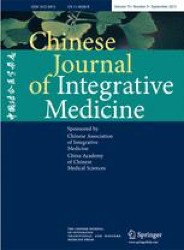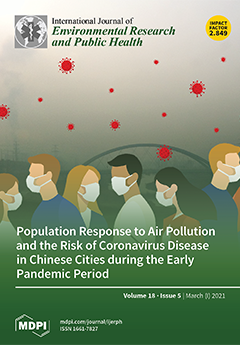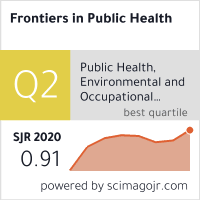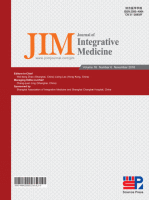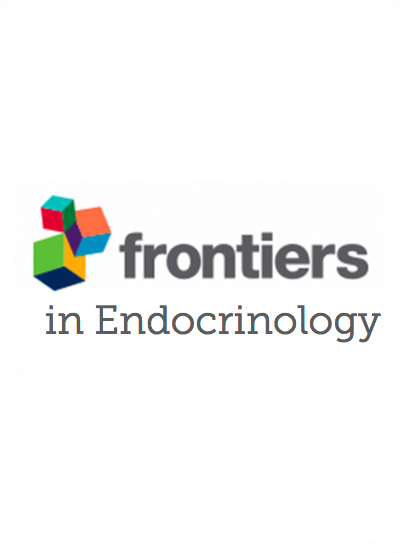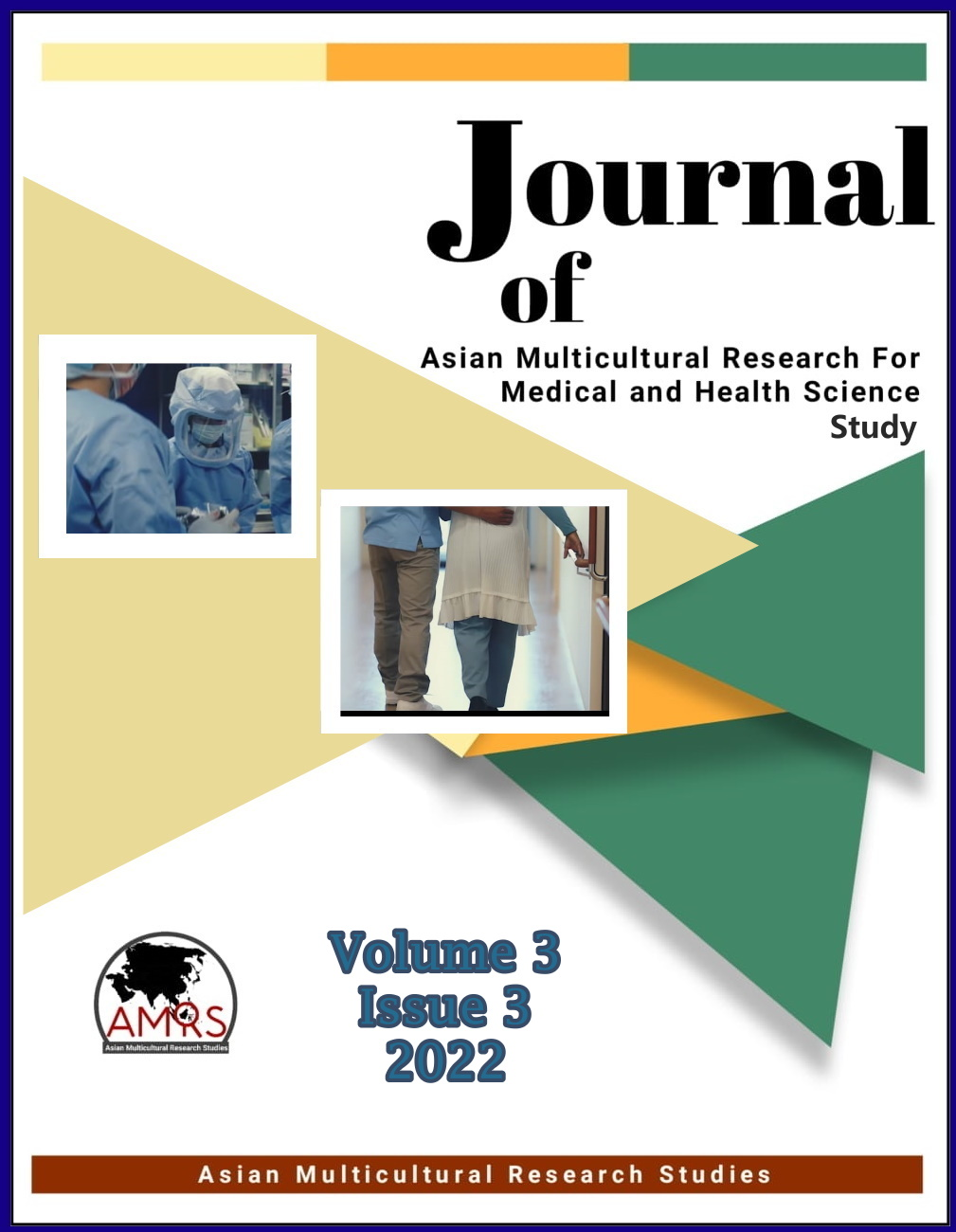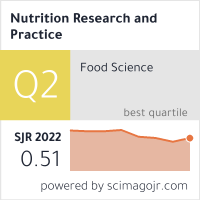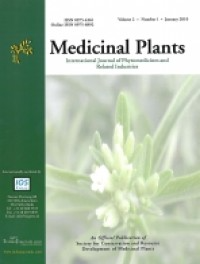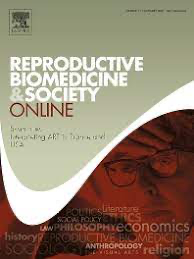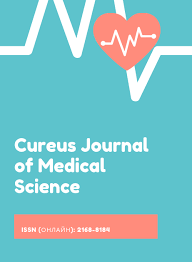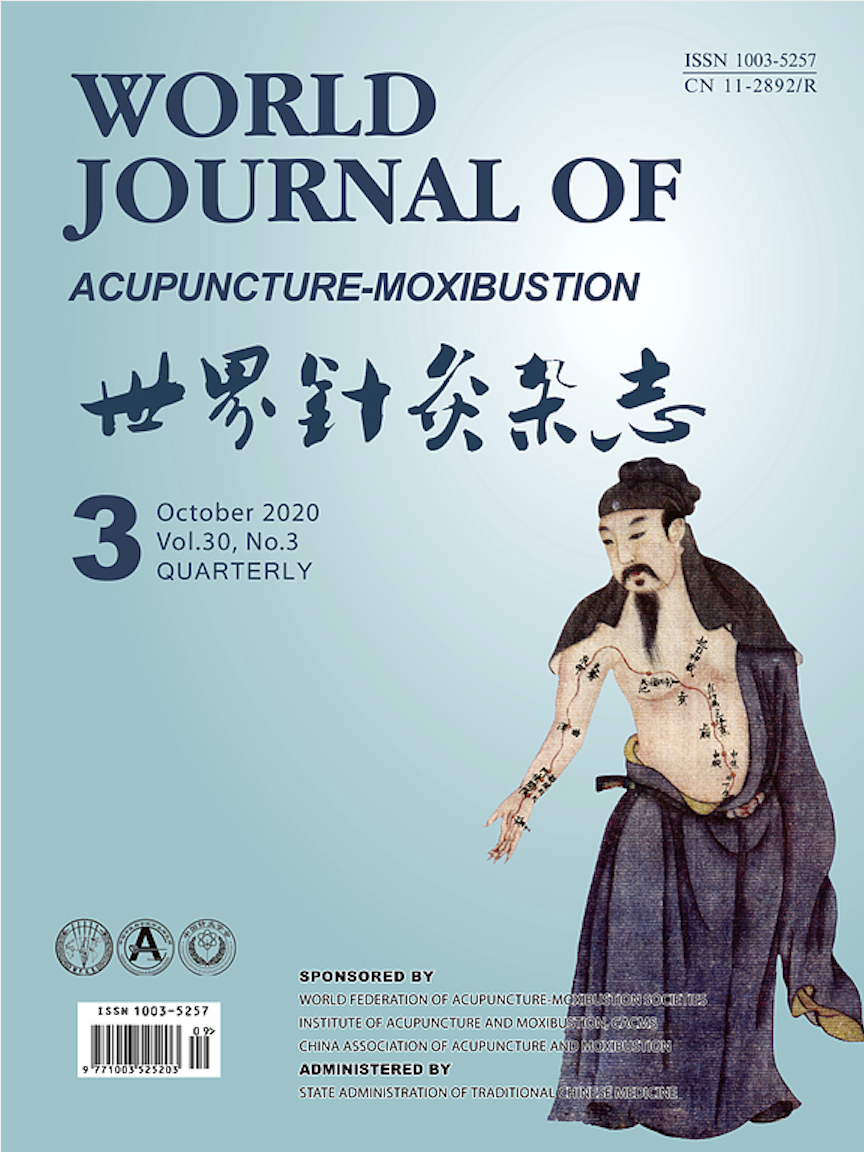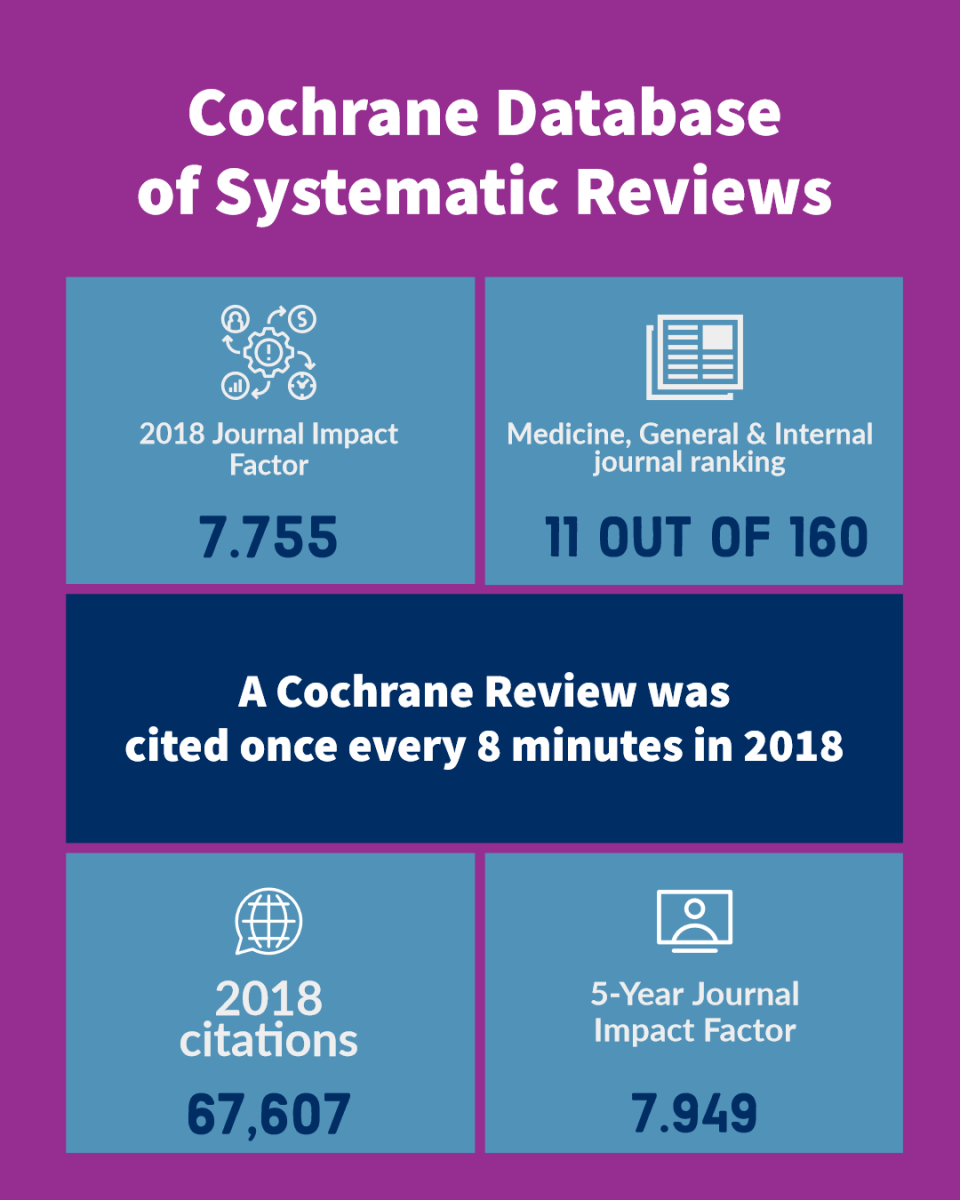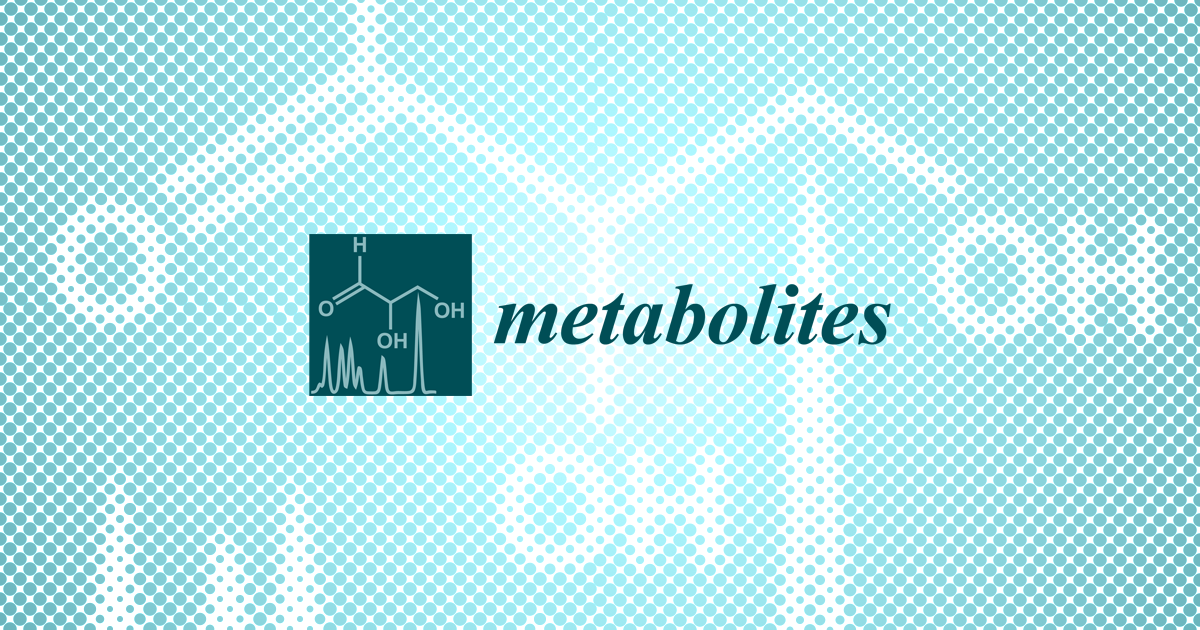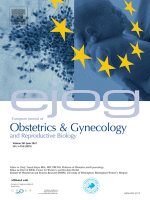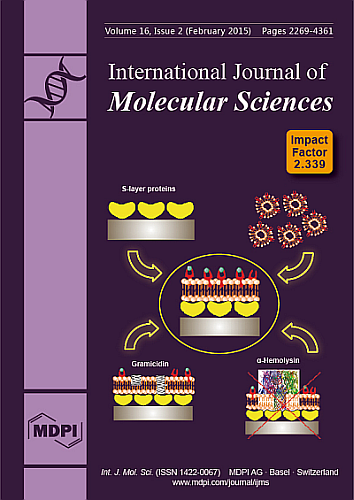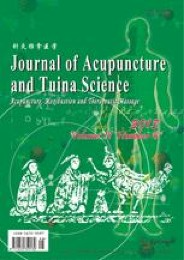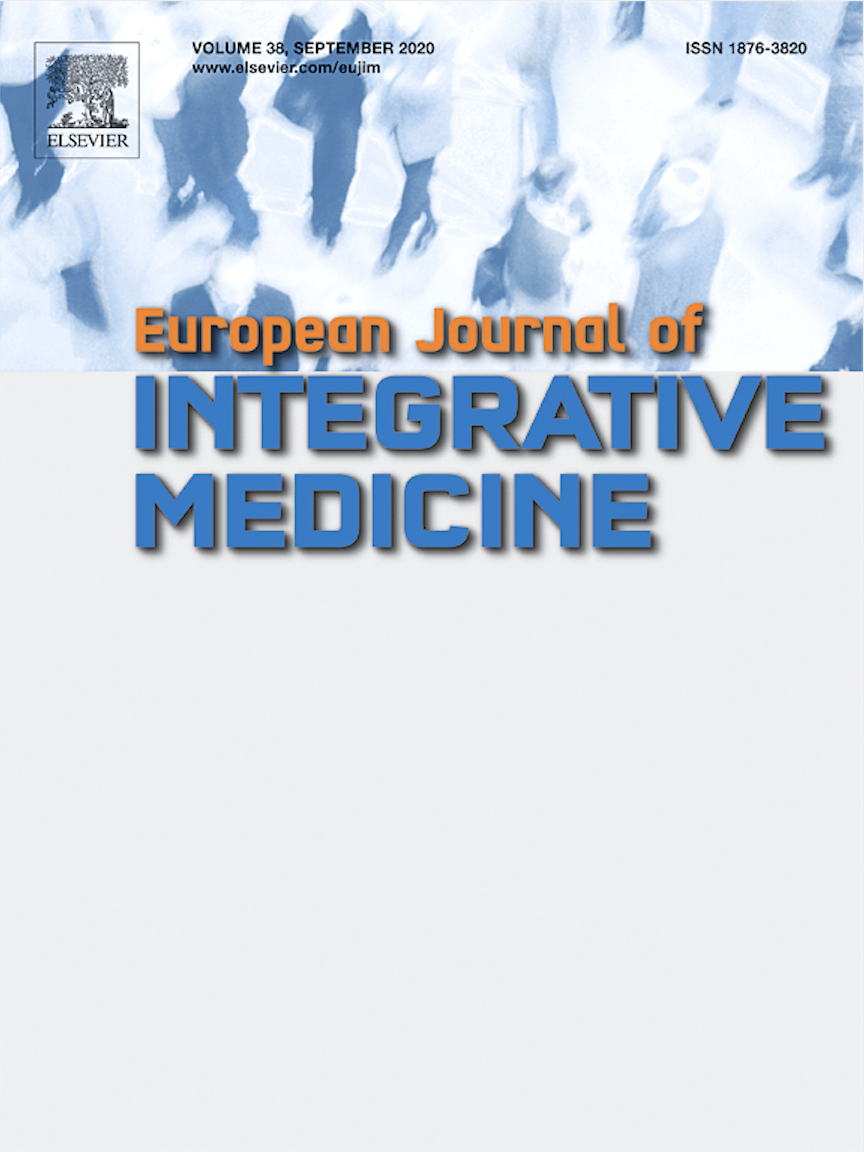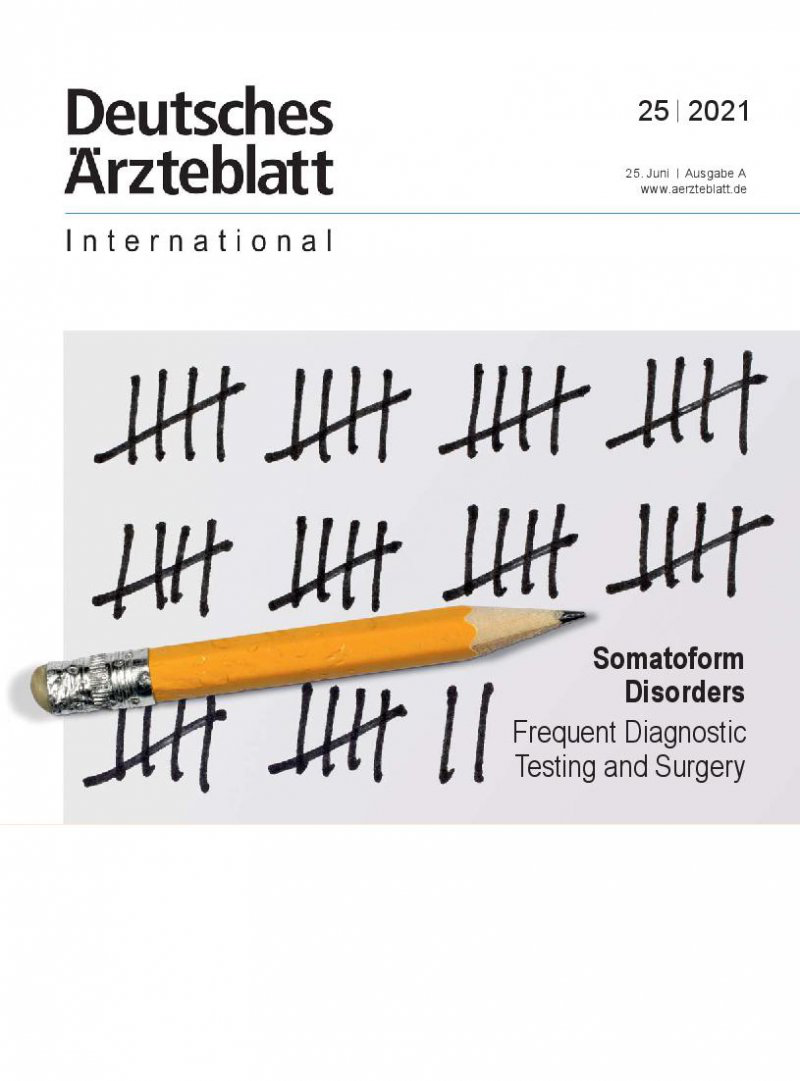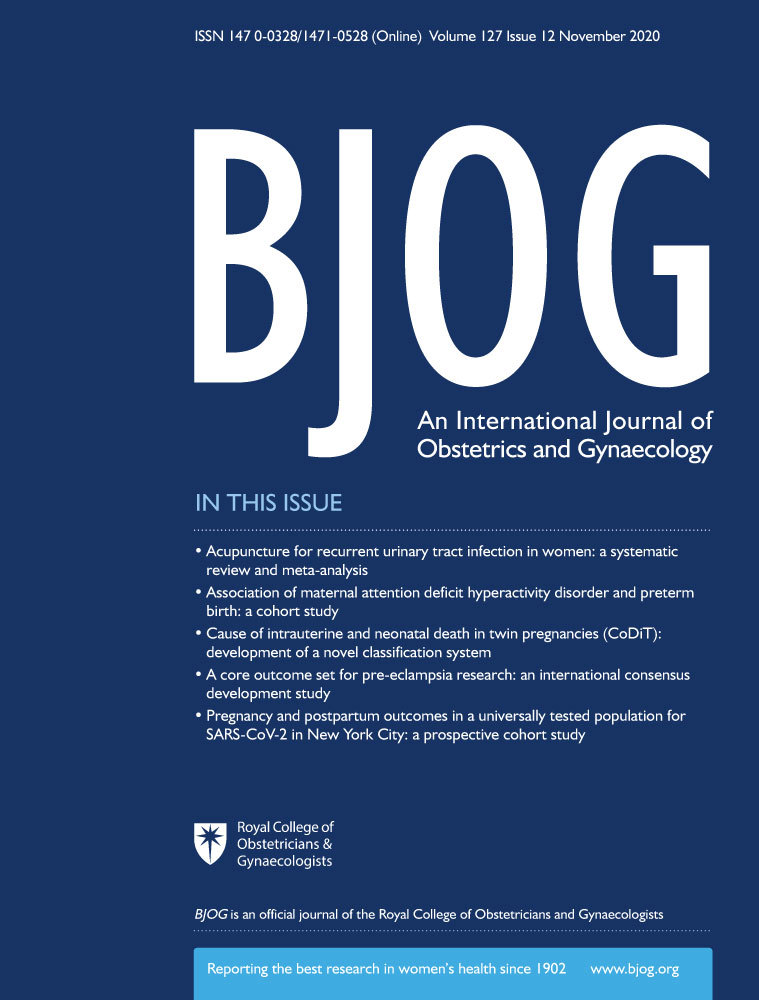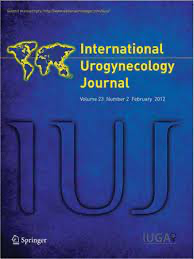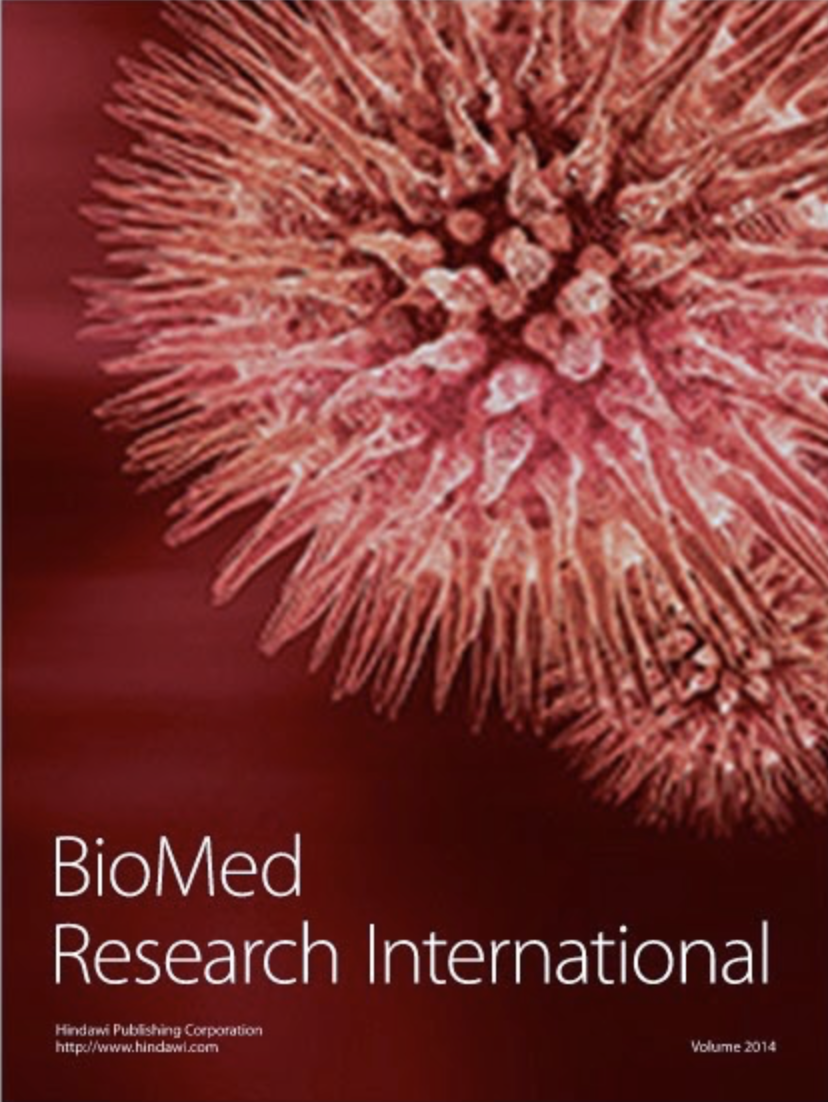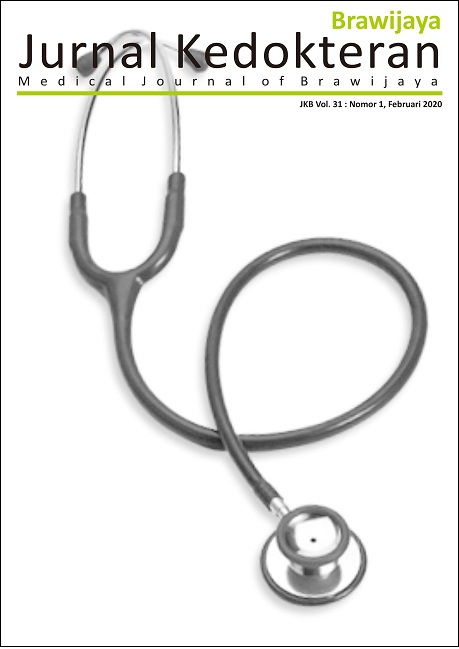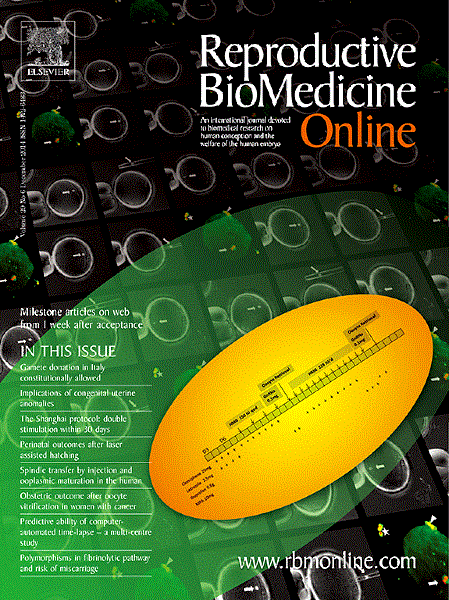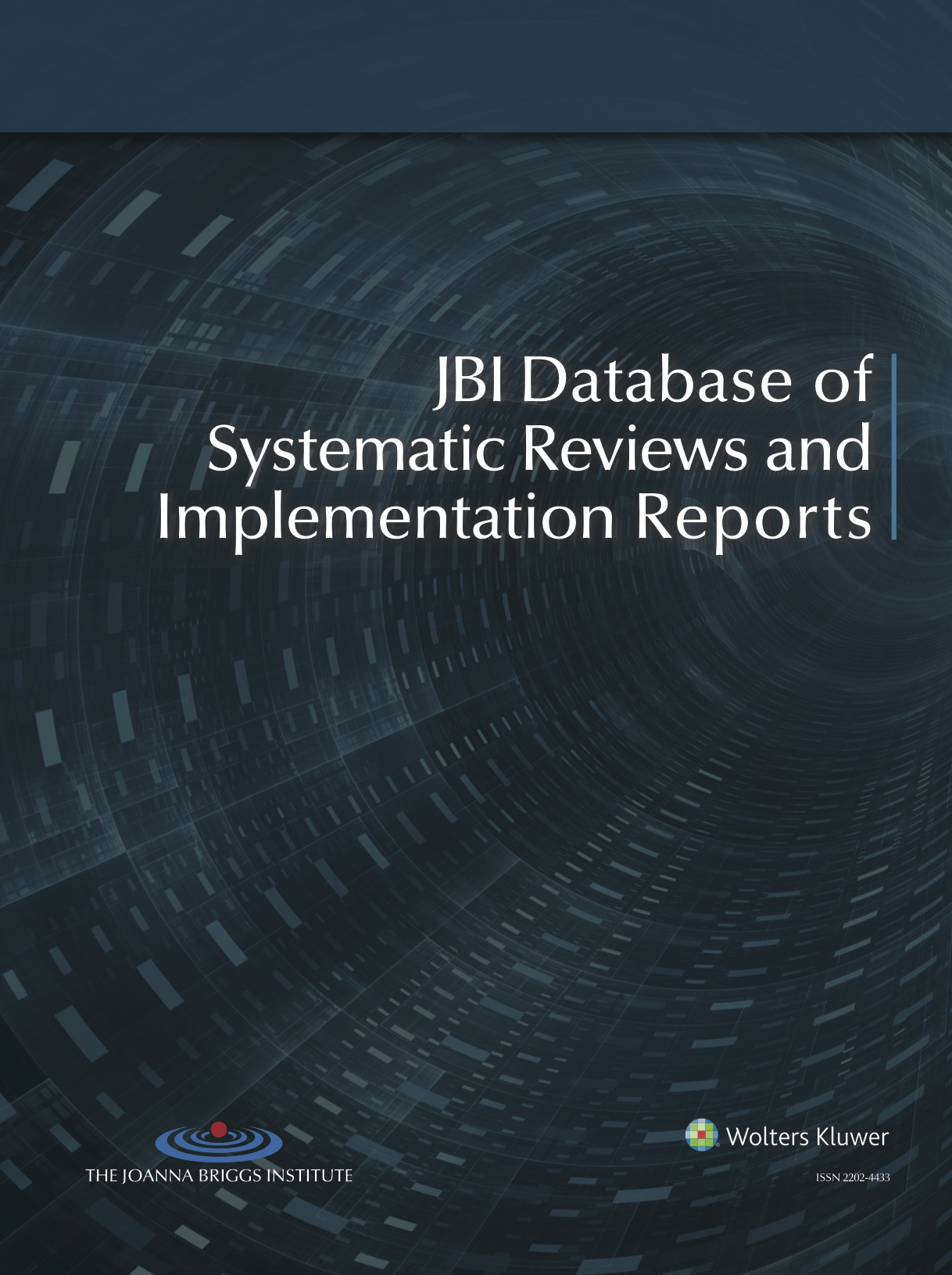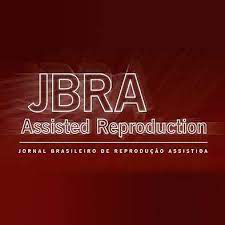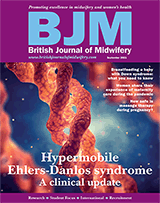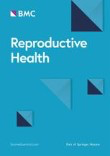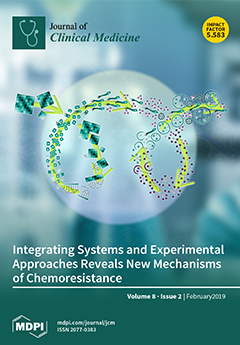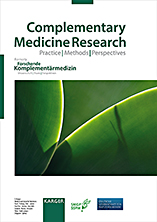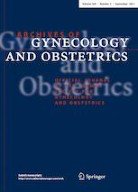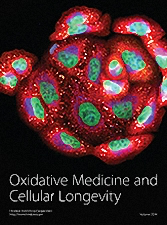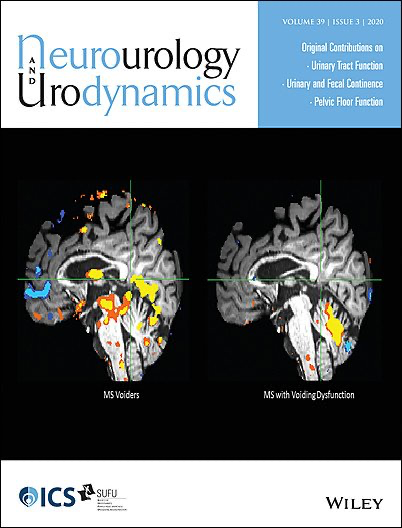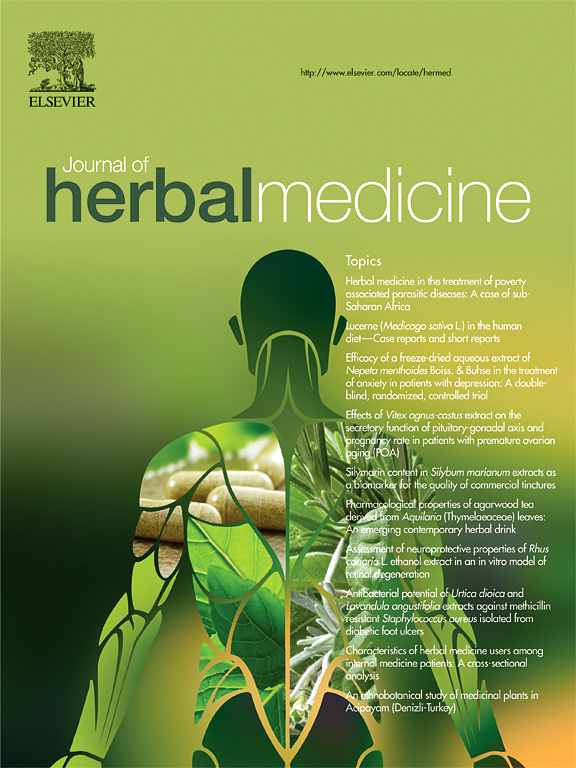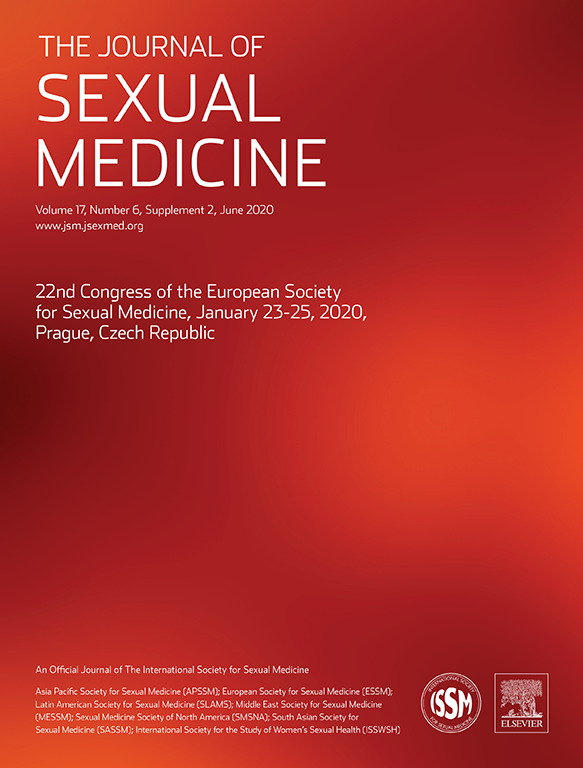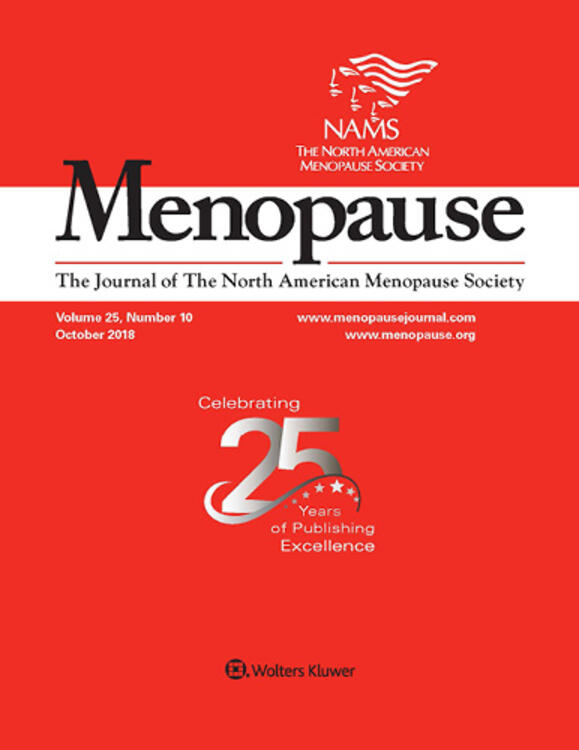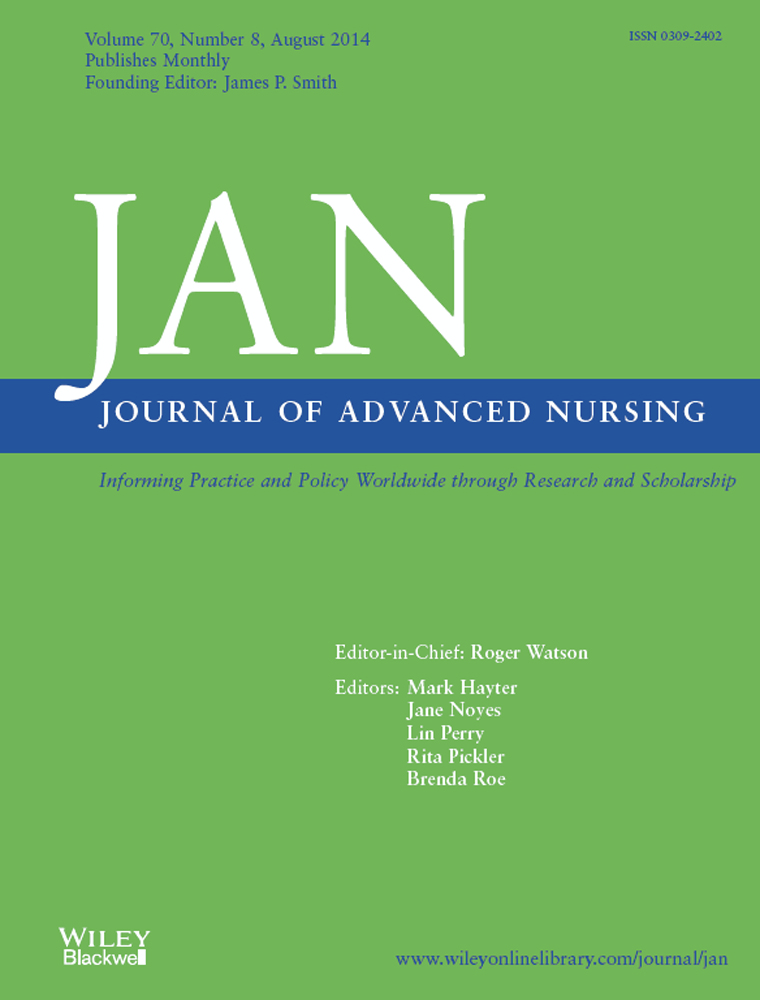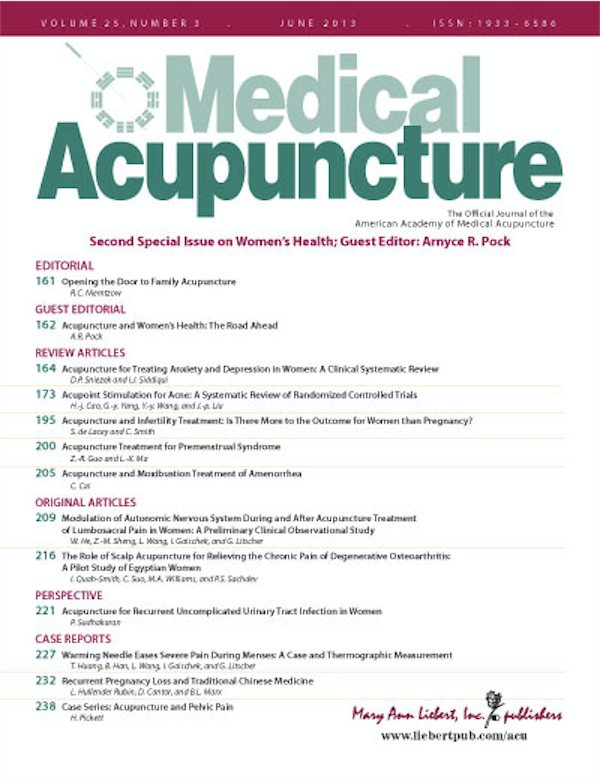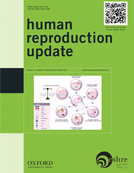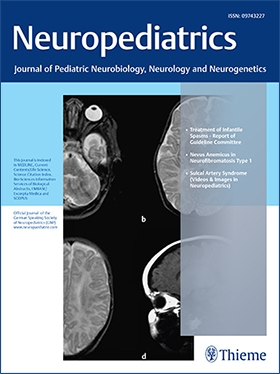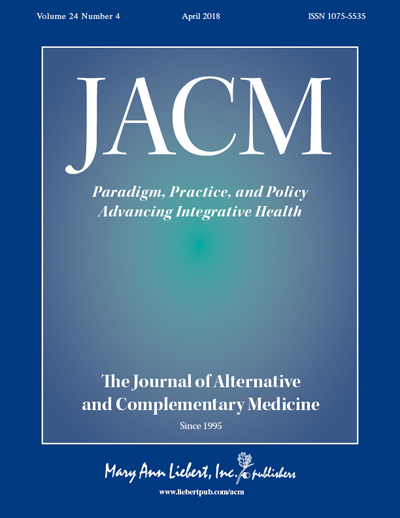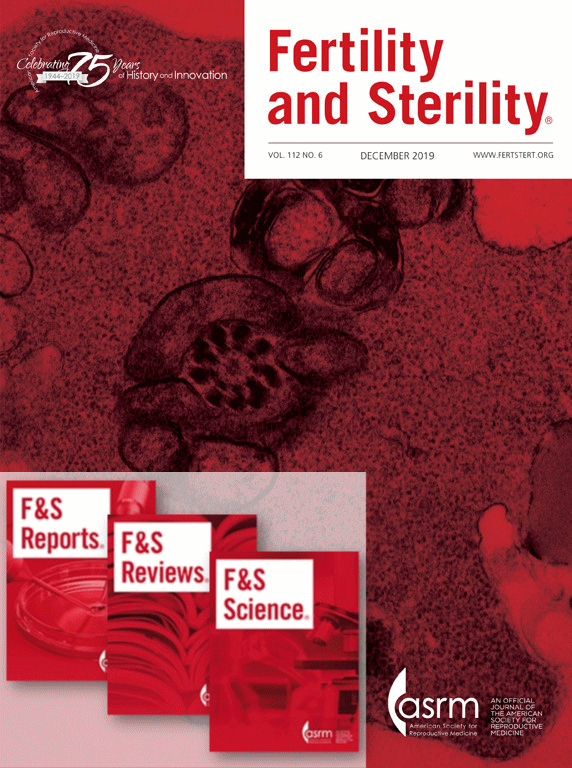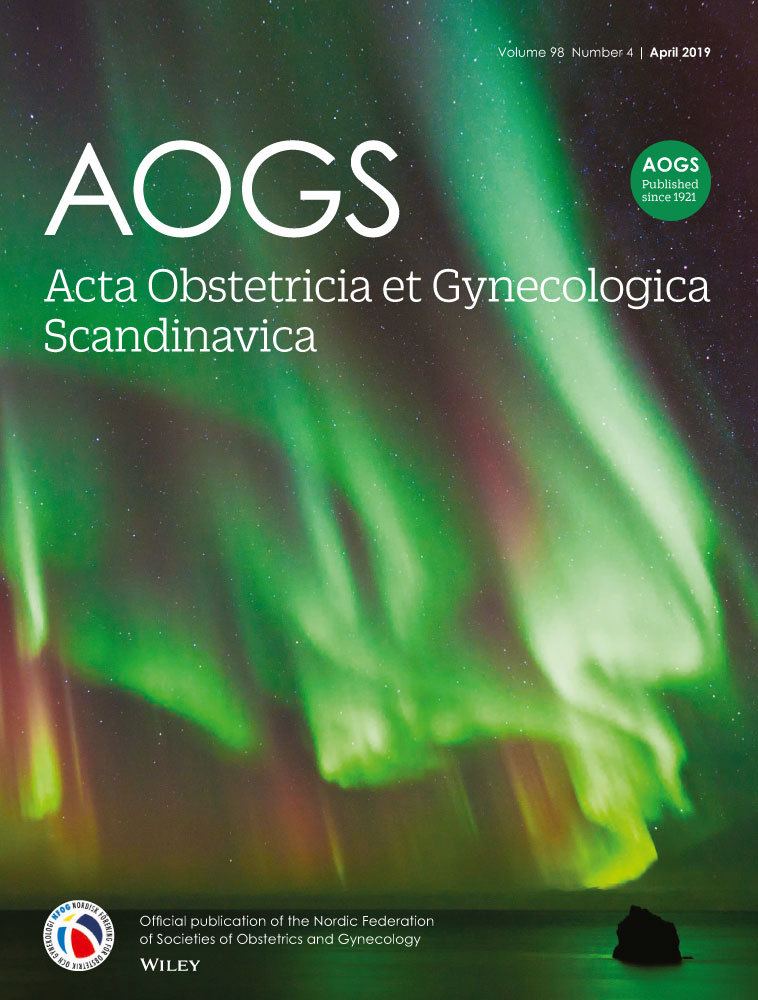
Acupuncture for Women's Health.
For thousands of years Chinese medicine has cared about the physical and emotional health symptoms of women throughout all stages of their lives.
Women can experience a wide range of symptoms related to their menstruation including irregular cycles, period pain and endometriosis, pre-menstrual tension and menopausal syndrome which can greatly affect their quality of life each month.
Any unusually late periods or absence of menstruation (amenorrhoea) should be investigated for possible pregnancy or other medical causes such as PCOS.
What is our clinical experience?
Based on feedback collected from over 858 initial appointments for Irregular Menstruation & Period Pain, 95% of our patients reported improved quality of life after their first 6 appointments. See our detailed benchmarking statistics.
Initial
Consults
858
Average
Appointments
6
Improved
Quality of Life
95%
Refer Family &
Friends
96%
What does the research say?
The following insights are obtained from systematic reviews and analysis of clinical trials investigating the efficacy of Chinese medicine and acupuncture for women's health.
2023 Chinese Journal of Integrative Medicine
Acupuncture may have a positive impact on clinical pregnancy rate and live birth rate in women undergoing in vitro fertilization (IVF), although the results are limited by the heterogeneity of the current evidence.
This study aimed to assess the efficacy of acupuncture on embryo transfer in women undergoing in vitro fertilization (IVF). A total of 49 randomized controlled trials (RCTs) involving 9422 women were analyzed. The results indicated that acupuncture had a significant positive impact on the clinical pregnancy rate (CPR) and live birth rate (LBR) compared to the control groups (odds ratio [OR]=1.65 for CPR, 1.34 for LBR). Subgroup analyses showed that traditional acupuncture was more beneficial for women aged < 35 years, those receiving ≥ 3 sessions, and those with lower baseline CPR rates in the control group. However, significant heterogeneity was observed among the studies. In conclusion, while there were some benefits of acupuncture in improving CPR and LBR in IVF, the results should be interpreted with caution due to the variability in the current evidence.
Pregnancy Benefit of Acupuncture on in vitro Fertilization: A Systematic Review and Meta-Analysis Zhang H, Zhang C, Ma P, Sun C, Sun C, Liu X, Pu Z, Lin Y, Liu B, Liu C, Yan S
2023 International Journal of Environmental Research and Public Health
Dark chocolate, with its high cocoa content, may possess pain-relieving properties comparable to Ibuprofen.
In this research, a randomized controlled trial with a quantitative design was conducted, involving 45 participants randomly assigned to receive 330 mL of green coconut water, 35 g of 70% dark chocolate, or 400 mg Ibuprofen.
After the intervention, there was a noticeable change in the reported pain intensities. Among the women, 48.9% reported experiencing mild pain, indicating a reduction in pain intensity. Furthermore, 17.8% of the women still reported moderate pain, suggesting some improvement but not a complete alleviation of pain. It is noteworthy that none of the women reported severe pain after the intervention. Additionally, 33.3% of the women reported being pain-free, indicating a significant decrease in pain intensity.
These findings demonstrate the effectiveness of the interventions in reducing pain intensity among women. The results suggest that the treatments, including Ibuprofen, coconut water, and dark chocolate, were successful in providing pain relief, with the majority of women experiencing either mild pain or no pain after the intervention.
Single-Blind Randomized Controlled Trial: Comparative Efficacy of Dark Chocolate, Coconut Water, and Ibuprofen in Managing Primary Dysmenorrhea Nuha K, Rusmil K, Ganiem AR, Permadi W, Diah Herawati DM
2023 Phytotherapy Research
Pomegranate juice supplementation has been found to effectively decrease testosterone levels in overweight and obese women diagnosed with polycystic ovary syndrome.
In the methodology, the study employed a randomized controlled trial which involved 44 participants. The women, aged between 18 and 40 years, had all been diagnosed with polycystic ovary syndrome and had a body mass index exceeding 25 kg/m. They were randomly divided, with one group consuming 45 ml/day of concentrated pomegranate juice and the other group receiving no intervention. A variety of biomarkers for sex hormones, inflammation, and oxidative stress were measured before starting the trial and again after eight weeks.
Further discussion of the results revealed a significant decrease in testosterone levels among the overweight and obese women with polycystic ovary syndrome who took concentrated pomegranate juice over the eight week period, in contrast to those in the control group. Apart from testosterone, no significant changes were observed for luteinizing hormone, sex hormone-binding globulin levels or for markers of inflammation and oxidative stress between the two groups.
The effect of concentrated pomegranate juice on biomarkers of inflammation, oxidative stress, and sex hormones in overweight and obese women with polycystic ovary syndrome: A randomized controlled trial Abedini M, Ramezaniâ€Jolfaie N, Ghasemiâ€Tehrani H, Tarrahi MJ, Amani R
2023 Medicine
The compounds apocarotenoids and carotenoids found in saffron extract could potentially interact with multiple targets, helping to manage the symptoms of polycystic ovary syndrome.
The study utilized a network pharmacology-based approach to identify the possible therapeutic pathways for apocarotenoids and carotenoids in Crocus sativus on polycystic ovary syndrome. The Ultra-High-Performance Liquid Chromatography with Photodiode Array detector (UHPLC-PDA) standardized stigma-based Crocus sativus extract (CSE) was analyzed for these phytochemicals.
Information about polycystic ovary syndrome related genes was collected from a knowledge database and networks were established between these targets and Crocus sativus extract phytochemicals to understand its mechanism of action.
Through network analysis and screening conditions, the study found four significant targets, including serine/threonine kinase 1, signal transducer and activator of transcription, and two types of mitogen-activated protein kinases. Gene ontology and Kyoto Encyclopaedia of genes and genomes analysis showed that MAP kinase and serine-threonine pathways were crucial targets in polycystic ovary syndrome.
Further molecular docking studies were conducted, and carotenoids apocarotenoids were assessed for absorption, distribution, metabolism, excretion, and toxicity predictions. Elements like crocetin, picrocrocin, and safranal showed strong binding affinity for the identified targets. This analysis also revealed that these compounds had excellent bioavailability and could cross the blood-brain barrier without demonstrating toxicity.
In summary, the study demonstrated that these phytochemicals could act on the identified targets, thus pointing towards the potentiality of Crocus sativus extract in managing polycystic ovary syndrome.
Network pharmacology-based strategic prediction and target identification of apocarotenoids and carotenoids from standardized Kashmir saffron (Crocus sativus L.) extract against polycystic ovary syndrome Tiwari A, Modi SJ, Girme A, Hingorani L
2023 Journal of Ethnopharmacology
Gui Zhi Fu Ling Wan significantly reduced menstrual pain in primary dysmenorrhea patients with heat-burning blood-stasis syndrome, without notable adverse effects.
In the methodology, a randomized, double-blinded, placebo-controlled trial was conducted. Eligible patients suffering from primary dysmenorrhea with heat-burning blood-stasis syndrome were randomly placed into two groups – one received Guizhi Fuling Wan, the other a placebo, administered twice daily across three menstrual cycles, with a 3-month follow-up. The primary measurement was the change in pain intensity from the beginning to the 6th month, gauged by using a Visual Analog Scale.
In the discussion of results, data showed that the pain intensity (measured using Visual Analog Scale) significantly decreased in the Guizhi Fuling Wan group compared to the placebo over the 6 month period. Secondary measurements also indicated a greater reduction in Cox Menstrual Symptom Scale, Self-rating Anxiety Scale, and traditional Chinese medicine syndrome scores in the Guizhi Fuling Wan group compared to the placebo. However, there was no significant difference between the two groups when measuring the Self-rating Depression Scale. Furthermore, no serious adverse events were observed during the trial.
Effect of Guizhi Fuling Wan in primary dysmenorrhea: A randomized controlled trial Luo Y, Mao P, Chen P, Li C, Fu X, Zhuang M
2023 Phytotherapy Research
Pomegranate can significantly enhance women's health during and after menopause by reducing hot flashes severity and other menopause symptoms.
The study aimed at understanding the impacts of pomegranate on women's health through and following menopause. To gather data, a rigorous search was conducted on various academic platforms, including PubMed, Web of Science, Cochrane, Scopus, and Google Scholar, up to the end of 2022. All forms of clinical research studies, from randomized clinical trials to case series, were considered for review. The material was evaluated using the Cochrane RoB 2.0 tool specifically for quality assessment of randomized clinical trials. To quantify the effects of the pomegranate intervention, standardized mean differences were calculated using a random effect model.
It was found that pomegranate significantly reduces the severity of hot flashes in menopausal women, improves their high-density lipoprotein levels, and reduces the Follicle-Stimulating Hormone (FSH). However, no significant improvement was noticed in the low-density lipoprotein, body mass index, and body weight. Despite these findings, the study recognized that the results' conclusiveness was hampered due to small sample sizes and the lack of study design elements such as blinding and randomization.
Pomegranate effects on the health aspects of women during peri†and postmenopause: A systematic review and metaâ€analysis Moeini R, Shirafkan H, Gorji N
2022 Frontiers in Public Health
The study found that acupuncture as an adjuvant therapy for frozen-thawed embryo transfer (FET) in infertile women had positive effects on pregnancy outcomes.
The study investigates the effects of acupuncture as supplementary therapy for frozen-thawed embryo transfer (FET) in infertile women. It finds significant positive impacts on clinical pregnancy rate, biochemical pregnancy rate, endometrial thickness, and pattern. However, the evidence quality is considered unsatisfactory, prompting a call for more robust research and refined acupuncture protocols.
Effects of acupuncture on the pregnancy outcomes of frozen-thawed embryo transfer: A systematic review and meta-analysis Zhu C, Xia W, Huang J, Zhang X, Li F, Yu X, Ma J, Zeng Q
2022 Medicine
High prevalence of insomnia, anxiety, and depression among perimenopausal women, emphasizing the importance of exploring acupuncture as a potential green therapy for effectively addressing these interconnected issues.
This passage discusses the prevalence of insomnia among perimenopausal women, its association with anxiety and depression, and the potential of acupuncture as a green therapy for treating these issues. The passage outlines the objectives and methods of a systematic review aiming to evaluate the efficacy of acupuncture in improving sleep quality and alleviating anxiety and depression in perimenopausal women, highlighting the need for safer alternatives to conventional medications and the significance of such a study.
Can acupuncture improve sleep quality and anxiety among women during perimenopause? Ping Y, Liang C, Fan X, Zhang L, Ying D, Wang Z
2022 Journal of Integrative Medicine
Acupuncture, when used in conjunction with medicine or alone, appears to improve certain PCOS outcomes such as ovulation rate and recovery of menstrual cycle.
This overview consolidates existing systematic reviews (SRs) on the efficacy and safety of acupuncture for treating Polycystic Ovary Syndrome (PCOS). Methodological quality, risk of bias, and confidence in evidence were assessed from these SRs to guide clinical practice and future research directions. However, due to the inconsistency and low quality of evidence, a definitive conclusion regarding the benefits of acupuncture for PCOS remains elusive. Notably, though all included SRs suggest potential benefits, their conclusions are undermined by defects in individual SRs and the limited reliability of evidence. Acupuncture, when used in conjunction with medicine or alone, appears to improve certain PCOS outcomes such as ovulation rate and recovery of menstrual cycle. Adverse events are mild, and while some evidence points to favorable effects on various outcomes, confidence remains too low to draw firm conclusions. The review highlights methodological shortcomings in SRs' assessments and calls for robust future studies. These studies should feature pre-registered protocols, comprehensive literature retrieval, detailed statistical methods, thorough reporting of trial characteristics and funding sources, and strategies to address bias and heterogeneity. In spite of potential benefits, the current evidence's poor quality and inconsistencies necessitate further high-quality research to establish acupuncture's effectiveness and safety for PCOS definitively.
Efficacy and safety of acupuncture for polycystic ovary syndrome: An overview of systematic reviews Yang H, Xiao Z, Yin Z, Yu Z, Liu J, Xiao Y, Zhou Y, Li J, Yang J, Liang F
2022 Frontiers in Endocrinology
PCOS patients suggests that combining acupuncture with metformin might enhance pregnancy and ovulation rates, as well as improve insulin resistance.
The study initially screened 330 relevant articles, eventually including nine randomized controlled trials (RCTs) that met the inclusion criteria. These trials encompassed 1,159 patients with PCOS who underwent acupuncture or acupuncture combined with metformin treatment. Using the GRADE method, a "Summary of Findings" table was employed to evaluate the quality of evidence for various outcome measures. The main results indicated that acupuncture combined with metformin exhibited superiority over metformin alone in terms of pregnancy rate, ovulation rate, and HOMA-IR (insulin resistance). Subgroup analysis highlighted that diagnostic criteria and random methods contributed to heterogeneity in results.
However, the evidence's quality was predominantly low or very low due to study limitations, inconsistencies, and imprecisions. The intervention measures, such as acupuncture methods and treatment parameters, varied substantially among studies. Challenges in contacting original authors and incomplete information posed further limitations. The study suggested potential improvements in pregnancy rate, ovulation rate, and HOMA-IR with acupuncture combined with metformin, but these findings were subject to uncertainties related to diagnostic criteria and overall evidence quality. Consequently, the conclusive efficacy of acupuncture combined with metformin for treating PCOS remains uncertain due to the dearth of high-quality research. The study called for well-designed and well-executed RCTs to address this question under standardized diagnostic criteria and treatment protocols for acupuncture and metformin.
Acupuncture combined with metformin versus metformin alone to improve pregnancy rate in polycystic ovary syndrome: A systematic review and meta-analysis Chen X, Lan Y, Yang L, Liu Y, Li H, Zhu X, Zhao Y, Long C, Wang M, Xie Q, Li Z, Wu J
2022 Frontiers in Endocrinology
PCOS patients suggests that combining acupuncture with metformin might enhance pregnancy and ovulation rates, as well as improve insulin resistance.
The study initially screened 330 relevant articles, eventually including nine randomized controlled trials (RCTs) that met the inclusion criteria. These trials encompassed 1,159 patients with PCOS who underwent acupuncture or acupuncture combined with metformin treatment. Using the GRADE method, a "Summary of Findings" table was employed to evaluate the quality of evidence for various outcome measures. The main results indicated that acupuncture combined with metformin exhibited superiority over metformin alone in terms of pregnancy rate, ovulation rate, and HOMA-IR (insulin resistance). Subgroup analysis highlighted that diagnostic criteria and random methods contributed to heterogeneity in results.
However, the evidence's quality was predominantly low or very low due to study limitations, inconsistencies, and imprecisions. The intervention measures, such as acupuncture methods and treatment parameters, varied substantially among studies. Challenges in contacting original authors and incomplete information posed further limitations. The study suggested potential improvements in pregnancy rate, ovulation rate, and HOMA-IR with acupuncture combined with metformin, but these findings were subject to uncertainties related to diagnostic criteria and overall evidence quality. Consequently, the conclusive efficacy of acupuncture combined with metformin for treating PCOS remains uncertain due to the dearth of high-quality research. The study called for well-designed and well-executed RCTs to address this question under standardized diagnostic criteria and treatment protocols for acupuncture and metformin.
Acupuncture combined with metformin versus metformin alone to improve pregnancy rate in polycystic ovary syndrome: A systematic review and meta-analysis Chen X, Lan Y, Yang L, Liu Y, Li H, Zhu X, Zhao Y, Long C, Wang M, Xie Q, Li Z, Wu J
2022 Journal of Asian Multicultural Research for Medical and Health Science Study
Honey, combined with Iron (Fe), effectively enhances hemoglobin levels and reduces oxidative stress markers in anemic expectant mothers.
This quasi-experimental study with a pretest-posttest design involved 30 pregnant women divided into two groups: one receiving Fe (Control Group) and the other Honey + Fe (Intervention Group) for 60 days. Blood and urine analyses revealed a remarkable increase in hemoglobin levels in the Honey + Fe group (2.80 ± 0.26 g/dl), surpassing the Fe control group (0.80 ± 0.13 g/dl). Moreover, the Intervention Group demonstrated a notable decrease in 8-Ohdg levels (-4.23 ± 1.32 nmol/ml, p = 0.031), indicating reduced oxidative stress, while the Fe control group exhibited less significant changes (2.98 ± 1.30 nmol/ml, p = 0.322). Independent T Test confirmed the Honey + Fe group's superior effectiveness in increasing hemoglobin levels and decreasing 8-Ohdg levels in anemic pregnant women (p = 0.001 and p = 0.002, respectively).
The study underscores the synergistic benefits of honey and iron supplementation in enhancing hemoglobin levels and mitigating oxidative stress among anemic pregnant women. The robust findings, supported by statistical significance, emphasize the potential clinical relevance of incorporating honey into anemia management strategies, offering a more effective approach compared to iron supplementation alone.
Effect of Honey to Levels Hemoglobin and Levels of 8-Hydroxy-2-Deoxyguanosin (8-Ohdg) in Pregnant Women with Anemia A A, Astuti A, Leli L, Saad R
2022 Frontiers in Pharmacology
Si Wu Tang has improved menstrual symptoms by increasing estradiol content and antioxidative effects as a result of its herbs' synergistic relationships.
In the methodology of the study, a testosterone-treated MCF-7 cell model was employed to determine the effects of each herb in the SWT formula. Key metrics that were considered included the regulation of estradiol, antioxidative effects, and the total polyphenol and polysaccharide contents as quality markers. The study also explored the potential ability of certain elements within the formula to act as an aromatase promoter, notably catalpol and other elements.
In terms of results, certain herbs in SWT such as catalpol showed an ability to significantly increase estradiol content and boost upregulation in cell culture, indicating their role as potential aromatase promoters within the formula. Antioxidant activity was also strong in other compounds like pentagalloylglucose, gallic acid, and ferulic acid. These antioxidative effects were attributed to the presence of polyphenols in the herbs. Furthermore, the herb with the strongest antioxidant effects could possibly help ameliorate menstrual disorder patterns due to its ability to prevent ROS damage to the ovaries.
Elucidation of the Effects of Si-Wu Tang on Menstrual Disorder Patterns through Activation of Aromatase and Antioxidation Guan-Cheng Huang, Yi-Zhe Tsai, Chia-Jung Lee, Heng-Yu Chang, Ching-Chiung Wang
2022 Morphologie
Pomegranate juice extract may reduce the damage to the endometrium in Polycystic ovary syndrome through its antioxidant, anti-inflammatory, anti-fibrotic, and anti-proliferative effects.
To test the possible benefits of pomegranate juice extract (PJE) on endometrial injury in Polycystic ovary syndrome (PCOS), forty adult albino rats were divided into four groups, control, PJE-treated, letrozole-treated (PCOS), and PJE & PCOS groups. The respective treatments were administered for a duration of three weeks. Serum and tissue samples were assayed for Follicle-stimulating hormone, Luteinizing hormone, testosterone, estradiol, and malondialdehyde. Uterine samples were also tested using a range of histological staining techniques and a scanning electron microscope.
In the rat model of PCOS, significant increases in certain biochemical indicators in serum samples were observed while uterine sections showed numerous alterations to the endometrium, signs of inflammation and an increase in the endometrial collagen fiber content. Additionally, there was increased expression of certain immunohistochemical staining markers and a decrease in the mean number of pinopodes observed through scanning electron microscopy. However, these various potentially harmful biochemical, histological and immunohistochemical alterations were efficiently reduced with the administration of PJE. This points towards the potential benefits of PJE in addressing and potentially reducing endometrial injury associated with PCOS.
Role of pomegranate extract in restoring endometrial androgen receptor expression, proliferation, and pinopodes in a rat model of polycystic ovary syndrome Ibrahim MAA, Sadek MT, Sharaf Eldin HEM
2022 Nutrients
Soybean lettuce extract effectively reduces symptoms of menopause syndrome without notable side effects.
The study targeted adult women suffering from menopausal syndrome with a Kupperman index of 15 or more. Participants were split into two groups – the experimental group and the placebo group. The research spanned over a four-week period and embraced a total of 39 participants (with one dropping out). Measurements of body mass index, waist circumference, and several cholesterol levels were taken before and after the study, but these didn't show any significant changes.
In the results discussion, the most notable finding was a significant reduction in the Kupperman index in the experimental group. They were given the natural nitric oxide-containing soybean lettuce extract. This decrease denotes the alleviation of menopausal symptoms, offering an effective, natural alternative to hormone therapy. Conversely, the placebo group didn't show any substantial change, reinforcing the efficacy of the soybean lettuce extract.
Evaluation of the Effectiveness of Fermented Soybean-Lettuce Powder for Improving Menopausal Symptoms Han AL, Lee HK, Chon HS, Pae HO, Kim MS, Shin YI, Kim S
2022 Nutrition Research and Practice
Isoflavone supplementation noticeably impacts menopausal symptoms and hormonal changes in postmenopausal women.
In order to examine isoflavones effects on menopausal symptoms and the associated hormonal alterations, a systematic review and meta-analysis were conducted. To do this, the PubMed and EMBASE databases were used, but the selected studies were restricted to random controlled trials (RCTs) assessing isoflavone supplementation's impact on menopausal symptoms. Overall, 11 studies were chosen for the final quantitative evaluation, and the isoflavone intervention amount varied among these studies.
The Meta-analysis displayed that supplementing isoflavones meaningfully increased estradiol levels and the Kupperman index (a composite scoring of multiple menopausal symptoms intensity). Yet, there were no significant impacts observed on hot flashes, or the release of two specific hormones: follicle-stimulating hormone and luteinizing hormone. It should be noted that there was a significant inconsistency in estradiol levels and Kupperman index findings among different studies.
Effect of isoflavone supplementation on menopausal symptoms: a systematic review and meta-analysis of randomized controlled trials Kang I, Rim CH, Yang HS, Choe JS, Kim JY, Lee M
2022 Medicinal Plants - International Journal of Phytomedicines and Related Industries
Chamomile can significantly improve menstrual regulation and decrease testosterone levels in women of reproductive age with polycystic ovary syndrome.
In this randomized clinical trial, 80 women of reproductive age diagnosed with polycystic ovary syndrome were divided into two groups – intervention and control. The intervention group was given a chamomile capsule three times a day over the course of 12 weeks. The control group received a placebo with the same prescription timing. The menstrual patterns and two androgens, testosterone and dehydroepiandrosterone, were evaluated before and after this three-month period.
The primary outcome observed was a significant increase in the number of participants with normal menstrual cycles in the chamomile capsules user group. Alongside this, a major improvement in the number of menstrual cycles after chamomile therapy was seen. A noteworthy decrease was also observed in testosterone levels amongst women in the intervention group whereas there was no significant change in the level of hormone dehydroepiandrosterone sulfate in either the intervention or control groups. This demonstrates that chamomile could potentially help regulate menstruation and decrease total testosterone levels in women struggling with polycystic ovary syndrome.
The effect of chamomile on menstruation pattern and serum androgens in polycystic ovary syndrome Heidary M, Dokuhaki S, Yazdanpanahi Z, Dabbaghmanesh MH, Emamghoreishi M, Akbarzadeh M
2022 Journal of Ethnopharmacology
Saffron petal extract and anthocyanins can alleviate symptoms of Polycystic Ovary Syndrome by rectifying hormonal imbalances and reducing inflammation in PCOS mice.
The study conducted experiments on mice induced with Polycystic Ovary Syndrome (PCOS) through the injection of testosterone enanthate. These mice were then treated with saffron petal extract and anthocyanins to observe the effect on their ovarian hormones, steroidogenic enzymes, ovarian dysfunction, regulation of anti-inflammatory genes, and antioxidant factors. The treatment was found to decrease the elevated levels of luteinizing hormone, testosterone, and estrogen in the PCOS mice, while reviving the reduced follicular-stimulating hormone and progesterone levels.
In discussion of the results, it was observed that saffron petal extract and anthocyanins positively altered the levels of gonadotropin receptors, steroid receptors, inflammatory markers, inflammatory-related factors, and antioxidant enzymes that were affected by the PCOS condition in the subject mice. The study also noted that the reproductive tissues of the PCOS mice, which were converted into androgen-dominant environments by the testosterone enanthate induction, were restored into estrogenic conditions after the treatment. Further findings suggested that saffron petal extract and anthocyanins led to amelioration of PCOS symptoms by enhancing the regulation of ovarian steroids, steroidogenic processes, antioxidant enzyme production, and inflammatory markers.
Crocus sativus (saffron) petals extract and its active ingredient, anthocyanin improves ovarian dysfunction, regulation of inflammatory genes and antioxidant factors in testosterone-induced PCOS mice Moshfegh F, Balanejad SZ, Shahrokhabady K, Attaranzadeh A
2021 Evidence-Based Complementary and Alternative Medicine
Acupuncture therapy on patients with recurrent implantation failure can improve the pregnancy outcome of patients. It is a relatively effective treatment with satisfactory safety and suitable for clinical application.
The aim of this analysis was to identify the efficacy and safety of acupoint stimulation therapy for RIF patients. The results of meta-analysis show that for the outcome measurements including clinical pregnancy rate, biochemical pregnancy rate, embryo implantation rate, and endometrial thickness, the use of acupuncture in the treatment group is higher than the sham or nonacupuncture group, in which the difference is statistically significant. These results are believable and reliable. The included studies are highly homogeneous and there is no obvious publication bias. However, large heterogeneity appears in the statistical analysis of the endometrial thickness. Moreover, there was no statistical significance in the number of embryo transfers and the type of endometrium.
The Effects of Acupuncture on Pregnancy Outcomes of Recurrent Implantation Failure: A Systematic Review and Meta-Analysis Li, M., Liu, Y., Wang, H., Zheng, S., Deng, Y., & Li, Y.
2021 Medicine
Acupuncture can effectively improve the post voided residual urine, maximal cystometric capacity, and bladder capacity for first voiding desire values of patients with urinary retention after hysterectomy.
There is insufficient evidence that acupuncture can increase the patient's MFR, BR, and UIR. However, acupuncture can effectively improve the PVR, maximal cystometric capacity, and bladder capacity for first voiding desire values of patients with urinary retention after hysterectomy. Although limited due to the quality and methodological limitations of the included studies, acupuncture can still be used as an effective and safe treatment for women with urinary retention after hysterectomy.
Efficacy and safety of acupuncture for urinary retention after hysterectomy Zhao Q, Yan C, Dan M, Jia H
2021 Reproductive BioMedicine & Society Online
Women receiving IVF perceived that acupuncture or sham acupuncture gave them a psychological advantage through increased relaxation, reduced psychological stress, and enhanced well-being and self-efficacy.
In this qualitative study, participants reported that compassionate care and an opportunity to rest during IVF, and especially following embryo transfer, had an emotionally important effect. All women in the trial underwent the same procedural practices which involved bed rest during needling, among other comforts. Some women described benefitting purely from this opportunity to rest quietly in a supportive environment amidst the maelstrom of IVF. There was also recognition that this ‘oasis’, albeit brief, was an important time for allowing the meaning of having an embryo transferred to ‘soak in’, and presented an oppportunity to ‘be in the moment’.
IVF, acupuncture and mental health: a qualitative study of perceptions and experiences of women participating in a randomized controlled trial of acupuncture during IVF treatment de Lacey S, Sanderman E, Smith CA
2021 Cureus Journal of Medical Science
Based on beneficial effects and minimal side effects, ginger may be a potential adjunct treatment for primary dysmenorrhea.
This review has shown that ginger can minimize pain in one or two periods. The present analysis provides compelling proof of the impact of ginger on relieving menstrual pain.
The finding in this study has verified the possibility of ginger efficacy in the treatment of primary dysmenorrhea, though no/small side effects have been identified and its use is associated with health benefits. Ginger is easily accessible due to its low cost. It can also be commonly used in the treatment of primary dysmenorrhea. The use of ginger is very useful and effective as NSAIDs because of the increasing trend in the use of traditional medicine and herbal medicine, particularly for people who do not want to use chemical drugs with more side effects. We strongly recommend that further research be performed with a greater number of patients regarding the effectiveness and protection of various doses of ginger.
Efficacy of Ginger in the Treatment of Primary Dysmenorrhea: A Systematic Review and Meta-analysis Negi R, Sharma DS, Gaur DR, Bahadur A, Jelly P
2021 Cureus Journal of Medical Science
Based on beneficial effects and minimal side effects, ginger may be a potential adjunct treatment for primary dysmenorrhea.
This review has shown that ginger can minimize pain in one or two periods. The present analysis provides compelling proof of the impact of ginger on relieving menstrual pain.
The finding in this study has verified the possibility of ginger efficacy in the treatment of primary dysmenorrhea, though no/small side effects have been identified and its use is associated with health benefits. Ginger is easily accessible due to its low cost. It can also be commonly used in the treatment of primary dysmenorrhea. The use of ginger is very useful and effective as NSAIDs because of the increasing trend in the use of traditional medicine and herbal medicine, particularly for people who do not want to use chemical drugs with more side effects. We strongly recommend that further research be performed with a greater number of patients regarding the effectiveness and protection of various doses of ginger.
Efficacy of Ginger in the Treatment of Primary Dysmenorrhea: A Systematic Review and Meta-analysis Negi R, Sharma DS, Gaur DR, Bahadur A, Jelly P
2021 Cureus Journal of Medical Science
A systematic analysis indicates that ginger has a higher safety profile than NSAIDs for pain relief, with a smaller number of gastric side effects and fewer kidney risks.
The use of ginger is very useful and effective as NSAIDs because of the increasing trend in the use of traditional medicine and herbal medicine, particularly for people who do not want to use chemical drugs with more side effects.
Efficacy of Ginger in the Treatment of Primary Dysmenorrhea: A Systematic Review and Meta-analysis Negi R, Sharma DS, Gaur DR, Bahadur A, Jelly P
2021 Cureus Journal of Medical Science
A systematic analysis indicates that ginger has a higher safety profile than NSAIDs for pain relief, with a smaller number of gastric side effects and fewer kidney risks.
The use of ginger is very useful and effective as NSAIDs because of the increasing trend in the use of traditional medicine and herbal medicine, particularly for people who do not want to use chemical drugs with more side effects.
Efficacy of Ginger in the Treatment of Primary Dysmenorrhea: A Systematic Review and Meta-analysis Negi R, Sharma DS, Gaur DR, Bahadur A, Jelly P
2021 Frontiers in Medicine
Adding acupuncture to conventional therapy may decrease the subsequent endometriosis risk in female rheumatoid arthritis patients.
Between 1998 and 2010, female subjects with RA were recruited from a nationwide database (5,736 patients; age ≥20 years). Enrolled patients included 2,407 acupuncture users and 2,407 nonusers randomly selected using propensity scores. The occurrence of endometriosis was recorded through the end of 2012. Cox proportional hazards regression was used to estimate the adjusted hazard ratio (HR) associated with acupuncture use.
Results: During the follow-up period, 35 acupuncture users and 94 non-users developed endometriosis, with incidence rates of 2.36 and 4.91 per 1,000 person-years, respectively. Acupuncture use was associated with a 55% lower endometriosis risk. Those who received high intensity acupuncture (≥15 packages) had the greatest benefit.
The results of multivariable analysis demonstrated that the use of acupuncture was related to a significantly reduced risk of endometriosis. In the subgroup analysis, the medium- to high-level intensity acupuncture use was found to possibly lessen the risk of having endometriosis for more than 70%. We discovered that the post-rheumatoid arthritis acupuncture use would significantly reduce the risk of endometriosis in a dose-dependent manner.
The Relationship of Acupuncture Use to the Endometriosis Risk in Females With Rheumatoid Arthritis: Real-World Evidence From Population-Based Health Claims Chen Wei-Jen, Livneh Hanoch, Hsu Chien-Hui, Hu Ying-To, Lai Ning-Sheng, Guo How-Ran, Tsai Tzung-Yi
2021 World Journal of Acupuncture-Moxibustion
Acupuncture treatment for postpartum depression is effective and can improve Hamilton Depression (HAMD) Scale, Edinburgh Postnatal Depression Scale (EPDS) and serum estradiol scores.
Meta analysis was conducted in the literature in recent 10 years relating to clinical randomized controlled trials of acupuncture in treatment of postpartum depression, which provided references for acupuncture in treatment of postpartum depression.
Fourteen articles were included in this study, among which, acupuncture group was set as treatment group, and oral administration of fluoxetine as control group in 4 articles; acupuncture group was set as treatment group, and oral administration of maltodextrin granules as control group in 2 articles. The differences in the 6 articles were statistically significant, without interference from other compound factors.
Meta analysis on acupuncture for postpartum depression WANG, J., TAN, L., MEI, Q., ZHENG, Q., YANG, S., & MEI, Z.
2021 Acupuncture in Medicine
Acupuncture's potential in reducing menopausal hot flush frequency compared to sham acupuncture, and its similarity in impacting hormone levels to hormone therapy.
This study aimed to assess acupuncture's effectiveness and safety in treating menopausal hot flushes and its impact on hormone levels. Through meta-analyses of thirteen randomized controlled trials involving 1784 patients, it found that acupuncture reduced hot flush frequency compared to sham acupuncture, but didn't affect end scores of frequency or severity. Acupuncture demonstrated hormone level effects similar to hormone therapy. However, due to limited trial quality and quantity, further high-quality trials are necessary for definitive conclusions.
Effect of acupuncture on menopausal hot flushes and serum hormone levels: a systematic review and meta-analysis Liu C, Wang Z, Guo T, Zhuang L, Gao X
2021 Cochrane Database of Systematic Reviews
The addition of CHM to clomiphene may improve pregnancy rates.
The study aimed to assess the effectiveness and safety of Chinese herbal medicine (CHM) for subfertile women with polycystic ovarian syndrome (PCOS). They conducted a comprehensive search across databases and trials registries, ultimately including eight randomized controlled trials with 609 participants. The trials compared various interventions, such as CHM versus clomiphene, CHM plus clomiphene versus clomiphene alone, CHM plus other treatments versus those treatments alone. The evidence quality was generally very low, and the primary outcome of live birth rate was not reported. While some comparisons suggested potential benefits, such as the addition of CHM to clomiphene leading to higher pregnancy rates, the overall uncertainty and lack of consistent evidence hindered conclusive findings. The study underscores the need for well-designed trials focusing on live birth rates and safety indicators in assessing the use of CHM for subfertile women with PCOS.
Chinese herbal medicine for subfertile women with polycystic ovarian syndrome Zhou K, Zhang J, Xu L, Lim CED
2021 Complementary Therapies in Medicine
The Licorice and Jujube formula is seen as commonly used and potentially effective for treating menopausal symptoms as per classical Chinese medicine.
The methodology of this study involved exploring classical Chinese medicine textbooks to find the most frequent herbal mix used for symptoms similar to menopause. The approach taken was to sort and identify the formulas from the Encyclopedia of Traditional Chinese Medicine, a comprehensive resource in this field. Following this, a thorough review of randomized controlled trials was performed in order to determine the efficacy of the most common formula.
In terms of results, it was discovered that the Licorice and Jujube formula (LJF) was the most commonly found, mentioned in 36% of the analyzed references. The review of controlled trials revealed that the LJF might be effectively utilized for the improvement of sleep-related symptoms. Additionally, experimental studies hinted at potential benefits of the LJF, including sedative, antidepressant-like, estrogenic, and antiprogestogenic effects.
Licorice (Glycyrrhiza spp.) and jujube (Ziziphus jujuba Mill.) formula for menopausal symptoms: Classical records, clinical evidence and experimental data Coyle ME, Liu J, Yang H, Wang K, Zhang AL, Guo X, Lu C, Xue CC
2021 Metabolites
The date palm enhances both male and female fertility parameters through its nutritional attributes and antioxidant functionality.
The research conducted a thorough review of the role of date palm in treating infertility. The health benefits of date palm and its varied components were explored, with a focus on their effects on reproductive parameters in both sexes. The comprehensive review shed light on how the substantial nutrients and antioxidant features of date palm can be beneficial for people dealing with infertility.
In men, the study found direct links between consumption of date palm and improved hormonal levels alongside notable enhancements in seminal vesicle parameters and sperm quality. For women, this natural remedy showed a positive impact on the process of oogenesis, hormone regulation, and improving pregnancy outcomes. The focus was on the potential of date fruit as a natural enhancer of fertility, downplaying the role of any synthetic or invasive medical interventions. The study thus testifies to the innovative use of a widely available natural resource in addressing a pressing health issue.
Therapeutic Potential of Date Palm against Human Infertility: A Review Shehzad M, Rasheed H, Naqvi SA, Al-Khayri JM, Lorenzo JM, Alaghbari MA, Manzoor MF, Aadil RM
2021 Metabolites
The date palm enhances both male and female fertility parameters through its nutritional attributes and antioxidant functionality.
The research conducted a thorough review of the role of date palm in treating infertility. The health benefits of date palm and its varied components were explored, with a focus on their effects on reproductive parameters in both sexes. The comprehensive review shed light on how the substantial nutrients and antioxidant features of date palm can be beneficial for people dealing with infertility.
In men, the study found direct links between consumption of date palm and improved hormonal levels alongside notable enhancements in seminal vesicle parameters and sperm quality. For women, this natural remedy showed a positive impact on the process of oogenesis, hormone regulation, and improving pregnancy outcomes. The focus was on the potential of date fruit as a natural enhancer of fertility, downplaying the role of any synthetic or invasive medical interventions. The study thus testifies to the innovative use of a widely available natural resource in addressing a pressing health issue.
Therapeutic Potential of Date Palm against Human Infertility: A Review Shehzad M, Rasheed H, Naqvi SA, Al-Khayri JM, Lorenzo JM, Alaghbari MA, Manzoor MF, Aadil RM
2021 Metabolites
The date palm enhances both male and female fertility parameters through its nutritional attributes and antioxidant functionality.
The research conducted a thorough review of the role of date palm in treating infertility. The health benefits of date palm and its varied components were explored, with a focus on their effects on reproductive parameters in both sexes. The comprehensive review shed light on how the substantial nutrients and antioxidant features of date palm can be beneficial for people dealing with infertility.
In men, the study found direct links between consumption of date palm and improved hormonal levels alongside notable enhancements in seminal vesicle parameters and sperm quality. For women, this natural remedy showed a positive impact on the process of oogenesis, hormone regulation, and improving pregnancy outcomes. The focus was on the potential of date fruit as a natural enhancer of fertility, downplaying the role of any synthetic or invasive medical interventions. The study thus testifies to the innovative use of a widely available natural resource in addressing a pressing health issue.
Therapeutic Potential of Date Palm against Human Infertility: A Review Shehzad M, Rasheed H, Naqvi SA, Al-Khayri JM, Lorenzo JM, Alaghbari MA, Manzoor MF, Aadil RM
2021 European Journal of Obstetrics & Gynecology and Reproductive Biology
Phytoestrogens, used in various forms, have shown improvement in urogenital menopause symptoms and improved women's sexual function, promoting overall quality of life.
A thorough and systematic review was conducted on databases including PubMed, EMBASE, Web of Science, Cochrane library, Scopus and ProQuest, spanning from the years 2000-2020. The focus was solely on randomized clinical trials. An evaluation of the quality of selected papers was carried out using the CONSORT checklist. In total, 33 high-quality papers were reviewed which discussed the different forms and uses of phytoestrogens.
The results of this systematic review reveal that phytoestrogens including Pueraria Mirifica, fennel, Hop plant, Glycine Max, soy, red clover, black cohosh, ginsing, cimicifugaracemosa, genistein, diadzein, glycitein and isoflavone, used as various products such as oral capsules, pills, food supplements, enriched powders, vaginal gels, creams and suppositories, improved menopausal urogenital symptoms. Particularly, the recovery rate was found to be higher when these were applied vaginally. Further implication of these findings is the enhancement of women's sexual function following treatment, validating the use of phytoestrogens as a safe, low-risk and accessible method to alleviate urogenital symptoms.
Impact of phytoestrogens on treatment of urogenital menopause symptoms: A systematic review of randomized clinical trials Abdi F, Rahnemaei FA, Roozbeh N, Pakzad R
2021 International Journal of Molecular Sciences
Isoflavones found in soybeans can reduce risks of certain cancers and alleviate menopause-related symptoms among women, such as vasomotor syndromes, spinal bone loss, and hypertension.
The study overviewed soybeans' chemical composition and focused mainly on isoflavones. The research examined the processes of soybean preparation that includes cleaning, drying, crushing, and dehulling, and extraction methods to derive various soy products, particularly focusing on isoflavones - daidzein, genistein, and S-equol. Various soy products such as refined soy oil, soy lecithin, free fatty acids, glycerol, and soybean meal were discussed, along with the presence of the minor biological constituents in remaining components.
The study explored the relationship between isoflavone consumption and disease prevention, particularly in relation to heart disease, cancer incidence—of the breast, bladder, and endometrial and colorectal—and menopause-related symptoms. The therapeutic effects of isoflavones were studied in the context of vasomotor syndromes, spinal bone loss, hypertension regulation, depressive symptoms during pregnancy, and in vitro glycemic control. In contrast, it failed to find definitive effects of isoflavones on cognition improvement and urogenital symptoms. The inconsistencies in defining the ingredients, doses, study durations, and outcomes of isoflavone studies proved challenging for the research.
Utilization of Isoflavones in Soybeans for Women with Menopausal Syndrome: An Overview Chen LR, Chen KH
2021 Phytotherapy Research
Curcumin supplements have comparable effects to placebos in alleviating symptoms of Premenstrual Syndrome and dysmenorrhea in young women.
In the methodology of this study, a randomized, triple-blinded, placebo-controlled trial was carried out. Women who were affected by both Premenstrual Syndrome and dysmenorrhea were enrolled and randomly assigned to either the curcumin or placebo group. Participants were given a capsule, containing either 500mg of curcuminoid or a placebo, once daily, starting from 7 days before menstruation and continuing till three days after menstruation. This was maintained for three continuous menstrual cycles.
As per the results, upon the completion of the trial, both the curcumin and placebo groups witnessed a significant decrease in the severity of Premenstrual Syndrome and dysmenorrhea symptoms, as evident by a decrease in the scores of the Premenstrual Syndrome Screening Tool and the visual analog scale. Therefore, curcumin was found to have similar effects to the placebo, in terms of relieving symptoms of both Premenstrual Syndrome and dysmenorrhea.
Effects of curcumin on menstrual pattern, premenstrual syndrome, and dysmenorrhea: A tripleâ€blind, placeboâ€controlled clinical trial Bahrami A, Zarban A, Rezapour H, Agha Amini Fashami A, Ferns GA
2021 Phytotherapy Research
Curcumin supplements have comparable effects to placebos in alleviating symptoms of Premenstrual Syndrome and dysmenorrhea in young women.
In the methodology of this study, a randomized, triple-blinded, placebo-controlled trial was carried out. Women who were affected by both Premenstrual Syndrome and dysmenorrhea were enrolled and randomly assigned to either the curcumin or placebo group. Participants were given a capsule, containing either 500mg of curcuminoid or a placebo, once daily, starting from 7 days before menstruation and continuing till three days after menstruation. This was maintained for three continuous menstrual cycles.
As per the results, upon the completion of the trial, both the curcumin and placebo groups witnessed a significant decrease in the severity of Premenstrual Syndrome and dysmenorrhea symptoms, as evident by a decrease in the scores of the Premenstrual Syndrome Screening Tool and the visual analog scale. Therefore, curcumin was found to have similar effects to the placebo, in terms of relieving symptoms of both Premenstrual Syndrome and dysmenorrhea.
Effects of curcumin on menstrual pattern, premenstrual syndrome, and dysmenorrhea: A tripleâ€blind, placeboâ€controlled clinical trial Bahrami A, Zarban A, Rezapour H, Agha Amini Fashami A, Ferns GA
2021 Nutrients
Moderate daily consumption of beer, both with and without alcohol, can significantly alleviate menopause-related symptoms and improve cardiovascular health in postmenopausal women.
In the research, 37 postmenopausal women were voluntarily put through a parallel controlled intervention trial, involving three study groups. The trial involved 16 women consuming beer with alcohol (330 mL/day), 7 women consuming non-alcoholic beer (660 mL/day), and 14 women as control.
In assessing the results, it was found that both interventions, beer with and without alcohol, substantially reduced the severity of menopause-associated symptoms. Specifically, beer with alcohol positively contributed to reducing psychological discomforts linked to menopause when compared to the control group. It was additionally noted that these beneficial effects could be traced to the non-alcoholic section of the beer, as the sex hormone profile remained largely unchanged across the different study groups. In addition, the group that consumed non-alcoholic beer conveyed improvements in their lipid profiles and exhibited lower blood pressure levels, indicating better cardiovascular health.
Moderate Consumption of Beer (with and without Ethanol) and Menopausal Symptoms: Results from a Parallel Clinical Trial in Postmenopausal Women Trius-Soler M, Marhuenda-Muñoz M, Laveriano-Santos EP, MartÃnez-Huélamo M, Sasot G, Storniolo CE, Estruch R, Lamuela-Raventós RM, Tresserra-Rimbau A
2020 Journal of Acupuncture and Tuina Science
The present study indicated that acupuncture had an advantage over hormone replacement therapy in reducing serum FSH level and increasing serum E2 level in women with premature ovarian insufficiency.
Eight eligible RCTs with a total of 496 POI patients were included in the meta-analysis. The pooled results showed that there was a significant reduction in the basal serum FSH level and a remarkable elevation in the basal E2 level in the acupuncture group when compared with the control. Subgroup analysis showed that compared with HRT, a significant decrease in the FSH level was observed in both acupuncture alone and acupuncture plus HRT, while a remarkable elevation of E2 was only found in acupuncture plus HRT. There was no significant difference in the LH level between acupuncture and HRT, only one trial reported AMH, and no significant difference was found between acupuncture and HRT.
Acupuncture for premature ovarian insufficiency: a systematic review and meta-analysis Yin, Yq., Xu, Hf., Fang, Yg. et al.
2020 European Journal of Integrative Medicine
Compared with western medicine, acupuncture significantly increased the pregnancy and ovulation rates, as well as reducing the rate of miscarriages among Chinese women with infertility.
Twenty-four eligible RCTs (n=2095) were included in this review. The NMA data showed that warm acupuncture had the highest chances of increasing the rate of pregnancy while acupuncture most positively affected the ovulation rate. On the other hand, a combination of acupuncture and moxibustion had the most significant improvement in endometrial thickness and could reduce the rate of pregnancy loss.
Effectiveness of different acupuncture for infertility: Overview of systematic reviews and network meta-analysis Zhang, J., He, Y., Liu, Y., Huang, X., & Yu, H.
2020 Deutsches Arzteblatt International
Acupuncture may be considered in patients with persistent, idiopathic vulvar pruritus.
Vulvar pruritus is a complex symptom of multifactorial origin, frequently affecting the patient’s quality of life. The treatment of patients with chronic pruritus (>6 weeks) is particularly challenging and often requires a multimodal strategy with an interdisciplinary approach. Besides the elimination of potential triggers and continuous lipid-replenishing basic care, antifungal agents and glucocorticoids are paramount. Medical professionals not specialized in the field should refer patients with refractory and/or suspicious lesions to an experienced gynecologist. A specimen should be obtained by punch biopsy for histological evaluation to rule out (pre-) malignant lesions.
It is central to the management of vulvar pruritus to offer a detailed discussion of the condition and treat patients with empathy. Their complaints should be taken seriously and patients should be informed about what could cause their symptoms and which treatment options are available for them.
Vulvar pruritus-Causes, Diagnosis and Therapeutic Approach Woelber L, Prieske K, Mendling W, Schmalfeldt B, Tietz HJ, Jaeger A.
2020 BJOG: An International Journal of Obstetrics & Gynaecology
Acupuncture appeared to be beneficial for treatment and prophylaxis of recurrent urinary tract infections.
Five RCTs involving 341 participants were included. Methodological quality of studies and strength of the evidence were low to moderate. The chance of achieving a composite cure with acupuncture therapies was greater than that with antibiotics. The risk of UTI recurrence was lower with acupuncture than with no treatment and sham acupuncture.
Acupuncture appeared to be beneficial for treatment and prophylaxis of recurrent urinary tract infections, noting the limitations of the current evidence. Given the growing challenge of antibiotic resistance, there is a need for high-quality RCTs of non-pharmacological interventions such as acupuncture.
Acupuncture for recurrent urinary tract infection in women: a systematic review and metaâ€analysis Qin X, Coyle ME, Yang L, Liang J, Wang K, Guo X, Zhang AL, Mao W, Lu C, Xue CC, Liu X
2020 Complementary Therapies in Medicine
Acupuncture enhances Luteinized Unruptured Follicle Syndrome (LUFS) ovulation, hormone levels, artery characteristics.
This meta-analysis aimed to assess the overall effectiveness and safety of acupuncture for treating Luteinized Unruptured Follicle Syndrome (LUFS) using Randomized Controlled Trials (RCTs). Ten studies with 715 participants were analyzed. Acupuncture, whether used alone or alongside other treatments, significantly improved ovulation rates, as confirmed by Trial Sequential Analysis. However, evidence regarding acupuncture's impact on pregnancy rates was insufficient. The studies also showed improvements in hormone levels and ovarian artery characteristics. The level of evidence for most outcomes was rated as "low" or "very low," emphasizing the need for cautious interpretation. The conclusion suggests that acupuncture, either alone or in combination with drugs, is effective in improving ovulation in LUFS cases. However, due to limited concurrent evidence, further high-quality studies are required to strengthen these findings.
Effects of acupuncture on Luteinized Unruptured Follicle Syndrome: A meta-analysis of randomized controlled trials Xiaojuan Liu, Wenying Shi, Zhifeng Liu, Shuqing Shi, Chao Ke, Peiming Zhang, Zhenyu Tan, Wei Zhang
2020 Explore: The Journal of Science & Healing
Modified Tao-Hong Siwu Tang (MTST) appears more effective than non-steroidal anti-inflammatory drugs (NSAIDs), and a combination of Tao-Hong Siwu Tang with oral contraceptives (OCs) offers benefits over OCs alone for treating primary dysmenorrhea.
This systematic review aimed to assess the efficacy and safety of Tao-Hong Siwu Tang (TST) in treating primary dysmenorrhea. Conducted across various databases, the review identified five randomized controlled trials (RCTs) meeting inclusion criteria. The meta-analysis revealed suggestive evidence that modified TST (MTST) might have a favorable effect compared to non-steroidal anti-inflammatory drugs (NSAIDs) in managing primary dysmenorrhea (RR = 1.53, 95% CI = 1.37–1.72), with one RCT indicating MTST's superiority in reducing recurrence rates (RR = 0.31, 95% CI = 0.15–0.63, P = 0.001). Furthermore, combining TST with oral contraceptives (OCs) appeared beneficial compared to OCs alone (RR = 1.35, 95% CI = 1.02–1.79, P = 0.04). However, moderate evidence quality due to bias uncertainties and limited RCTs highlighted the need for cautious interpretation. The study emphasized the demand for alternative treatments, given NSAID and OC limitations, while stressing the need for rigorous large-scale trials to clarify TST's role in primary dysmenorrhea management.
Herbal medicine (Taohong Siwu Tang) for the treatment of primary dysmenorrhea: A systematic review and meta-analysis Ji HR, Park KS, Woo HL, Lee MJ, Yoon JG, Lee HJ, Hwang DS, Lee CH, Jang JB, Lee JM
2020 International Urogynecology Journal
Antenatal perineal massage reduces severe perineal trauma and postpartum complications.
This meta-analysis of 11 randomized controlled trials involving 3467 patients found that antenatal perineal massage significantly reduces the risk of perineal tears and episiotomy, especially severe tears. Additionally, it leads to shorter second-stage labor, less postpartum perineal pain, and improved wound healing. While some heterogeneity and publication bias were noted, this study supports the routine recommendation of antenatal perineal massage for labor preparation, emphasizing its benefits in reducing perineal trauma and improving obstetric outcomes. Further research with larger sample sizes is encouraged to confirm these findings and explore additional benefits, such as postpartum sexual satisfaction and incontinence reduction.
Antenatal perineal massage benefits in reducing perineal trauma and postpartum morbidities: a systematic review and meta-analysis of randomized controlled trials Abdelhakim AM, Eldesouky E, Elmagd IA, Mohammed A, Farag EA, Mohammed AE, Hamam KM, Hussein AS, Ali AS, Keshta NHA, Hamza M, Samy A, Abdel-Latif AA
2020 BioMed Research International
Endometriosis and Adenomyosis can have impact on miscarriage risk in pregnancy.
The study analyzed 39 publications involving 697,984 women to assess the impact of endometriosis (EMS) and adenomyosis (AD) on miscarriage risk. Women with EMS showed increased miscarriage risk in spontaneous conception (SC), but similar risk in assisted reproductive technology (ART) compared to tubal infertility. AD was associated with higher miscarriage risk in ART. Sensitivity analyses supported these conclusions. EMS staging did not significantly alter miscarriage risk. Early-stage EMS showed higher early abortion risk. No significant associations were found between EMS and low birthweight, placental abruption, intrauterine growth restriction, or preeclampsia. EMS correlated with higher odds of antepartum hemorrhage, postpartum hemorrhage, preterm birth, placenta praevia, and stillbirth. SUP and DIE were linked to increased miscarriage risk, while OMA showed no significant association. The findings suggest the need for closer monitoring and follow-up for pregnant women with EMS or AD, particularly in early pregnancy. Standardized recording of EMS types, stages, and miscarriage timing is recommended for future studies.
Miscarriage on Endometriosis and Adenomyosis in Women by Assisted Reproductive Technology or with Spontaneous Conception: A Systematic Review and Meta-Analysis Yangxue Huang, Xianhong Zhao, Yiyuan Chen, Jie Wang, Weilin Zheng, Lixing Cao
2020 Jurnal Kedokteran Brawijaya
Consuming 330 ml of green coconut water can be an effective non-pharmacological approach to alleviate dysmenorrhea pain.
The study used a non-pharmacological, randomized controlled trial to identify the optimal dosage of green coconut water as a magnesium source for reducing dysmenorrhea pain. A group of 21 participants was evenly divided into three groups. Treatment group 1 received 330 ml of green coconut water, treatment group 2 received 165 ml of green coconut water, and the control group was given 330 ml of mineral water. Each dosage was repeated three times every 4 hours. The study relied on the Visual Analogue Scale questionnaire to assess the severity of pain experienced by the participants both before and after the administration of the assigned drinks.
In the results discussion, it was identified that the group that ingested 330 ml of green coconut water experienced the most significant decrease in pain compared to the other two groups. Conversely, treatment group 2 showed only a minor reduction in dysmenorrhea pain. Meanwhile, the control group, which only consumed mineral water, did not display any notable changes in their levels of pain intensity. From these findings, it was concluded that a 330 ml dosage of green coconut water is an effective non-pharmacological treatment alternative for dysmenorrhea pain.
Non-pharmacological Randomised Control Trial: Green Coconut (Cocos nucifera L.) Water to Reduce Dysmenorrhea Pain Nugroho FA, Putri OM, Sariati Y
2020 Phytotherapy Research
Concentrated pomegranate juice consumption can potentially lower cardiovascular disease risk factors in women with polycystic ovary syndrome.
The study used a randomized clinical approach, enrolling 44 women identified with polycystic ovary syndrome, aged 18 to 40 years and above a certain body weight index. These participants were randomly divided into two groups: one group was given concentrated pomegranate juice (CPJ), while the other served as a control. Both groups were monitored over a period of 8 weeks, with baseline measurements taken for anthropometric measures, blood pressure, and biochemical parameters set at the onset and then compared at the end of the trial.
Upon completion, the group that consumed CPJ showed reductions in blood pressure and serum triglyceride levels — a known risk factor for cardiovascular diseases. There was also an increase in the amount of high density lipoprotein-cholesterol (good cholesterol) and a decrease in the triglyceride to high-density lipoprotein-cholesterol ratio. However, an increase was observed in levels of low-density lipoprotein-cholesterol (bad cholesterol). No adverse events or complications arose from CPJ consumption during the study period.
The effect of concentrated pomegranate juice consumption on risk factors of cardiovascular diseases in women with polycystic ovary syndrome: A randomized controlled trial Abedini M, Ghasemiâ€Tehrani H, Tarrahi MJ, Amani R
2020 Phytotherapy Research
Ginger, through various methods, exhibits promising pain reduction effects for conditions such as dysmenorrhea, muscle soreness, osteoarthritis, low back pain, and migraines.
The review incorporates a vast range of randomized controlled trials conducted over the past decade, where ginger was mainly used for pain relief in distinct conditions. The conditions included dysmenorrhea, delayed onset muscle soreness, osteoarthritis, chronic low back pain, and migraines. The variety of methods used included oral administration, topical application, and aromatic oil massages.
In the analysed trials, for dysmenorrhea and muscle soreness, the considered studies suggested a promising effect after both oral and topical administration of ginger. As for osteoarthritis, most trials demonstrated pain reduction following topical and oral use of ginger, one focused on the beneficial effects of ginger in relieving migraine pain. Last but not least, a trial involving massages with aromatic ginger oil highlighted its potential in reducing chronic low back pain.
Clinical trials on pain lowering effect of ginger: A narrative review Rondanelli M, Fossari F, Vecchio V, Gasparri C, Peroni G, Spadaccini D, Riva A, Petrangolini G, Iannello G, Nichetti M, Infantino V, Perna S
2019 Evidence-Based Complementary and Alternative Medicine
This systematic review shows that the overall effectiveness of acupuncture treatment of premenstrual syndrome is superior to that of sham acupuncture and related medications.
Results. A total of 15 studies, comprising of 1103 cases, were included. Overall, acupuncture significantly increased the effective rate of PMS compared with medicine and sham acupuncture. Subgroup analyses showed no significant difference among different intervention time to start acupuncture treatment. Among the acupoints involved in the treatment of PMS, SP6, LR3, and RN4 were the most commonly used.
The current meta-analysis reveals that acupuncture leads to better effective rate, but the intervention time has no significant effect on the efficacy of acupuncture treatment for PMS. SP6, LR3, and RN4 are the most commonly used acupoints in treating PMS. However, large-scale, case-control studies with rigorous designs are required to provide more accurate evidence.
Acupuncture for Premenstrual Syndrome at Different Intervention Time: A Systemic Review and Meta-Analysis Zhang J, Cao L, Wang Y, Jin Y, Xiao X, Zhang Q
2019 Medicine
Acupuncture and its combined therapy may be effective for treating female infertility, however, the included studies are not robust enough to draw a firm conclusion.
Current evidence identified from this review suggested that acupuncture may be effective in the treatment of female infertility. The conclusion of this present review is limited by the low quality of the included studies. Future multicenter RCTs with rigorous methodological quality are needed to clarify the role of acupuncture in female infertility.
Acupuncture for infertile women without undergoing assisted reproductive techniques (ART) Yun L, Liqun W, Shuqi Y, Chunxiao W, Liming L, Wei Y
2019 Reproductive BioMedicine Online
Acupuncture may have a significant effect on clinical pregnancy rates, independent of comparator group, when used in women who have had multiple previous IVF cycles, or where there was a low baseline pregnancy rate.
Evidence suggests acupuncture may be effective when compared with no adjunctive treatment, with increased clinical pregnancies and live births, but is not an efficacious treatment when compared with sham controls. Future research should focus on different dosing acupuncture regimens, and exploration of the components of acupuncture that are contributing to improved reproductive outcomes. Increased understanding of these components may have broader application to the care and treatment modalities provided to women undergoing IVF. Further exploration of the effects of acupuncture for women with poorer IVF outcomes is warranted.
Acupuncture performed around the time of embryo transfer: a systematic review and meta-analysis Smith, C. A., Armour, M., Shewamene, Z., Tan, H. Y., Norman, R. J., & Johnson, N. P.
2019 Reproductive BioMedicine Online
Acupuncture may have a significant effect on clinical pregnancy rates, independent of comparator group, when used in women who have had multiple previous IVF cycles, or where there was a low baseline pregnancy rate.
Evidence suggests acupuncture may be effective when compared with no adjunctive treatment, with increased clinical pregnancies and live births, but is not an efficacious treatment when compared with sham controls. Future research should focus on different dosing acupuncture regimens, and exploration of the components of acupuncture that are contributing to improved reproductive outcomes. Increased understanding of these components may have broader application to the care and treatment modalities provided to women undergoing IVF. Further exploration of the effects of acupuncture for women with poorer IVF outcomes is warranted.
Acupuncture performed around the time of embryo transfer: a systematic review and meta-analysis Smith, C. A., Armour, M., Shewamene, Z., Tan, H. Y., Norman, R. J., & Johnson, N. P.
2019 Acupuncture in Medicine
The use of acupuncture as a monotherapy significantly improved the rate of pregnancy among the study participants compared with the use of clomiphene citrate alone.
The use of acupuncture in the treatment of infertility may be an appropriate alternative for some patients. To our knowledge, this is the first meta-analysis available to date that compares the use of acupuncture alone or together with clomiphene citrate versus clomiphene citrate alone in the treatment of anovulatory infertility. While some results were promising, their validity is limited by questionable methodological designs, lack of sufficient allocation concealment, inadequate sample sizes and limited long-term follow-up. As such, any results drawn from these studies should be interpreted with caution and applied with care to clinical practice.
Acupuncture and clomiphene citrate for anovulatory infertility: a systematic review and meta-analysis Gao R, Guo B, Bai J, Wu Y, Wu K
2019 BioMed Research International
Acupuncture could reduce Hamilton Rating Scale for Depression (HAMD) scores for postpartum depression.
Though our meta-analysis revealed that acupuncture had a lower efficacy compared to other antidepression treatments, symptoms of depression relief were observed in the majority of the studies analysed. These findings indicate that although the efficacy of acupuncture was lower compared to antidepressants, the benefits of acupuncture were still attractive to women with postpartum depression due to their negligible side-effects.
In summary, despite the limitations mentioned above, this current systematic review suggests that acupuncture could reduce HAMD scores. However, EPDS, clinical response, and serum estradiol levels were unaffected by acupuncture treatment. Furthermore, our analysis revealed that treatment efficacy was variable and depended on the control types used. Large-scale and well-designed RCTs are required before a conclusive statement could be made regarding the efficacy of acupuncture for the treatment of postpartum depression.
Effectiveness of Acupuncture Used for the Management of Postpartum Depression: A Systematic Review and Meta-Analysis Li W, Yin P, Lao L, Xu S
2019 BMC Complementary Medicine and Therapies
Acupuncture shows promise in improving endometrial receptivity and fertility outcomes in infertile women, but further high-quality research is needed to establish its effectiveness definitively.
This systematic review aimed to assess the effectiveness of acupuncture in improving endometrial receptivity (ER) based on randomized controlled trials (RCTs). The review included RCTs of infertile women with low ER and excluded other causes of infertility or non-RCTs. The researchers conducted an extensive search through various databases up to August 2018 without language restrictions. After analyzing the collected data, they found evidence indicating that acupuncture may enhance pregnancy rate, embryo transfer rate, trilinear endometrium, endometrial thickness, and decrease resistive index, pulse index, and peak systolic velocity/end-diastolic blood velocity when compared with medication, sham acupuncture, or physiotherapy. However, the overall level of evidence was mostly very low or low. Despite the statistically significant results, the authors emphasize the need for more large-scale, long-term RCTs with robust methodologies to further validate the efficacy and safety of acupuncture for women with low ER
Acupuncture in improving endometrial receptivity: a systematic review and meta-analysis Zhong, Y., Zeng, F., Liu, W. et al.
2019 DARU Journal of Pharmaceutical Sciences
Range of herbs like Cinnamomum verum, Trigonella foenum-graecum L., and Vitex agnus-castus, which can potentially address various PCOS-related concerns such as menstrual irregularities, obesity, and insulin resistance.
Polycystic ovary syndrome (PCOS) is a common condition marked by metabolic and reproductive disorders. Conventional pharmaceutical treatments have limitations, leading to the exploration of complementary and alternative options. Herbal medicine, rooted in traditional Persian and Chinese practices, has been employed for gynecological and infertility issues in PCOS patients. This study aims to globally review the use of herbal medicines for PCOS. Using databases like PubMed, Embase, Cochrane, and Scopus, clinical trials and Randomized Controlled Trials (RCTs) were searched from 1990 to 2019. The findings reveal a range of herbs, including Cinnamomum verum, Trigonella foenum-graecum L., and Vitex agnus-castus, that can address various PCOS-related concerns like menstrual irregularities, ovulatory dysfunction, obesity, insulin resistance, lipid metabolism issues, and excess androgens. While some plants show promise as natural remedies, further studies are required to understand their mechanisms and ensure safety.
A comprehensive review of clinical studies with herbal medicine on polycystic ovary syndrome (PCOS) Moini Jazani, A., Nasimi Doost Azgomi, H., Nasimi Doost Azgomi, A. et al.
2019 JBI Database of Systematic Reviews and Implementation Reports
Breast massage eases pain and symptoms in breastfeeding problems.
This systematic review assesses the effectiveness of breast massage as a treatment for breastfeeding problems. It focuses on outcomes like pain reduction, increased milk supply, and resolution of issues like blocked ducts and mastitis. While breastfeeding is crucial for infant health, rates drop, and complications like mastitis contribute. The review covers studies from 1980 to 2017, including six diverse studies. Although outcomes varied due to different interventions and small sample sizes, all reported reduced pain. However, lack of detailed technique explanation and training hinder replicability. This research is valuable for healthcare professionals, suggesting a need for standardized measurement tools and more robust trials.
Effectiveness of breast massage for the treatment of women with breastfeeding problems Anderson L, Kynoch K, Kildea S, Lee N
2019 Frontiers in Pharmacology
Gui Zhi Fu Ling Wan can potentially reduce and induce apoptosis in uterine leiomyomas cells.
In the study, human uterine myoma cells (hUtMCs) were collected from patients who had undergone surgery for this condition. The viability of these cells was tested when exposed to various doses of Gyejibongnyeong-hwan (GBH). Determination of adequate concentration for the treatment was also performed, ensuring that it did not affect normal cells adversely. Western blotting was employed to identify the expression levels of certain proteins that indicate cellular apoptosis, while the levels of reactive oxygen species were evaluated through fluorescence microscopy. Finally, the researchers looked into the time-dependent anti-neoplastic effect of GBH in order to establish an appropriate treatment duration under a non-harmful concentration of the medication.
The results showed that Gyejibongnyeong-hwan (GBH) drastically reduced the viability and number of hUtMCs within 48 hours in a dose-dependent manner. It was identified that the ratio of certain proteins and the expression of other apoptosis-related ones increased, suggesting that GBH induced cellular self-destruction in uterine leiomyomas. Moreover, it was shown that GBH noticeably increased the mitochondrial concentration of reactive oxygen species. Conversely, by using certain inhibitors along with GBH, the apoptotic effect mediated by GBH was mitigated. This evidence suggests that GBH could potentially trigger apoptosis of leiomyomas and hence, presents a promising therapeutic agent in managing uterine leiomyomas.
Gyejibongnyeong-Hwan (Gui Zhi Fu Ling Wan) Ameliorates Human Uterine Myomas via Apoptosis Lee SM, Choi ES, Ha E, Ji KY, Shin SJ, Jung J
2019 Biomedicines
Guizhi Fuling Wan, a traditional herbal formula, can improve peripheral blood flow in menopausal hot flush sufferers, despite not changing the frequency or severity of the flushes.
The methodology used in this study involved a comprehensive literature search across 20 English and Chinese databases for relative clinical and experimental studies. From the nearly 13,000 studies identified, only 46 were evaluated as relevant and thus included in the review. These articles were comprised of seven clinical studies detailing Guizhi Fuling Wan's effects on menopausal hot flushes and 35 phytochemical analysis studies that identified the 169 chemical compounds in the herbal formula. Four experimental studies were also utilized to discover the potential therapeutic effects and target proteins/cytokines related to these hot flushes.
The findings indicate that Guizhi Fuling Wan, despite exhibiting no significant impact on the frequency or severity of menopausal hot flushes, may have positive effects on peripheral blood flow. The blood flow improvements were specifically noted in the fingertips, jaw, and toes. Additionally, the analysis of the herbal formula revealed 169 distinct chemical compounds. Through experimental studies, potential therapeutic effects on target proteins/cytokines - including estrogen receptor beta with genetic variation, the calcitonin gene-related peptide receptor, and interleukin-8, were further highlighted. However, these therapeutic effects were inconsistent across different studies, which may be due to dosage differences and genotype variation.
A Classic Herbal Formula Guizhi Fuling Wan for Menopausal Hot Flushes: From Experimental Findings to Clinical Applications Li , Hung , Li , Yang
2018 Acupuncture in Medicine
Acupuncture appears to be effective for postpartum depression with respect to certain outcomes.
Nine trials involving 653 women were selected. The result of this meta-analysis demonstrated that the acupuncture group had a significantly greater overall effective rate compared with the control group. Moreover, acupuncture significantly increased oestradiol levels compared with the control group. Regarding the Hamilton Rating Scale for Depression (HAMD) and Edinburgh Postnatal Depression Scale (EPDS) scores, no difference was found between the two groups.
Effectiveness of Acupuncture in Postpartum Depression: A Systematic Review and Meta-Analysis Li S, Zhong W, Peng W, Jiang G
2018 Medicine
Acupuncture might reduce menstrual pain and associated symptoms more effectively compared to no treatment or NSAIDs.
The results of this study suggest that acupuncture might reduce menstrual pain and associated symptoms more effectively compared to no treatment or NSAIDs, and the efficacy could be maintained during a short-term follow-up period. Despite limitations due to the low quality and methodological restrictions of the included studies, acupuncture might be used as an effective and safe treatment for females with primary dysmenorrhea.
The efficacy and safety of acupuncture in women with primary dysmenorrhea Woo HL, Ji HR, Pak YK, Lee H, Heo SJ, Lee JM, Park KS
2018 JBRA Assisted Reproduction
Acupuncture performed on the day of embryo transfer has a significant effect on embryo implantation, however, a negative one.
According to our findings, physicians should encourage their patients to avoid undergoing acupuncture on the day of ET, since it diminishes the chances of getting pregnant. It still has to be elucidated the mechanisms by which acupuncture negatively affects embryo implantation.
In conclusion, acupuncture performed on the day of ET has a significant effect on embryo implantation, however, a negative one. Therefore, clinicians should encourage their patients to avoid this technique the day of ET.
Does acupuncture the day of embryo transfer affect the clinical pregnancy rate? Systematic review and meta-analysis Schwarze, J.-E., Ceroni, J. P., Ortega-Hrepich, C., Villa, S., Crosby, J., & Pommer, R.
2018 Evidence-Based Complementary and Alternative Medicine
There is potential of acupuncture combined with conventional treatment for treating female chronic pelvic pain.
This review suggests the potential of acupuncture combined with conventional treatment compared to conventional treatment alone for treating female chronic pelvic pain. However, there is insufficient evidence to conclude that acupuncture can be recommended as a complementary and alternative (CAM) treatment for women with CPP. To draw a firm conclusion, future studies should require not only lager, more rigorously designed RCTs but also research on different acupuncture treatment types.
Acupuncture Treatment for Chronic Pelvic Pain in Women: A Systematic Review and Meta-Analysis of Randomized Controlled Trials Sung SH, Sung ADM, Sung HK, An TEB, Kim KH, Park JK
2018 British Journal of Midwifery
Acupuncture in postpartum depression was at least as effective as fluoxetine hydrochloride, supporting the notion that acupuncture may be a safe and effective option.
Of the 1592 studies reviewed, three met the inclusion criteria for quantitative analysis. Two studies reported no significant differences between acupuncture and fluoxetine for depression, while the third reported significant improvements.
Acupuncture versus antidepressants in the management of postpartum depression: A systematic review Akari Komori, David Arthur, Samara Radford, Hsiewe Ying Tan, Li Zheng, Mira An, Rika Umeda, and Zhen Zheng
2018 Reproductive Health
Endometriosis, often seen as benign, is linked to infertility and metastatic cancer, and shows different risk factors and treatment responses in Asian and European-American women.
The research studied endometriosis in Chinese women, thoroughly examining genetic and environmental risk factors, diagnosis strategies, treatment methods and their effects. It particularly focused on the presence and impact of various genetic mutations and polymorphisms that may increase endometriosis risk in this demographic. Comparison was drawn between the data from Asian and European-American women, studying the contrast in risk factors and how each group responds to treatment.
In analysing their results, researchers discovered endometriosis, while largely viewed as a benign condition, may in fact be a significant cause of infertility and metastatic cancer and has links with immune system function. Furthermore, the comparative study revealed clear distinctions in risk factors and treatment responses between Asian and European-American female populations. Additionally, when examining the efficacy of Western medicine compared to traditional Chinese medicine for treating endometriosis in the Chinese population, noteworthy data were highlighted.
A review of the risk factors, genetics and treatment of endometriosis in Chinese women: a comparative update Dai Y, Li X, Shi J, Leng J
2018 Evidence-Based Complementary and Alternative Medicine
Despite some indications of improved clinical pregnancy rates, the overall effectiveness of acupuncture as a treatment for couples with subfertility undergoing assisted reproduction therapy remains inconclusive and requires further high-quality research.
This abstract summarizes the findings of systematic reviews and meta-analyses assessing the effectiveness of acupuncture in treating couples with subfertility undergoing assisted reproduction therapy (ART). The review included eleven studies published between 2009 and 2017 and examined primary outcomes of live birth and clinical pregnancy, and secondary outcomes of ongoing pregnancy, miscarriage, and adverse events. The results suggest that acupuncture may improve the clinical pregnancy rate in ART patients. However, there was insufficient evidence to support its impact on live birth rate, ongoing pregnancy rates, or miscarriage, mainly due to the low quality of the included studies. The overall effectiveness of acupuncture in treating subfertility during ART remains uncertain, emphasizing the need for further high-quality research and well-reported trials.
Effects of Acupuncture on the Outcomes of Assisted Reproductive Technology: An Overview of Systematic Reviews Xi, J., Chen, H., Peng, Z., Tang, Z., Song, X., & Xia, Y.
2018 Evidence-Based Complementary and Alternative Medicine
Despite some indications of improved clinical pregnancy rates, the overall effectiveness of acupuncture as a treatment for couples with subfertility undergoing assisted reproduction therapy remains inconclusive and requires further high-quality research.
This abstract summarizes the findings of systematic reviews and meta-analyses assessing the effectiveness of acupuncture in treating couples with subfertility undergoing assisted reproduction therapy (ART). The review included eleven studies published between 2009 and 2017 and examined primary outcomes of live birth and clinical pregnancy, and secondary outcomes of ongoing pregnancy, miscarriage, and adverse events. The results suggest that acupuncture may improve the clinical pregnancy rate in ART patients. However, there was insufficient evidence to support its impact on live birth rate, ongoing pregnancy rates, or miscarriage, mainly due to the low quality of the included studies. The overall effectiveness of acupuncture in treating subfertility during ART remains uncertain, emphasizing the need for further high-quality research and well-reported trials.
Effects of Acupuncture on the Outcomes of Assisted Reproductive Technology: An Overview of Systematic Reviews Xi, J., Chen, H., Peng, Z., Tang, Z., Song, X., & Xia, Y.
2018 Journal of Clinical Medicine
Traditional Chinese Medicine, particularly Jia Wei Xiao Yao San and Xiang Fu, is widely utilized in Taiwan for managing Polycystic ovary syndrome symptoms.
The study administered a comprehensive survey through the Taiwan National Health Insurance Program database to scrutinize the use of TCM in women diagnosed with PCOS between 1997 and 2010. Single herbs and herbal formulas, their utilization patterns, and the top commonly prescribed items among them, were analyzed to gauge the extent and pattern of TCM usage.
The analysis of the survey results revealed that a significant majority, around 89.22%, of women who were newly diagnosed with PCOS, sought TCM therapy. The single herb, Xiang-Fu, and the herbal formula, Jia-Wei-Xiao-Yao-San, emerged as the most commonly used TCM treatments. Furthermore, it was observed that the top five commonly prescribed single herbs and herbal formulas showed potential in treating symptoms associated with PCOS.
Investigation on the Use of Traditional Chinese Medicine for Polycystic Ovary Syndrome in a Nationwide Prescription Database in Taiwan Liao WT, Chiang JH, Li CJ, Lee MT, Su CC, Yen HR
2018 Journal of Clinical Medicine
Aromatherapy (via inhalation, massage, or oral use) appears to be more effective than a placebo for pain reduction in primary dysmenorrhea.
The methodology of the study involved a comprehensive search for relevant data in eleven international databases, including some dedicated to Korean medical literature, until August 2018, with no restrictions on the language of publication. The focus was directed on randomized controlled trials holding aromatherapy as a potential treatment for pain reduction in primary dysmenorrhea, a common condition characterized by menstrual pain. Data mining and the evaluation of potential biases were handled by two independent reviewers.
The results indicated a consistent trend across trials: aromatherapy, whether applied through inhalation, massage, or oral intake, tended to have a positive effect on pain reduction when compared to a placebo control. It was also observed that the efficacy remained noticeable across different modes of implementation (inhalation, massage, or oral), suggesting that the therapeutic potential of essential oils was not necessarily restricted to one specific form of application. It is important to state that individual results varied; nevertheless, the general direction of the results remained consistent.
Aromatherapy for Managing Pain in Primary Dysmenorrhea: A Systematic Review of Randomized Placebo-Controlled Trials Lee MS, Lee HW, Khalil M, Lim HS, Lim HJ
2017 Acupuncture in Medicine
Acupuncture may increase the clinical pregnancy rate and ongoing pregnancy rate and decrease the risk of ovarian hyperstimulation syndrome in women with PCOS undergoing IVF or ICSI.
Acupuncture may increase the CPR and OPR and decrease the risk of OHSS in women with PCOS undergoing IVF or ICSI. Further studies are needed to confirm the efficacy and safety of acupuncture as an adjunct to assisted reproductive technology in this particular population.
Effectiveness of Acupuncture in Women with Polycystic Ovarian Syndrome Undergoing in Vitro Fertilisation Or Intracytoplasmic Sperm Injection: A Systematic Review and Meta-Analysis Jo J, Lee YJ
2017 PLOS One
Acupuncture is non-inferior to hormone therapy or other applied relaxation therapies in alleviating the symptoms of menopause for its safety, non-invasive and especially considering the side effect of hormone therapy.
This meta-analysis of women with breast cancer confirms that acupuncture had no significant effect on the severity of hot flush, but did significantly alleviate the symptoms of menopause. We conclude that acupuncture is non-inferior to hormone therapy or other applied relaxation therapies in alleviating the symptoms of menopause for its safety, non-invasive and especially considering the side effect of hormone therapy. Recent studies show that use of acupuncture does not correlate with increased levels of plasma estradiol. Considering the safety and lack of serious adverse effects associated with acupuncture, in contrast to hormone therapy, acupuncture should be considered for treating hot flush and menopause syndrome in women with breast cancer.
Effect of acupuncture on hot flush and menopause symptoms in breast cancer- A systematic review and meta-analysis Chien TJ, Hsu CH, Liu CY, Fang CJ.
2017 Complementary Medicine Research
Both the total score and the subgroup analysis strongly indicated that acupuncture can alleviate menopause-related symptoms.
Six studies were included. Our analysis found that acupuncture can reduce the MRS score in menopausal women by the end of the treating period (2-3 months, on average) and even in the follow-up period (1-3 months), not only in the total score but also in each subscale score. But the grade of evidence is very low.
Both the total score and the subgroup analysis strongly indicated that acupuncture can alleviate menopause-related symptoms. However, the evidence is not very strong. Thus, further studies about the efficiency of acupuncture on menopausal symptoms based on well-designed trials are needed.
Acupuncture May Improve Quality of Life in Menopausal Women: A Meta-Analysis of Randomized Controlled Trials Li W, Luo Y, Fu W, Lei R.
2017 BMC Complementary Medicine and Therapies
Acupoint-stimulation can relieve pain effectively in the treatment of primary dysmenorrhea and offers advantages compared with treatment by NSAIDs.
The current evidence reveals that acupoint-stimulation in the treatment of primary dysmenorrhea has some obvious advantages compared with treatment by NSAIDs. The advantages are that acupoint-stimulation can alleviate the symptoms of dysmenorrhoea, reduce the level of peripheral blood PGF2α and has fewer side effect, so it can be used to treat primary dysmenorrhea patients, especially individuals with NSAIDs contraindication.
Effects of acupoint-stimulation for the treatment of primary dysmenorrhoea compared with NSAIDs: a systematic review and meta-analysis of 19 RCTs Xu, Y., Zhao, W., Li, T. et al.
2017 Archives of Gynecology and Obstetrics
Results support Wenjing decoction (a traditional Chinese medicine) clinical use in treating primary dysmenorrhea.
The study aimed to assess the clinical effectiveness of Wenjing decoction, a traditional Chinese medicine used for primary dysmenorrhea in East Asia, through a systematic review and meta-analysis. Using eight databases, the researchers conducted a comprehensive search and included 18 studies involving 1736 patients in the analysis. The results indicated that Wenjing decoction showed significant superiority over nonsteroidal anti-inflammatory drugs in improving primary dysmenorrhea based on clinical effectiveness rate, visual analogue scale, and pain scale for dysmenorrhea. These findings supported the use of Wenjing decoction for treating primary dysmenorrhea; however, the evidence quality was deemed low due to a high risk of bias in the included studies. As a result, the study emphasized the necessity for well-designed randomized controlled trials to further validate the efficacy of Wenjing decoction for treating primary dysmenorrhea
Wenjing decoction (herbal medicine) for the treatment of primary dysmenorrhea: a systematic review and meta-analysis Gao L, Jia C, Zhang H, Ma C
2017 Oxidative Medicine and Cellular Longevity
Moderate beer consumption could potentially alleviate menopausal symptoms by influencing the internal estrogen receptors through the phenolic compounds present in beer.
The study used the developments in food analysis techniques over the past two decades to explore the correlation between the intake of polyphenols from moderate beer consumption and the relief of vasomotor symptoms often experienced during menopause. The focus was on phenolic compounds present in beer like 8-prenylnaringenin, 6-prenylnaringenin, and isoxanthohumol and how they interact directly with intracellular estrogen receptors to influence gene expression and sex hormone plasma concentrations.
The observed results pointed to the potential positive effects of moderate beer consumption on menopausal symptoms. It was inferred that phenolic compounds in beer could interact directly with intracellular estrogen receptors, leading to a modulation of gene expression, thereby balancing physiological hormone imbalance in menopausal women. This alternative could serve as a safer option for alleviating menopausal symptoms as traditional hormone replacement therapies have known health risks. However, these findings need to be viewed keeping in mind the implications of beer consumption on overall health.
Beer Polyphenols and Menopause: Effects and Mechanisms—A Review of Current Knowledge Sandoval-RamÃrez BA, Lamuela-Raventós RM, Estruch R, Sasot G, Doménech M, Tresserra-Rimbau A
2016 Neurourology and Urodynamics
Acupuncture has promising efficacy for patients with chronic prostatitis/chronic pelvic pain syndrome.
Three and four randomized controlled trials compared acupuncture with sham acupuncture (n = 101 vs. 103) and medical treatment (n = 156 vs. 138), respectively. The results revealed that acupuncture was superior to sham acupuncture as regards response rate, NIH-CPSI, and IPSS reductions, therefore, excluding the placebo effect. Compared to standard medical treatments, acupuncture had a significantly higher response rate.
Acupuncture has promising efficacy for patients with CP/CPPS. Compared to standard medical treatment, it has better efficacy. Thus, it may also serve as a standard treatment option when available.
The efficacy of acupuncture in managing patients with chronic prostatitis/chronic pelvic pain syndrome: A systemic review and meta-analysis Chang SC, Hsu CH, Hsu CK, Yang SSD, Chang SJ
2016 Archives of Gynecology and Obstetrics
Acupuncture improves the clinical pregnancy rate among women undergoing IVF and the IVF outcome results were significantly superior in the acupuncture group when acupuncture was conducted during controlled ovarian hyperstimulation.
When the studies were restricted to Asian or non-Asian area patients, compared with traditional acupuncture and other methods, electrical acupuncture yielded better IVF outcomes. Optimal positive effects could be expected using acupuncture in IVF during controlled ovarian hyperstimulation, especially in Asian area. However, as a limitation of this review, most of the included studies did not mention the number of embryos transferred.
Therapeutic effect of acupuncture on the outcomes of in vitro fertilization: a systematic review and meta-analysis Qian, Y., Xia, X.-R., Ochin, H., Huang, C., Gao, C., Gao, L., Cui, Y.-G., Liu, J.-Y., & Meng, Y.
2016 Archives of Gynecology and Obstetrics
Acupuncture improves the clinical pregnancy rate among women undergoing IVF and the IVF outcome results were significantly superior in the acupuncture group when acupuncture was conducted during controlled ovarian hyperstimulation.
When the studies were restricted to Asian or non-Asian area patients, compared with traditional acupuncture and other methods, electrical acupuncture yielded better IVF outcomes. Optimal positive effects could be expected using acupuncture in IVF during controlled ovarian hyperstimulation, especially in Asian area. However, as a limitation of this review, most of the included studies did not mention the number of embryos transferred.
Therapeutic effect of acupuncture on the outcomes of in vitro fertilization: a systematic review and meta-analysis Qian, Y., Xia, X.-R., Ochin, H., Huang, C., Gao, C., Gao, L., Cui, Y.-G., Liu, J.-Y., & Meng, Y.
2016 Maturitas
Meta-analysis showed that Danggui Shaoyao San had superior effects compared to analgesics for treating primary dysmenorrhea.
A total of 746 potentially relevant studies were identified, and four RCTs met our inclusion criteria. All of the included RCTs had a high risk of bias across their domains. Three RCTs showed favourable effects of DSS on response rate compared with conventional medicine, and a meta-analysis showed that DSS had superior effects compared to analgesics. One RCT showed a beneficial effect of DSS on pain compared with placebo control. Our systematic review and meta-analysis provided suggestive evidence of the superiority of DSS over analgesics or placebo for dysmenorrhea. The quality of evidence for this finding was low to moderate because of a high risk of bias.
Herbal medicine (Danggui Shaoyao San) for treating primary dysmenorrhea: A systematic review and meta-analysis of randomized controlled trials Hye Won Lee, Ji Hee Jun, Ki-Jung Kil, Byong-Seob Ko, Choong Hwan Lee, Myeong Soo Lee
2016 Revista Latino-Americana de Enfermagem
The study's analysis of 272 articles comparing Traditional Chinese Acupuncture (TCA) and Sham Acupuncture (SA) for managing hot flashes in menopausal breast cancer patients indicates that while 3 studies leaned towards TCA's effectiveness, 2 showed both interventions to be beneficial.
The study encompassed the analysis of 272 articles from five selected databases, resulting in the inclusion of five manuscripts meeting the eligibility criteria. The primary focus was on comparing the efficacy of Traditional Chinese Acupuncture (TCA) to Sham Acupuncture (SA) in managing hot flashes among menopausal women with breast cancer. Among the selected studies, three indicated that TCA was more effective in reducing the frequency and intensity of hot flashes, while two found both interventions to be beneficial, though not significantly distinct. These studies exhibited considerable diversity in their designs, sample sizes, treatment durations, and acupuncture protocols. TCA appeared to hold promise in mitigating hot flashes, yet several methodological limitations and potential biases within the reviewed studies were noted. Consequently, there's a call for further comprehensive, large-scale, and long-term trials to elucidate TCA's true potential and overcome the limitations observed in the current body of research.
Effectiveness of Traditional Chinese Acupuncture versus Sham Acupuncture: a Systematic Review Carlos, LuÃs et al.
2016 European Journal of Integrative Medicine
Acupuncture may have a positive impact on recovering menstrual cycles, reducing BMI, and lowering luteinizing hormone (LH) levels in women with polycystic ovarian syndrome (PCOS).
In this systematic review and meta-analysis, the clinical effectiveness of acupuncture in treating polycystic ovarian syndrome (PCOS) was investigated. The review included nine randomized controlled trials (RCTs) involving a total of 531 women with PCOS. The analysis revealed that acupuncture showed promise in improving the recovery of menstrual cycles, reducing body mass index (BMI), and lowering luteinizing hormone (LH) levels among women with PCOS. However, caution is advised in interpreting these findings due to the limited methodological quality of the included RCTs. Despite the positive outcomes observed in certain parameters, further high-quality research is needed to establish the full scope of acupuncture's potential as a treatment for PCOS.
The effects of acupuncture on polycystic ovary syndrome: A systematic review and meta-analysis Qu F, Wu Y, Hu XY, Barry JA, Zhou J, Wang FF, Ye YH, Zhang R, Han SP, Han JS, Li R, Taw MB, Hardiman PJ, Robinson N
2016 European Journal of Integrative Medicine
Acupuncture may have a positive impact on recovering menstrual cycles, reducing BMI, and lowering luteinizing hormone (LH) levels in women with polycystic ovarian syndrome (PCOS).
In this systematic review and meta-analysis, the clinical effectiveness of acupuncture in treating polycystic ovarian syndrome (PCOS) was investigated. The review included nine randomized controlled trials (RCTs) involving a total of 531 women with PCOS. The analysis revealed that acupuncture showed promise in improving the recovery of menstrual cycles, reducing body mass index (BMI), and lowering luteinizing hormone (LH) levels among women with PCOS. However, caution is advised in interpreting these findings due to the limited methodological quality of the included RCTs. Despite the positive outcomes observed in certain parameters, further high-quality research is needed to establish the full scope of acupuncture's potential as a treatment for PCOS.
The effects of acupuncture on polycystic ovary syndrome: A systematic review and meta-analysis Qu F, Wu Y, Hu XY, Barry JA, Zhou J, Wang FF, Ye YH, Zhang R, Han SP, Han JS, Li R, Taw MB, Hardiman PJ, Robinson N
2016 Complementary Therapies in Medicine
SP6 acupressure's effectiveness for primary dysmenorrhea relief, indicating trained personnel-administered acupressure reduced pain immediately and up to 3 hours post-intervention
The review initially identified 72 potential studies, but after eliminating duplicates and conducting screenings, only 13 studies were considered for inclusion. The review is the most extensive to date on SP6 acupressure for primary dysmenorrhea (PD), indicating its effectiveness when administered by trained personnel for immediate pain relief, reduction of anxiety, and potential general health improvement. However, the evidence remains limited and mostly consists of low-quality trials. Patient-administered acupressure might be beneficial with extended monthly application, though high-quality trials are required for such recommendations. The study highlights the need for future trials to specify diagnostic criteria for PD, given the lack of clarity in the included studies. Despite limitations, the findings suggest that self-administered acupressure holds promise for relieving PD symptoms.
Effectiveness of SP6 (Sanyinjiao) acupressure for relief of primary dysmenorrhea symptoms: A systematic review with meta- and sensitivity analyses Abaraogu UO, Igwe SE, Tabansi-Ochiogu CS
2016 Cochrane Database of Systematic Reviews
The review found limited consistent evidence supporting the effectiveness of acupuncture for relieving menstrual pain compared to sham treatments or other interventions.
This passage provides a summary of the main results of a review on the effectiveness of acupuncture and acupressure in managing primary dysmenorrhoea (menstrual pain) in women. The review includes 42 trials involving 4640 women. The primary outcome, which is pain relief, showed no consistent difference between women receiving acupuncture and those receiving a sham control (simulated treatment). However, limited evidence suggested a benefit for acupuncture compared to NSAIDs, Chinese herbs, and other treatments. Acupressure had limited evidence of benefit compared to a sham control. Secondary outcomes, including menstrual symptoms and quality of life, did not consistently show a benefit from acupuncture. The trials had various limitations, such as incomplete reporting of outcomes, short follow-up periods, and variations in eligibility criteria. The quality of reporting was generally poor, and many trials were at high risk of bias. The overall quality of evidence for pain relief and menstrual symptoms was considered low. Other reviews on this topic found promising evidence for acupuncture, but results were influenced by methodological flaws in the trials.
Acupuncture for dysmenorrhoea Smith CA, Armour M, Zhu X, Li X, Lu ZY, Song J
2016 Journal of Herbal Medicine
Peppermint capsules can effectively reduce the severity of painful menstrual cramps in young women without causing any apparent change in pain duration.
This research was a double-blind clinical trial with 102 female students, who reported experiencing primary dysmenorrhea. Participants were evenly divided into two groups: one receiving three 330mg peppermint capsules per day and the other receiving identical placebo capsules filled with starch. The participants used their respective capsules from the first to the third day of their menstrual cycle. The assessment of pain level was done before the test run and over two successive menstrual cycles using a visual analog scale.
In the results, no substantial differences were seen between the two experimental groups in terms of pain duration and severity before the intervention. However, after the intervention, a significant reduction was found in the severity of pain among the group treated with peppermint capsules, while the placebo group showed no such change. The duration of pain did not present any significant differences between the two groups after the trial.
The effect of peppermint (Mentha piperita) capsules on the severity of primary dysmenorrhea Heshmati A, Dolatian M, Mojab F, shakeri N, Nikkhah S, Mahmoodi Z
2015 The Journal of Sexual Medicine
Acupuncture appeared to reduce vulvar pain and dyspareunia with an increase in overall sexual function for women with vulvodynia.
This was the first randomized controlled pilot study to examine the use of acupuncture for the treatment of vulvodynia. The acupuncture protocol was feasible and in this small sample appeared to reduce vulvar pain and dyspareunia with an increase in overall sexual function for women with vulvodynia. This study should be replicated in a larger double-blinded randomized controlled trial.
Acupuncture for the Treatment of Vulvodynia: A Randomized Wait-List Controlled Pilot Study Schlaeger JM, Xu N, Mejta CL, Park CG, Wilkie DJ
2015 Menopause
Acupuncture improves hot flash frequency and severity, menopause-related symptoms, and quality of life (in the vasomotor domain) in women experiencing natural menopause.
Of 104 relevant studies, 12 studies with 869 participants met the inclusion criteria and were included in this study. We found that acupuncture significantly reduced the frequency and severity of hot flashes. Acupuncture significantly decreased the psychological, somatic, and urogenital subscale scores on the Menopause Rating Scale. Acupuncture improved the vasomotor subscale score on the Menopause-Specific Quality of Life questionnaire. Long-term effects (up to 3 mo) on hot flash frequency and severity were found.
This meta-analysis confirms that acupuncture improves hot flash frequency and severity, menopause-related symptoms, and quality of life (in the vasomotor domain) in women experiencing natural menopause.
Effects of acupuncture on menopause-related symptoms and quality of life in women in natural menopause: a meta-analysis of randomized controlled trials Chiu HY, Pan CH, Shyu YK, Han BC, Tsai PS.
2014 Journal of Advanced Nursing
Acupuncture showed both clinically important changes and statistically significant results for management of low back and/or pelvic pain (LBPP) in pregnancy.
Eight studies were selected for full review. Two acupuncture studies with low risk of bias showed both clinically important changes and statistically significant results. There was evidence of effectiveness for osteopathy and chiropractic. However, osteopathy and chiropractic studies scored high for risk of bias. Strength of the evidence across studies was very low.
A systematic review investigating the effectiveness of Complementary and Alternative Medicine (CAM) for the management of low back and/or pelvic pain (LBPP) in pregnancy Close C, Sinclair M, Liddle SD, Madden E, McCullough JE, Hughes C.
2014 BMC Complementary Medicine and Therapies
Acupuncture and herbal medicine show promise in alleviating premenstrual syndrome and premenstrual dysphoric disorder symptoms, with over 50% relief and proven safety.
The passage discusses a review of studies focusing on the efficacy of acupuncture and herbal medicine in treating premenstrual syndrome (PMS) and premenstrual dysphoric disorder (PMDD). The review identified and analyzed 19 randomized controlled trials (RCTs) involving acupuncture and herbal interventions. Acupuncture treatments encompassed various techniques, including traditional acupuncture, hand acupuncture, and moxibustion, while herbal interventions included Vitex Agnus castus, Hypericum perforatum, and other herbal remedies. Results showed that both acupuncture and herbal treatments led to a 50% or greater reduction in symptoms compared to baseline. The studies suggested that acupuncture and herbal treatments could alleviate physical and psychological symptoms of PMS/PMDD. The safety of acupuncture and herbal interventions was generally established, with minimal reported adverse events. However, the review emphasized the need for larger-scale, well-controlled trials to further validate these findings and guide clinical recommendations for specific symptom relief.
Effects and treatment methods of acupuncture and herbal medicine for premenstrual syndrome/premenstrual dysphoric disorder: systematic review Jang SH, Kim DI, Choi MS
2013 Medical Acupuncture
There is high-level evidence to support the use of acupuncture for treating major depressive disorder in pregnancy.
Six articles used the desired inclusion and exclusion criteria. The quality of research varied heavily. Five studies were properly randomized. Three were double-blinded. Three used individualized acupuncture. Four studies were of at least reasonable quality. One was of marginal quality, and one was of poor quality. There was a significant difference between acupuncture and at least one control in all six trials.
Acupuncture for Treating Anxiety and Depression in Women: A Clinical Systematic Review Sniezek DP, Siddiqui IJ.
2013 Cochrane Database of Systematic Reviews
Despite its widespread use during assisted reproductive technology (ART) cycles, acupuncture does not appear to improve live birth or pregnancy rates in couples dealing with subfertility.
This passage discusses a meta-analysis that aimed to determine the effectiveness and safety of acupuncture as an adjunct to assisted reproductive technology (ART) cycles for couples dealing with subfertility. The review included 20 randomized controlled trials, analyzing the impact of acupuncture on live birth rate, ongoing pregnancy rate, miscarriage rate, and side effects. The findings indicate that acupuncture did not show any overall benefit in improving live birth or pregnancy rates during ART cycles, regardless of whether it was performed around oocyte retrieval or embryo transfer. Additionally, acupuncture did not have significant side effects. The authors conclude that there is no evidence supporting the use of acupuncture to enhance live birth or pregnancy rates in assisted conception.
Acupuncture and assisted reproductive technology Cheong YC, Dix S, Hung Yu Ng E, Ledger WL, Farquhar C
2013 Cochrane Database of Systematic Reviews
Despite its widespread use during assisted reproductive technology (ART) cycles, acupuncture does not appear to improve live birth or pregnancy rates in couples dealing with subfertility.
This passage discusses a meta-analysis that aimed to determine the effectiveness and safety of acupuncture as an adjunct to assisted reproductive technology (ART) cycles for couples dealing with subfertility. The review included 20 randomized controlled trials, analyzing the impact of acupuncture on live birth rate, ongoing pregnancy rate, miscarriage rate, and side effects. The findings indicate that acupuncture did not show any overall benefit in improving live birth or pregnancy rates during ART cycles, regardless of whether it was performed around oocyte retrieval or embryo transfer. Additionally, acupuncture did not have significant side effects. The authors conclude that there is no evidence supporting the use of acupuncture to enhance live birth or pregnancy rates in assisted conception.
Acupuncture and assisted reproductive technology Cheong YC, Dix S, Hung Yu Ng E, Ledger WL, Farquhar C
2013 Human Reproduction Update
The meta-analysis indicates that while adjuvant acupuncture does not show a pooled benefit for in vitro fertilization (IVF) across all trials, it appears to have a more significant effect in trials with lower baseline pregnancy rates, warranting further investigation and confirmation in additional studies.
This passage presents a meta-analysis that aimed to assess the overall pooled effects of adjuvant acupuncture on in vitro fertilization (IVF) clinical pregnancy success rates, as well as identify factors that might explain the heterogeneity of results across trials. The analysis included 16 trials with 4021 participants and found no statistically significant difference between acupuncture and control groups when combining all trials or analyzing sham-controlled and no adjuvant treatment-controlled trials separately. However, the study identified baseline pregnancy rate as a significant effect modifier, with trials having lower control group pregnancy rates showing larger effects of adjuvant acupuncture. Overall, the meta-analysis did not find a pooled benefit of adjuvant acupuncture for IVF, but the potential benefit in trials with lower baseline pregnancy rates requires further exploration and confirmation in additional studies due to potential confounders and publication bias.
The effects of acupuncture on rates of clinical pregnancy among women undergoing in vitro fertilization: a systematic review and meta-analysis Manheimer, E. ., van der Windt, D., Cheng, K., Stafford, K., Liu, J. ., Tierney, J., Lao, L. ., Berman, B. ., Langenberg, P., & Bouter, L.
2013 Human Reproduction Update
The meta-analysis indicates that while adjuvant acupuncture does not show a pooled benefit for in vitro fertilization (IVF) across all trials, it appears to have a more significant effect in trials with lower baseline pregnancy rates, warranting further investigation and confirmation in additional studies.
This passage presents a meta-analysis that aimed to assess the overall pooled effects of adjuvant acupuncture on in vitro fertilization (IVF) clinical pregnancy success rates, as well as identify factors that might explain the heterogeneity of results across trials. The analysis included 16 trials with 4021 participants and found no statistically significant difference between acupuncture and control groups when combining all trials or analyzing sham-controlled and no adjuvant treatment-controlled trials separately. However, the study identified baseline pregnancy rate as a significant effect modifier, with trials having lower control group pregnancy rates showing larger effects of adjuvant acupuncture. Overall, the meta-analysis did not find a pooled benefit of adjuvant acupuncture for IVF, but the potential benefit in trials with lower baseline pregnancy rates requires further exploration and confirmation in additional studies due to potential confounders and publication bias.
The effects of acupuncture on rates of clinical pregnancy among women undergoing in vitro fertilization: a systematic review and meta-analysis Manheimer, E. ., van der Windt, D., Cheng, K., Stafford, K., Liu, J. ., Tierney, J., Lao, L. ., Berman, B. ., Langenberg, P., & Bouter, L.
2013 Evidence-Based Complementary and Alternative Medicine
Limited evidence supporting the benefit of acupressure in alleviating menstrual pain and reducing symptoms.
The passage presents the results of a systematic review on the effectiveness of acupressure in treating primary dysmenorrhea, a condition characterized by painful menstrual cramps. The review started with 224 potentially relevant records, ultimately including 8 trials involving 800 participants. All trials used a parallel design with varying control interventions. Six trials employed no treatment controls, while two were single-blind clinical trials using placebo acupressure. The research locations varied, with the largest trial conducted in China, and the smallest in Iran. The analysis was performed individually for each trial using special software. The trials used fixed sets of acupressure points and administered acupressure for different durations (one, two, or three menstrual cycles). Pain relief was assessed using Visual Analogue Scale (VAS) in six trials. The risk of bias assessment indicated high risks in various domains across the studies. In terms of effects, acupressure demonstrated an improvement in pain relief compared to placebo or rest control, and it was also more effective than Ibuprofen in one aspect. However, for improvement in symptoms, acupressure did not consistently outperform placebo acupressure or rest control, with mixed results across different time points. Overall, the evidence for the effectiveness of acupuncture in treating primary dysmenorrhea is considered limited due to methodological flaws in the trials, necessitating well-designed RCTs for more conclusive results.
Systematic Review of Randomized Clinical Trials of Acupressure Therapy for Primary Dysmenorrhea Jiang H, Ni S, Li J, Liu M, Li J, Cui X, Zhang B
2013 Medical Acupuncture
Acupuncture's efficacy in treating gynecologic and obstetric disorders
This comprehensive review evaluates acupuncture's efficacy and safety in treating gynecologic and obstetric disorders. Examining systematic reviews and randomized controlled trials, the study addresses conditions like pregnancy-related pelvic and low-back pain, labor pain, primary dysmenorrhea, and menopausal symptoms. The results are inconclusive, with some evidence supporting acupuncture's potential in reducing pelvic and back pain during pregnancy and alleviating climacteric vasomotor symptoms. However, more rigorous research is necessary for definitive conclusions. Adverse effects were minimal. The review emphasizes the need for well-designed studies to enhance the precision and reliability of findings regarding acupuncture's therapeutic benefits in these disorders.
Efficacy and Safety of Needle Acupuncture for Treating Gynecologic and Obstetric Disorders: An Overview Selva Olid A, Martinez Zapata MJ, Sola I, Stojanovic Z, Uriona Tuma SM, Bonfill Cosp X.
2013 Neuropediatrics
Hop extract, particularly its component 8-Prenylnaringenin (8-PN), demonstrates potential in alleviating symptoms common in menopause such as osteoporosis, vasomotoric disturbances, and sexual motivation.
The methodology of this research involved identifying the major constituents of hop extract, with a focus on 8-Prenylnaringenin (8-PN) due to its estrogenic qualities. Several in vivo studies were conducted to explore the potential of hop extract and 8-PN in mitigating climacteric symptoms. Clinical studies conducted have mainly centered around menopausal discomforts, still, these studies provided broad results.
In the discussion of the results, it was found that hop extract, and more prominently, 8-PN, show promise in alleviating menopausal symptoms such as osteoporosis, vasomotoric issues, and sexual desire. Although 8-PN primarily activates the estrogen receptor α and presents only slight uterotrophic attributes, it also brings about estrogenic effects on the mammary gland. The results indicate potential application of 8-PN and hop extract in alleviating symptoms commonly associated with menopause.
Hop Extracts and Hop Substances in Treatment of Menopausal Complaints Keiler A, Zierau O, Kretzschmar G
2012 BMC Complementary Medicine and Therapies
Complementary and alternative medicine (CAM) therapies have the potential to provide supportive care for women presenting with threatened miscarriage.
Within fertility research, acupuncture demonstrates beneficial hormonal responses with decreased miscarriage rates, raising the possibility acupuncture may promote specific beneficial effects in early pregnancy. With the lack of current medical options for women presenting with threatened miscarriage it is timely to examine the possible treatment benefits of providing CAM therapies such as acupuncture.
Acupuncture as a therapeutic treatment option for threatened miscarriage Betts D, Smith CA, Hannah DG.
2012 The Journal of Alternative and Complementary Medicine
The meta-analysis suggests that acupuncture does not provide significant benefits in improving the outcomes of in vitro fertilization (IVF) or intracytoplasmic sperm injection (ICSI) treatments.
The article conducted a systematic review with a meta-analysis of trials on acupuncture during in vitro fertilization (IVF) or intracytoplasmic sperm injection (ICSI) treatment. The pooled analysis of 17 trials showed that acupuncture did not significantly impact clinical pregnancy, biochemical pregnancy, ongoing pregnancy, implantation rate, live birth, or miscarriage outcomes. Therefore, the study concludes that there are no significant benefits of acupuncture in improving IVF or ICSI outcomes.
Effects of Acupuncture on the Outcomes of In Vitro Fertilization: A Systematic Review and Meta-Analysis Qu, F., Zhou, J., & Ren, R.-X.
2012 Fertility and Sterility
Acupuncture appears to improve clinical pregnancy rate and live birth rate in women undergoing in vitro fertilization, but the choice of control used in studies may influence the outcomes.
This systematic review and meta-analysis aimed to evaluate the effect of acupuncture on in vitro fertilization (IVF) outcomes. The study included 24 randomized controlled trials with a total of 5,807 participants. The acupuncture intervention groups used manual, electrical, and laser acupuncture techniques, while the control groups consisted of no, sham, and placebo acupuncture. The main outcome measures were clinical pregnancy rate (CPR) and live birth rate (LBR). The analysis showed that the pooled CPR from all acupuncture groups was significantly higher than that from all control groups, indicating that acupuncture improves CPR and LBR among women undergoing IVF. However, the results differed when the type of control was considered, suggesting that the choice of control used in the studies might influence the outcomes. The Streitberger control, in particular, was found to have different effects compared to other controls. The authors concluded that more positive effects from using acupuncture in IVF can be expected if an appropriate control and more reasonable acupuncture programs are employed.
Effects of acupuncture on pregnancy rates in women undergoing in vitro fertilization: a systematic review and meta-analysis Zheng, C. H., Huang, G. Y., Zhang, M. M., & Wang, W.
2012 Fertility and Sterility
Acupuncture appears to improve clinical pregnancy rate and live birth rate in women undergoing in vitro fertilization, but the choice of control used in studies may influence the outcomes.
This systematic review and meta-analysis aimed to evaluate the effect of acupuncture on in vitro fertilization (IVF) outcomes. The study included 24 randomized controlled trials with a total of 5,807 participants. The acupuncture intervention groups used manual, electrical, and laser acupuncture techniques, while the control groups consisted of no, sham, and placebo acupuncture. The main outcome measures were clinical pregnancy rate (CPR) and live birth rate (LBR). The analysis showed that the pooled CPR from all acupuncture groups was significantly higher than that from all control groups, indicating that acupuncture improves CPR and LBR among women undergoing IVF. However, the results differed when the type of control was considered, suggesting that the choice of control used in the studies might influence the outcomes. The Streitberger control, in particular, was found to have different effects compared to other controls. The authors concluded that more positive effects from using acupuncture in IVF can be expected if an appropriate control and more reasonable acupuncture programs are employed.
Effects of acupuncture on pregnancy rates in women undergoing in vitro fertilization: a systematic review and meta-analysis Zheng, C. H., Huang, G. Y., Zhang, M. M., & Wang, W.
2011 BJOG: An International Journal of Obstetrics & Gynaecology
Acupuncture seems promising for symptom improvement in women with premenstrual syndrome.
Ten RCTs were included in our review. The pooled results demonstrated that acupuncture is superior to all controls. A meta-analysis comparing the effects of acupuncture with different doses of progestin and/or anxiolytics supported the use of acupuncture. In addition, acupuncture significantly improved symptoms when compared with sham acupuncture. No evidence of harm resulting from acupuncture emerged. Most of the included studies demonstrated a high risk of bias in terms of random sequence generation, allocation concealment, and blinding.
Although acupuncture seems promising for symptom improvement in women with PMS, important methodological flaws in the included studies weaken the evidence. Considering the potential of acupuncture, further rigorous studies are needed.
Acupuncture for premenstrual syndrome: a systematic review and meta-analysis of randomised controlled trials Kim SY, Park HJ, Lee H, Lee H
2011 Cochrane Database of Systematic Reviews
Acupuncture shows potential for reducing dysmenorrhoea scores in endometriosis patients.
Endometriosis is a prevalent gynaecological condition that significantly affects women's lives, often leading to chronic pelvic pain and dysmenorrhoea. However, the current management of pain in endometriosis is inadequate. Acupuncture has been studied in gynaecological disorders, but its effectiveness for pain in endometriosis remains uncertain. Researchers conducted a systematic review to determine the effectiveness and safety of acupuncture for pain in endometriosis. Out of twenty-four identified studies on acupuncture for endometriosis, only one trial met the inclusion criteria. The study showed that acupuncture, particularly auricular acupuncture, may reduce dysmenorrhoea scores and be more effective than Chinese herbal medicine. However, due to the limited evidence from only one study, more well-designed, double-blinded, randomized controlled trials comparing various types of acupuncture with conventional therapies are needed to draw stronger conclusions about acupuncture's efficacy in managing pain in endometriosis.
Acupuncture for pain in endometriosis Zhu X, Hamilton KD, McNicol ED
2011 BJOG: An International Journal of Obstetrics & Gynaecology
Acupuncture shows promise for alleviating PMS symptoms.
This review assesses acupuncture's effectiveness in treating premenstrual syndrome (PMS). Ten randomized controlled trials (RCTs) involving women with PMS were analyzed. The results indicate that acupuncture outperforms controls, showing significant symptom improvement (pooled RR 1.55, 95% CI 1.33–1.80, p < 0.00001). A comparison with progestin and/or anxiolytics also favored acupuncture (RR 1.49, 95% CI 1.27–1.74, p < 0.00001). Acupuncture demonstrated superiority over sham acupuncture (RR 5.99, 95% CI 2.84–12.66, p < 0.00001), with no observed harm. However, the studies displayed notable methodological flaws, highlighting the need for further rigorous research to solidify acupuncture's potential in alleviating PMS symptoms.
Acupuncture for premenstrual syndrome: a systematic review and meta-analysis of randomised controlled trials S-Y Kim, H-J Park, H Lee, H Lee
2010 Acta Obstetricia et Gynecologica Scandinavica
Acupuncture-related therapies may have potential as an intervention for primary dysmenorrhea.
This passage provides a systematic review of studies on acupuncture-related therapies for primary dysmenorrhea (menstrual pain). The review included 32 trials with a total of 3,910 patients. These trials compared acupuncture, acupressure, and moxibustion to various control treatments. The results showed conflicting findings regarding the effectiveness of acupuncture-related therapies, with one trial suggesting acupuncture was significantly more effective than control groups. However, the review also identified several limitations in the trials, including issues with study design, outcome measures, trial heterogeneity, and potential publication bias. The authors suggest that while acupuncture-related therapies may hold promise for treating dysmenorrhea, further well-designed trials are needed to provide more definitive evidence. They also recommend improvements in study methodologies and the application of international outcome measures for more accurate and comparable results.
Systematic review of clinical trials of acupuncture-related therapies for primary dysmenorrhea Yang, H., Liu, C.-Z., Chen, X., Ma, L.-X., Xie, J.-P., Guo, N.-N., Ma, Z.-B., Zheng, Y.-Y., Zhu, J., & Liu, J.-P.
2010 Complementary Therapies in Medicine
Study finds acupuncture for PMS holds promise.
The effectiveness of acupuncture for treating premenstrual syndrome (PMS) remains uncertain. This study assessed nine randomized controlled trials (RCTs) on acupuncture's impact on PMS symptoms. Only two trials provided adequate information on sequence generation and allocation concealment. Four studies noted significant reductions in PMS symptoms with acupuncture compared to pharmaceutical treatment. Two trials reported improvements in primary symptoms for both acupuncture and herbal medication groups. Adverse events related to acupuncture were minimal, with only one case of a small subcutaneous hematoma reported. Overall, while the trials suggest potential benefits, methodological flaws limit the conclusive evidence for acupuncture in treating PMS.
Efficacy of acupuncture in management of premenstrual syndrome: A systematic review Seung-HunChoaJongwooKimb
Consult with our practitioners for personalised care and advice.
Although well-conducted clinical research can help members of the public to make better-informed decisions about their healthcare, we cannot claim that any particular treatment may be effective for any individual person.
When you consult with our Chinese medicine practitioners, you'll receive personalised advice and treatment based on your symptoms and Chinese medicine diagnosis.
Scientific References
Browse our collection of scientific clinical research on acupuncture for women's health.
It includes recent and reputable papers published by peer-reviewed journals within the last 10 years.

2023, Oct 10
Pregnancy Benefit of Acupuncture on in vitro Fertilization: A Systematic Review and Meta-Analysis
Chinese Journal of Integrative Medicine
This review suggests that acupuncture especially for transcutaneous electrical acupoint stimulation (TEAS) improved clinical pregnancy rate (CPR) and live birth rate (LBR) among IVF women. However, prudence in interpreting its clinical meanings should be exercised because the associations seemingly suggested not a substantially significant benefit.
Zhang H, Zhang C, Ma P, Sun C, Sun C, Liu X, Pu Z, Lin Y, Liu B, Liu C, Yan S Full Article

2023, Aug 21
Single-Blind Randomized Controlled Trial: Comparative Efficacy of Dark Chocolate, Coconut Water, and Ibuprofen in Managing Primary Dysmenorrhea
International Journal of Environmental Research and Public Health International Society Doctors for the Environment
The study concludes that Ibuprofen was found to be the most effective intervention in reducing the intensity of primary dysmenorrhea compared to green coconut water and dark chocolate.
Nuha K, Rusmil K, Ganiem AR, Permadi W, Diah Herawati DM Full Article

2023, Jan 18
The effect of concentrated pomegranate juice on biomarkers of inflammation, oxidative stress, and sex hormones in overweight and obese women with polycystic ovary syndrome: A randomized controlled trial
Phytotherapy Research
The study concludes that an 8-week supplementation with concentrated PJ effectively improves testosterone levels in overweight and obese women with PCOS.
Abedini M, Ramezaniâ€Jolfaie N, Ghasemiâ€Tehrani H, Tarrahi MJ, Amani R Full Article

2023, Aug 11
Network pharmacology-based strategic prediction and target identification of apocarotenoids and carotenoids from standardized Kashmir saffron (Crocus sativus L.) extract against polycystic ovary syndrome
Medicine
Through network analysis, four prominent targets—serine/threonine kinase 1 (AKT1), signal transducer and activator of transcription (STAT3), mitogen-activated protein kinase 3 (MAPK3), and mitogen-activated protein kinase 1 (MAPK1)—were identified. Gene Ontology (GO) and Kyoto Encyclopedia of Genes and Genomes (KEGG) enrichment analysis suggested that MAP kinase and serine-threonine pathways were prominent targets in PCOS. Molecular docking studies revealed that crocetin, picrocrocin, and safranal had the best binding affinity for these targets. In silico ADMET results indicated that carotenoids and apocarotenoids had maximum bioavailability and could cross the blood-brain barrier without toxic effects. The study concludes that the apocarotenoids and carotenoids in Crocus sativus extract have the potential to regulate multiple targets and pathways related to PCOS.
Tiwari A, Modi SJ, Girme A, Hingorani L Full Article

2023, May
Effect of Guizhi Fuling Wan in primary dysmenorrhea: A randomized controlled trial
Journal of Ethnopharmacology
The study concludes that GFW significantly alleviated the severity of menstrual pain in PD patients with the heat-burning blood-stasis syndrome, as evidenced by a significant decrease in Visual Analog Scale (VAS) scores for pain intensity, Cox Menstrual Symptom Scale (CMSS), Self-rating Anxiety Scale (SAS), and Traditional Chinese Medicine (TCM) syndrome scores compared to the placebo group. No significant differences were observed in Self-rating Depression Scale (SDS) scores between the two groups, and no serious adverse events were reported.
Luo Y, Mao P, Chen P, Li C, Fu X, Zhuang M Full Article

2023, Nov 06
Pomegranate effects on the health aspects of women during peri†and postmenopause: A systematic review and metaâ€analysis
Phytotherapy Research
The review suggests that pomegranate can significantly improve the severity of hot flashes, menopause symptoms, and decrease follicle-stimulating hormone (FSH). Additionally, it improves high-density lipoprotein (HDL) but does not have a significant impact on low-density lipoprotein (LDL), body mass index (BMI), and weight. However, most results are inconclusive, and the study acknowledges limitations such as small sample sizes and a lack of blinding and randomization, leading to an increased risk of bias. The findings suggest that while pomegranate may decrease menopause symptoms, more well-designed studies with larger sample sizes are needed to establish its other clinical benefits for menopausal women.
Moeini R, Shirafkan H, Gorji N Full Article

2022, Sep 09
Effects of acupuncture on the pregnancy outcomes of frozen-thawed embryo transfer: A systematic review and meta-analysis
Frontiers in Public Health
Acupuncture could be instrumental in the pregnancy outcomes of FET, and has very few risks of severe adverse events; however, the quality of evidence is unsatisfactory. Further research with rigorous methodological quality should be considered, and the protocols of acupuncture also need more investigations
Zhu C, Xia W, Huang J, Zhang X, Li F, Yu X, Ma J, Zeng Q Full Article

2022, Jan 14
Can acupuncture improve sleep quality and anxiety among women during perimenopause?
Medicine
This study will provide new evidence on the effectiveness and safety of acupuncture for the treatment of insomnia, anxiety, and depression in perimenopausal women, and provide additional options for clinicians and patients to improve insomnia and anxiety.
Ping Y, Liang C, Fan X, Zhang L, Ying D, Wang Z Full Article

2022, Dec
Efficacy and safety of acupuncture for polycystic ovary syndrome: An overview of systematic reviews
Journal of Integrative Medicine
The efficacy and safety of acupuncture for polycystic ovary syndrome (PCOS) remains uncertain due to the limitations and inconsistencies of current evidence.
Yang H, Xiao Z, Yin Z, Yu Z, Liu J, Xiao Y, Zhou Y, Li J, Yang J, Liang F Full Article

2022, Aug 29
Acupuncture combined with metformin versus metformin alone to improve pregnancy rate in polycystic ovary syndrome: A systematic review and meta-analysis
Frontiers in Endocrinology
Based on the results of this study, compared with metformin alone, acupuncture combined with metformin has a positive effect on pregnancy rate, ovulation rate, and insulin resistance in PCOS. However, due to the limitations regarding the number and quality of the included studies, the above conclusions need to be verified by further high-quality studies.
Chen X, Lan Y, Yang L, Liu Y, Li H, Zhu X, Zhao Y, Long C, Wang M, Xie Q, Li Z, Wu J Full Article

2022, Aug 04
Effect of Honey to Levels Hemoglobin and Levels of 8-Hydroxy-2-Deoxyguanosin (8-Ohdg) in Pregnant Women with Anemia
Journal of Asian Multicultural Research for Medical and Health Science Study
The group given Honey + Fe is more effective in increasing hemoglobin levels and decreasing levels of 8-Ohdg in anemic pregnant women.
A A, Astuti A, Leli L, Saad R Full Article

2022, Jan
Elucidation of the Effects of Si-Wu Tang on Menstrual Disorder Patterns through Activation of Aromatase and Antioxidation
Frontiers in Pharmacology
If the ratio of Shu Di Huang and Shao Yao should be increased, the function of SWT will be more forceful against menstrual disorder patterns through activating aromatase and antioxidative properties.
Guan-Cheng Huang, Yi-Zhe Tsai, Chia-Jung Lee, Heng-Yu Chang, Ching-Chiung Wang Full Article

2022, Sep
Role of pomegranate extract in restoring endometrial androgen receptor expression, proliferation, and pinopodes in a rat model of polycystic ovary syndrome
Morphologie
PJE efficiently restored the biochemical, histological, and immunohistochemical parameters associated with endometrial injury in a rat model of PCOS.
Ibrahim MAA, Sadek MT, Sharaf Eldin HEM Full Article

2022, Jul 13
Evaluation of the Effectiveness of Fermented Soybean-Lettuce Powder for Improving Menopausal Symptoms
Nutrients
The study concludes that the soybean lettuce extract effectively alleviates menopausal syndrome symptoms without any special side effects.
Han AL, Lee HK, Chon HS, Pae HO, Kim MS, Shin YI, Kim S Full Article

2022, Jan
Effect of isoflavone supplementation on menopausal symptoms: a systematic review and meta-analysis of randomized controlled trials
Nutrition Research and Practice
Isoflavone supplementation significantly increased estradiol levels and the Kupperman index, but had no significant effect on hot flashes, follicle-stimulating hormone, and luteinizing hormone.
Kang I, Rim CH, Yang HS, Choe JS, Kim JY, Lee M Full Article

2022, Jan
The effect of chamomile on menstruation pattern and serum androgens in polycystic ovary syndrome
Medicinal Plants - International Journal of Phytomedicines and Related Industries
Chamomile can have a significant impact on menstrual regulation and decrease total testosterone levels in women with PCOS.
Heidary M, Dokuhaki S, Yazdanpanahi Z, Dabbaghmanesh MH, Emamghoreishi M, Akbarzadeh M Full Article

2022, Jan
Crocus sativus (saffron) petals extract and its active ingredient, anthocyanin improves ovarian dysfunction, regulation of inflammatory genes and antioxidant factors in testosterone-induced PCOS mice
Journal of Ethnopharmacology
affron petal extract (SPE) and saffron petal anthocyanins (SPA) were found to ameliorate PCOS symptoms in mice by reducing elevated luteinizing hormone (LH), testosterone, and estrogen levels, restoring follicular-stimulating hormone (FSH) and progesterone levels, regulating the expression of gonadotropin and steroid receptors, modulating inflammatory markers, and enhancing antioxidant enzymes. The study suggests that SPE and SPA contribute to the improvement of dysregulated ovarian function and inflammation in PCOS mice.
Moshfegh F, Balanejad SZ, Shahrokhabady K, Attaranzadeh A Full Article

2021, Feb 04
The Effects of Acupuncture on Pregnancy Outcomes of Recurrent Implantation Failure: A Systematic Review and Meta-Analysis
Evidence-Based Complementary and Alternative Medicine
The results of meta-analysis show that for the outcome measurements including clinical pregnancy rate, biochemical pregnancy rate, embryo implantation rate, and endometrial thickness, the use of acupuncture in the treatment group is higher than the sham or nonacupuncture group, in which the difference is statistically significant.
Li, M., Liu, Y., Wang, H., Zheng, S., Deng, Y., & Li, Y. Full Article

2021, Jun 04
Efficacy and safety of acupuncture for urinary retention after hysterectomy
Medicine
There is insufficient evidence that acupuncture can increase the patient's maximal flow rate (MFR), bladder function recovery rate (BR), and urinary tract infection rate (UIR). However, acupuncture can effectively improve the post voided residual urine (PVR), maximal cystometric capacity, and bladder capacity for first voiding desire values of patients with urinary retention after hysterectomy. Although limited due to the quality and methodological limitations of the included studies, acupuncture can still be used as an effective and safe treatment for women with urinary retention after hysterectomy.
Zhao Q, Yan C, Dan M, Jia H Full Article

2021, Mar 30
IVF, acupuncture and mental health: a qualitative study of perceptions and experiences of women participating in a randomized controlled trial of acupuncture during IVF treatment
Reproductive BioMedicine & Society Online
In conclusion, there are significant features associated with a placebo effect in acupuncture that might be exploited to provide psychological benefit for women undertaking IVF.
de Lacey S, Sanderman E, Smith CA Full Article

2021, Mar 06
Efficacy of Ginger in the Treatment of Primary Dysmenorrhea: A Systematic Review and Meta-analysis
Cureus Journal of Medical Science
The finding in this study has verified the possibility of ginger efficacy in the treatment of primary dysmenorrhea, though no/small side effects have been identified and its use is associated with health benefits. Ginger is easily accessible due to its low cost. It can also be commonly used in the treatment of primary dysmenorrhea.
Negi R, Sharma DS, Gaur DR, Bahadur A, Jelly P Full Article

2021, Feb 22
The Relationship of Acupuncture Use to the Endometriosis Risk in Females With Rheumatoid Arthritis: Real-World Evidence From Population-Based Health Claims
Frontiers in Medicine
Findings suggest that adding acupuncture to conventional therapy may decrease the subsequent endometriosis risk in female RA patients. Prospective randomized trials are recommended to further clarify whether the association revealed in this study supports a causal link.
Chen Wei-Jen, Livneh Hanoch, Hsu Chien-Hui, Hu Ying-To, Lai Ning-Sheng, Guo How-Ran, Tsai Tzung-Yi Full Article

2021, Jan
Meta analysis on acupuncture for postpartum depression
World Journal of Acupuncture-Moxibustion World Federation of Acupuncture-Moxibustion Societies
Acupuncture treatment for postpartum depression is effective compared with western medication. However, more high-quality clinical randomized controlled trials larger sample sizes are still needed to verify the result.
WANG, J., TAN, L., MEI, Q., ZHENG, Q., YANG, S., & MEI, Z. Full Article

2021, Dec 13
Effect of acupuncture on menopausal hot flushes and serum hormone levels: a systematic review and meta-analysis
Acupuncture in Medicine British Medical Acupuncture Society
Acupuncture may not decrease hot flush frequency, but yet appears to have similar effects on serum hormone levels as HT, that is, increased E2 and decreased FSH and LH. Considering that no firm conclusions could be drawn due to the low quality and limited number of included trials included, further high-quality RCTs need to be conducted.
Liu C, Wang Z, Guo T, Zhuang L, Gao X Full Article

2021, Jun 04
Chinese herbal medicine for subfertile women with polycystic ovarian syndrome
Cochrane Database of Systematic Reviews Cochrane
There is insufficient evidence to support the use of CHM for subfertile women with PCOS. No data are available on live birth. We are uncertain of the effect of CHM on pregnancy rates for there is no consistent evidence to indicate that CHM influences fertility outcomes. However, we find that the addition of CHM to clomiphene may improve pregnancy rates, but there is very limited, low certainty evidence for this outcome. Furthermore, there is insufficient evidence on adverse effects to indicate whether CHM is safe. In the future, wellâ€designed, carefully conducted RCTs are needed, with a particular focus on the live birth rate and other safety indexes.
Zhou K, Zhang J, Xu L, Lim CED Full Article

2021, Aug
Licorice (Glycyrrhiza spp.) and jujube (Ziziphus jujuba Mill.) formula for menopausal symptoms: Classical records, clinical evidence and experimental data
Complementary Therapies in Medicine
Licorice and Jujube formula (LJF), identified as the most common formula for menopausal symptoms in classical Chinese medicine, demonstrated potential improvements in sleep symptoms based on evidence from four randomized controlled trials (RCTs) and exhibited sedative, antidepressant-like, estrogenic, and antiprogestogenic actions in experimental studies. However, further research is needed to confirm its clinical effects and guide clinical decision-making.
Coyle ME, Liu J, Yang H, Wang K, Zhang AL, Guo X, Lu C, Xue CC Full Article

2021, Jun 21
Therapeutic Potential of Date Palm against Human Infertility: A Review
Metabolites
Due to its antioxidant potential, dates are considered a functional treatment for reducing the risks of infertility. In males, the date palm has a potent effect on the reproductive parameters including hormonal levels and seminal vesicle parameters as well as sperm motility, count, and viability; whereas, in females, it shows a convincing effect on reproductive parameters including oogenesis process, strengthening of oocytes, regulation of hormones, strengthening of pregnancy, reduction of the need for labor augmentation, and postpartum hemorrhage prevention.
Shehzad M, Rasheed H, Naqvi SA, Al-Khayri JM, Lorenzo JM, Alaghbari MA, Manzoor MF, Aadil RM Full Article

2021, Jun
Impact of phytoestrogens on treatment of urogenital menopause symptoms: A systematic review of randomized clinical trials
European Journal of Obstetrics & Gynecology and Reproductive Biology
Phytoestrogens in various forms have been shown to improve menopausal urogenital symptoms, including urogenital atrophy, urinary disorders, and sexual function.
Abdi F, Rahnemaei FA, Roozbeh N, Pakzad R Full Article

2021, Mar 22
Utilization of Isoflavones in Soybeans for Women with Menopausal Syndrome: An Overview
International Journal of Molecular Sciences
Higher isoflavone intake is associated with a moderately lower risk of coronary heart disease, reduced risks of breast, colorectal, endometrial, and bladder cancer, as well as alleviation of vasomotor syndromes, bone loss, hypertension, and in vitro glycemic control. However, isoflavones have not shown definitive effects on improving cognition and urogenital symptoms.
Chen LR, Chen KH Full Article

2021, Oct 28
Effects of curcumin on menstrual pattern, premenstrual syndrome, and dysmenorrhea: A tripleâ€blind, placeboâ€controlled clinical trial
Phytotherapy Research
Hence, curcumin had comparable effects as placebo, regarding the amelioration of symptoms of PMS and dysmenorrhea.
Bahrami A, Zarban A, Rezapour H, Agha Amini Fashami A, Ferns GA Full Article

2021, Jun 30
Moderate Consumption of Beer (with and without Ethanol) and Menopausal Symptoms: Results from a Parallel Clinical Trial in Postmenopausal Women
Nutrients
Trius-Soler M, Marhuenda-Muñoz M, Laveriano-Santos EP, MartÃnez-Huélamo M, Sasot G, Storniolo CE, Estruch R, Lamuela-Raventós RM, Tresserra-Rimbau A Full Article

2020, Feb 24
Acupuncture for premature ovarian insufficiency: a systematic review and meta-analysis
Journal of Acupuncture and Tuina Science
The present study indicated that acupuncture had an advantage over hormone replacement therapy in reducing serum FSH level and increasing serum E2 level in women with premature ovarian insufficiency.
Yin, Yq., Xu, Hf., Fang, Yg. et al. Full Article

2020, Dec
Effectiveness of different acupuncture for infertility: Overview of systematic reviews and network meta-analysis
European Journal of Integrative Medicine
The study showcased that acupuncture significantly increased the pregnancy and ovulation rates compared to no acupuncture group. The patients reported to have reduced rate of miscarriages and increased endometrial thickness. The overall review highlights the significant effectiveness of acupuncture for successful IVF process.
Zhang, J., He, Y., Liu, Y., Huang, X., & Yu, H. Full Article

2020, Feb 21
Vulvar pruritus-Causes, Diagnosis and Therapeutic Approach
Deutsches Arzteblatt International
As vulvar pruritus has multiple causes, standardization of its diagnostic evaluation and treatment would be desirable, both to achieve optimal efficacy and to meet the diverse needs of women who suffer from this condition.
Woelber L, Prieske K, Mendling W, Schmalfeldt B, Tietz HJ, Jaeger A. Full Article

2020, Jun 03
Acupuncture for recurrent urinary tract infection in women: a systematic review and metaâ€analysis
BJOG: An International Journal of Obstetrics & Gynaecology Royal College of Obstetricians & Gynaecologists
Given the growing challenge of antibiotic resistance, the chance of achieving a composite cure with acupuncture therapies was greater than that with antibiotics. Acupuncture appeared to be beneficial for treatment and prophylaxis of rUTIs.
Qin X, Coyle ME, Yang L, Liang J, Wang K, Guo X, Zhang AL, Mao W, Lu C, Xue CC, Liu X Full Article

2020, Mar
Effects of acupuncture on Luteinized Unruptured Follicle Syndrome: A meta-analysis of randomized controlled trials
Complementary Therapies in Medicine
Improved serum luteinizing hormone and estradiol levels, and decreased pulsatility index and resistance index of ovary artery were shown in both two subgroups. Evidences of most outcomes were “low†or “very lowâ€, so the results should be cautiously interpreted.
Xiaojuan Liu, Wenying Shi, Zhifeng Liu, Shuqing Shi, Chao Ke, Peiming Zhang, Zhenyu Tan, Wei Zhang Full Article

2020, Sep
Herbal medicine (Taohong Siwu Tang) for the treatment of primary dysmenorrhea: A systematic review and meta-analysis
Explore: The Journal of Science & Healing
This systematic review and meta-analysis provides moderate quality evidence for the superiority of modified TST (MTST) over non-steroidal anti-inflammatory drugs (NSAIDs) as well as that of Tao-Hong Siwu Tang (TST) plus oral contraceptives (OCs) over OCs in the treatment of primary dysmenorrhea.
Ji HR, Park KS, Woo HL, Lee MJ, Yoon JG, Lee HJ, Hwang DS, Lee CH, Jang JB, Lee JM Full Article

2020, May 12
Antenatal perineal massage benefits in reducing perineal trauma and postpartum morbidities: a systematic review and meta-analysis of randomized controlled trials
International Urogynecology Journal International Urogynecological Association
Antenatal perineal massage is associated with a lower risk of severe perineal trauma and postpartum complications.
Abdelhakim AM, Eldesouky E, Elmagd IA, Mohammed A, Farag EA, Mohammed AE, Hamam KM, Hussein AS, Ali AS, Keshta NHA, Hamza M, Samy A, Abdel-Latif AA Full Article

2020, Dec 8
Miscarriage on Endometriosis and Adenomyosis in Women by Assisted Reproductive Technology or with Spontaneous Conception: A Systematic Review and Meta-Analysis
BioMed Research International
Women with endometriosis had an augmented miscarriage risk in SC and a similar miscarriage risk during ART. Adenomyosis was associated with miscarriage in pregnant women using ART.
Yangxue Huang, Xianhong Zhao, Yiyuan Chen, Jie Wang, Weilin Zheng, Lixing Cao Full Article

2020, Feb 29
Non-pharmacological Randomised Control Trial: Green Coconut (Cocos nucifera L.) Water to Reduce Dysmenorrhea Pain
Jurnal Kedokteran Brawijaya
This finding proves that green coconut water can be a non-pharmacological alternative in handling dysmenorrhea pain.
Nugroho FA, Putri OM, Sariati Y Full Article

2020, Aug 07
The effect of concentrated pomegranate juice consumption on risk factors of cardiovascular diseases in women with polycystic ovary syndrome: A randomized controlled trial
Phytotherapy Research
CPJ consumption significantly reduced blood pressure, serum triglyceride levels, and the TG/HDL-C ratio, while increasing serum concentrations of LDL-C and HDL-C in women with PCOS.
Abedini M, Ghasemiâ€Tehrani H, Tarrahi MJ, Amani R Full Article

2020, May 20
Clinical trials on pain lowering effect of ginger: A narrative review
Phytotherapy Research
Ginger has shown promising pain-reducing effects in dysmenorrhea, DOMS, osteoarthritis, chronic low back pain, and migraine, with potential mechanisms including inhibition of prostaglandins, antioxidant activity, inhibition of nf-kB, and activation of vanilloid nociceptor.
Rondanelli M, Fossari F, Vecchio V, Gasparri C, Peroni G, Spadaccini D, Riva A, Petrangolini G, Iannello G, Nichetti M, Infantino V, Perna S Full Article

2019, Jun 25
Acupuncture for Premenstrual Syndrome at Different Intervention Time: A Systemic Review and Meta-Analysis
Evidence-Based Complementary and Alternative Medicine
This systematic review shows that the overall effectiveness of acupuncture treatment of premenstrual syndrome is superior to related medications, which is consistent with previous systematic review reports. Immediate and early acupuncture have shown to improve symptoms, and overall health state.
Zhang J, Cao L, Wang Y, Jin Y, Xiao X, Zhang Q Full Article

2019, Jul
Acupuncture for infertile women without undergoing assisted reproductive techniques (ART)
Medicine
This systematic review and meta analysis of randomised control trials indicated that acupuncture is significantly effective in improving pregnancy rate, ovulation rate, LH, and endometrial thickness. The result showed that acupuncture with combined therapy is more effective than clomiphene citrate (oral medication for fertility). This further indicate that acupuncture can provide an alternative choice with fewer side effects for ovulation induction.
Yun L, Liqun W, Shuqi Y, Chunxiao W, Liming L, Wei Y Full Article

2019, Jan 02
Acupuncture performed around the time of embryo transfer: a systematic review and meta-analysis
Reproductive BioMedicine Online
Acupuncture may have a significant effect on clinical pregnancy rates, independent of comparator group, when used in women who have had multiple previous IVF cycles, or where there was a low baseline pregnancy rate.
Smith, C. A., Armour, M., Shewamene, Z., Tan, H. Y., Norman, R. J., & Johnson, N. P. Full Article

2019, Oct 03
Acupuncture and clomiphene citrate for anovulatory infertility: a systematic review and meta-analysis
Acupuncture in Medicine British Medical Acupuncture Society
The use of acupuncture as a monotherapy significantly improved the rate of pregnancy among the study participants compared with the use of CC alone. However, any results drawn from these studies should be interpreted with caution when considering the context of clinical practice.
Gao R, Guo B, Bai J, Wu Y, Wu K Full Article

2019, Mar 20
Effectiveness of Acupuncture Used for the Management of Postpartum Depression: A Systematic Review and Meta-Analysis
BioMed Research International
Our meta-analysis suggested that acupuncture treatment may reduce HAMD scores, while no significant effects on EPDS, clinical response, and serum estradiol levels were observed.
Li W, Yin P, Lao L, Xu S Full Article

2019, Mar 13
Acupuncture in improving endometrial receptivity: a systematic review and meta-analysis
BMC Complementary Medicine and Therapies
The academic research indicated that acupuncture has a high efficacy in patients with low endometrial receptivity. Patients reported to have high double continuous pregnancy rate in the luteal phase. It also showed to improve the endometrial morphology, promote the microcirculation of the film inside the uterus and increase pregnancy rate.
Zhong, Y., Zeng, F., Liu, W. et al. Full Article

2019, Nov 18
A comprehensive review of clinical studies with herbal medicine on polycystic ovary syndrome (PCOS)
DARU Journal of Pharmaceutical Sciences
Some plants as natural remedies may have beneficial effects on improving different aspects of PCOS.
Moini Jazani, A., Nasimi Doost Azgomi, H., Nasimi Doost Azgomi, A. et al. Full Article

2019, Aug
Effectiveness of breast massage for the treatment of women with breastfeeding problems
JBI Database of Systematic Reviews and Implementation Reports
Overall, different types of breast massage were reported as effective in reducing immediate pain for the participants.
Anderson L, Kynoch K, Kildea S, Lee N Full Article

2019, Sep 25
Gyejibongnyeong-Hwan (Gui Zhi Fu Ling Wan) Ameliorates Human Uterine Myomas via Apoptosis
Frontiers in Pharmacology
These results suggest that Gyejibongnyeong-hwan (GBH) may induce apoptosis of leiomyomas and demonstrated that GBH can be a potential therapeutic and/or preventive agent for uterine leiomyomas.
Lee SM, Choi ES, Ha E, Ji KY, Shin SJ, Jung J Full Article

2019, Aug 18
A Classic Herbal Formula Guizhi Fuling Wan for Menopausal Hot Flushes: From Experimental Findings to Clinical Applications
Biomedicines
169 compounds were identified from GFW pills, tablets, and capsules. Therapeutic effects, including frequency and severity of MHFs, peripheral blood flow, hormones, neurotransmitter, and cytokines, were not consistent across different study types. ESR2 with genetic variation, CGRP receptor, and IL-8 were identified to be related to the mechanisms of actions of GFW on MHFs. The differences in therapeutic effects could be potentially due to dose variations among clinical and experimental studies and ESR2 gene differences in rats and homo species.
Li , Hung , Li , Yang Full Article

2018, Oct 1
Effectiveness of Acupuncture in Postpartum Depression: A Systematic Review and Meta-Analysis
Acupuncture in Medicine British Medical Acupuncture Society
The result of this meta-analysis demonstrated that the acupuncture group had a significantly greater overall effective rate compared with the control group. Moreover, acupuncture significantly increased oestradiol levels compared with the control group. Acupuncture appears to be effective for postpartum depression with respect to certain outcomes.
Li S, Zhong W, Peng W, Jiang G Full Article

2018, Jun
The efficacy and safety of acupuncture in women with primary dysmenorrhea
Medicine
The results of this study suggest that acupuncture might reduce menstrual pain and associated symptoms more effectively compared to no treatment or NSAIDs, and the efficacy could be maintained during a short-term follow-up period. Despite limitations due to the low quality and methodological restrictions of the included studies, acupuncture might be used as an effective and safe treatment for females with primary dysmenorrhea.
Woo HL, Ji HR, Pak YK, Lee H, Heo SJ, Lee JM, Park KS Full Article

2018, Nov 1
Does acupuncture the day of embryo transfer affect the clinical pregnancy rate? Systematic review and meta-analysis
JBRA Assisted Reproduction Brazilian Society of Assisted Reproduction
This study showed that acupuncture performed on the day of embryo transfer decreases significantly the risk of achieving a pregnancy.
Schwarze, J.-E., Ceroni, J. P., Ortega-Hrepich, C., Villa, S., Crosby, J., & Pommer, R. Full Article

2018, Sep 27
Acupuncture Treatment for Chronic Pelvic Pain in Women: A Systematic Review and Meta-Analysis of Randomized Controlled Trials
Evidence-Based Complementary and Alternative Medicine
The results of our review and meta-analysis suggest the effectiveness of AT combined with CT for treating women with CPP compared to use of CT alone. However, current evidence is insufficient to verify the efficacy of AT for CPP because of the small number of RCTs and low methodological quality and heterogeneity of interventions. Therefore, larger, more rigorous and adequately powered multicentre RCTs are needed to provide clinical guidelines for AT in treating female CPP patients.
Sung SH, Sung ADM, Sung HK, An TEB, Kim KH, Park JK Full Article

2018, Oct 3
Acupuncture versus antidepressants in the management of postpartum depression: A systematic review
British Journal of Midwifery
Acupuncture in postpartum depression was at least as effective as fluoxetine hydrochloride, supporting the notion that acupuncture may be a safe and effective option.
Akari Komori, David Arthur, Samara Radford, Hsiewe Ying Tan, Li Zheng, Mira An, Rika Umeda, and Zhen Zheng Full Article

2018, May 21
A review of the risk factors, genetics and treatment of endometriosis in Chinese women: a comparative update
Reproductive Health
Although Western medicine has been studied and validated more extensively for the treatment of endometriosis, both TCM and Western medicine are used equally in the treatment of endometriosis in Chinese women.
Dai Y, Li X, Shi J, Leng J Full Article

2018, Sep 20
Effects of Acupuncture on the Outcomes of Assisted Reproductive Technology: An Overview of Systematic Reviews
Evidence-Based Complementary and Alternative Medicine
To conclude, the evidence for acupuncture to increase the success rate of ART is unclear. Thus, physicians should apply the evidence to make decisions about acupuncture for infertile women under ART with caution in clinical practice and consider the actual situation, combined with the patient’s value preferences and economic factors.
Xi, J., Chen, H., Peng, Z., Tang, Z., Song, X., & Xia, Y. Full Article

2018, Jul 22
Investigation on the Use of Traditional Chinese Medicine for Polycystic Ovary Syndrome in a Nationwide Prescription Database in Taiwan
Journal of Clinical Medicine
The survey results revealed that 89.22% women with newly diagnosed PCOS had received TCM therapy. Jia-Wei-Xiao-Yao-San and Xiang-Fu (Rhizoma Cyperi) were the most commonly used formula and single herb, respectively, in the database. In addition, we found that the top five commonly prescribed single herbs and herbal formulas have shown promise in treating symptoms associated with PCOS.
Liao WT, Chiang JH, Li CJ, Lee MT, Su CC, Yen HR Full Article

2018, Nov 10
Aromatherapy for Managing Pain in Primary Dysmenorrhea: A Systematic Review of Randomized Placebo-Controlled Trials
Journal of Clinical Medicine
Aromatherapy (inhalational, massage, or oral use) demonstrated superior effects for pain reduction over placebo in primary dysmenorrhea.
Lee MS, Lee HW, Khalil M, Lim HS, Lim HJ Full Article

2017, Jun 1
Effectiveness of Acupuncture in Women with Polycystic Ovarian Syndrome Undergoing in Vitro Fertilisation Or Intracytoplasmic Sperm Injection: A Systematic Review and Meta-Analysis
Acupuncture in Medicine British Medical Acupuncture Society
This review indicated that acupuncture may increase the clinical pregnancy rate and ongoing pregnancy rate and decrease the risk of ovarian hyperstimulation syndrome (OHSS) in women with PCOS undergoing IVF or ICSI.
Jo J, Lee YJ Full Article

2017, Aug 22
Effect of acupuncture on hot flush and menopause symptoms in breast cancer- A systematic review and meta-analysis
PLOS One Public Library of Science
Acupuncture significantly alleviated menopause symptoms, but had no effect on hot flush. Breast cancer patients concerned about the adverse effects of hormone therapy should consider acupuncture. Further large-scale studies that also measure biomarkers or cytokines may help to elucidate the mechanism by which acupuncture alleviates menopause symptoms in patients with breast cancer.
Chien TJ, Hsu CH, Liu CY, Fang CJ. Full Article

2017, Oct 12
Acupuncture May Improve Quality of Life in Menopausal Women: A Meta-Analysis of Randomized Controlled Trials
Complementary Medicine Research
Both the total score and the subgroup analysis strongly indicated that acupuncture can alleviate menopause-related symptoms. However, the evidence is not very strong. Thus, further studies about the efficiency of acupuncture on menopausal symptoms based on well-designed trials are needed.
Li W, Luo Y, Fu W, Lei R. Full Article

2017, Aug 31
Effects of acupoint-stimulation for the treatment of primary dysmenorrhoea compared with NSAIDs: a systematic review and meta-analysis of 19 RCTs
BMC Complementary Medicine and Therapies
The study indicated that acupoint-stimulation can relieve pain effectively for primary dysmenorrhoe patients. Compared with NASIDS group patients, acupuncture patients had less side effects and it offers advantages in increasing the overall effectiveness
Xu, Y., Zhao, W., Li, T. et al. Full Article

2017, Aug 08
Wenjing decoction (herbal medicine) for the treatment of primary dysmenorrhea: a systematic review and meta-analysis
Archives of Gynecology and Obstetrics Deutsche Gesellschaft für Gynäkologie und Geburtshilfe
The results supported the clinical use of Wenjing decoction for the treatment of primary dysmenorrhea.
Gao L, Jia C, Zhang H, Ma C Full Article

2017, Jan
Beer Polyphenols and Menopause: Effects and Mechanisms—A Review of Current Knowledge
Oxidative Medicine and Cellular Longevity
Sandoval-RamÃrez BA, Lamuela-Raventós RM, Estruch R, Sasot G, Doménech M, Tresserra-Rimbau A Full Article

2016, Jan 06
The efficacy of acupuncture in managing patients with chronic prostatitis/chronic pelvic pain syndrome: A systemic review and meta-analysis
Neurourology and Urodynamics
Acupuncture has promising efficacy for patients with CP/CPPS. Compared to standard medical treatment, it has better efficacy. Thus, it may also serve as a standard treatment option when available.
Chang SC, Hsu CH, Hsu CK, Yang SSD, Chang SJ Full Article

2016, Dec 19
Therapeutic effect of acupuncture on the outcomes of in vitro fertilization: a systematic review and meta-analysis
Archives of Gynecology and Obstetrics Deutsche Gesellschaft für Gynäkologie und Geburtshilfe
This review shows that acupuncture improves the clinical pregnancy rate among women undergoing IVF. Optimal effect can be achieved with electroacupuncture, especially in Asian area.
Qian, Y., Xia, X.-R., Ochin, H., Huang, C., Gao, C., Gao, L., Cui, Y.-G., Liu, J.-Y., & Meng, Y. Full Article

2016, Mar
Herbal medicine (Danggui Shaoyao San) for treating primary dysmenorrhea: A systematic review and meta-analysis of randomized controlled trials
Maturitas European Menopause and Andropause Society
Our systematic review and meta-analysis provided suggestive evidence of the superiority of DSS over analgesics or placebo for dysmenorrhea. The quality of evidence for this finding was low to moderate because of a high risk of bias.
Hye Won Lee, Ji Hee Jun, Ki-Jung Kil, Byong-Seob Ko, Choong Hwan Lee, Myeong Soo Lee Full Article

2016, Aug 15
Effectiveness of Traditional Chinese Acupuncture versus Sham Acupuncture: a Systematic Review
Revista Latino-Americana de Enfermagem University of Sao Paulo at Ribeirao Preto College of Nursing
The evidence gathered was not sufficient to affirm the effectiveness of traditional acupuncture compared with sham acupuncture.
Carlos, LuÃs et al. Full Article

2016, Feb
The effects of acupuncture on polycystic ovary syndrome: A systematic review and meta-analysis
European Journal of Integrative Medicine
This article highlighted the efficacy of acupuncture in significant improvements decrease in BMI and LH in women with PCOS.
Qu F, Wu Y, Hu XY, Barry JA, Zhou J, Wang FF, Ye YH, Zhang R, Han SP, Han JS, Li R, Taw MB, Hardiman PJ, Robinson N Full Article

2016, Nov
Effectiveness of SP6 (Sanyinjiao) acupressure for relief of primary dysmenorrhea symptoms: A systematic review with meta- and sensitivity analyses
Complementary Therapies in Medicine
SP6 acupressure appears to be effective when delivered by trained personnel for some primary dysmenorrhea (PD) symptoms. Findings suggest that self-administered acupressure shows promise for the alleviation of PD symptoms.
Abaraogu UO, Igwe SE, Tabansi-Ochiogu CS Full Article

2016, Apr 18
Acupuncture for dysmenorrhoea
Cochrane Database of Systematic Reviews Cochrane
There is insufficient evidence to demonstrate whether or not acupuncture or acupressure are effective in treating primary dysmenorrhoea, and for most comparisons no data were available on adverse events. The quality of the evidence was low or very low for all comparisons. The main limitations were risk of bias, poor reporting, inconsistency and risk of publication bias
Smith CA, Armour M, Zhu X, Li X, Lu ZY, Song J Full Article

2016, Sep
The effect of peppermint (Mentha piperita) capsules on the severity of primary dysmenorrhea
Journal of Herbal Medicine
Peppermint capsules were found to significantly reduce the severity of primary dysmenorrhea.
Heshmati A, Dolatian M, Mojab F, shakeri N, Nikkhah S, Mahmoodi Z Full Article

2015, Apr 01
Acupuncture for the Treatment of Vulvodynia: A Randomized Wait-List Controlled Pilot Study
The Journal of Sexual Medicine The International Society for Sexual Medicine
This was the first randomized controlled pilot study to examine the use of acupuncture for the treatment of vulvodynia. The acupuncture protocol was feasible and in this small sample appeared to reduce vulvar pain and dyspareunia with an increase in overall sexual function for women with vulvodynia. This study should be replicated in a larger double-blinded randomized controlled trial.
Schlaeger JM, Xu N, Mejta CL, Park CG, Wilkie DJ Full Article

2015, Feb
Effects of acupuncture on menopause-related symptoms and quality of life in women in natural menopause: a meta-analysis of randomized controlled trials
Menopause The North American Menopause Society
This meta-analysis confirms that acupuncture improves hot flash frequency and severity, menopause-related symptoms, and quality of life (in the vasomotor domain) in women experiencing natural menopause.
Chiu HY, Pan CH, Shyu YK, Han BC, Tsai PS. Full Article

2014, Mar 9
A systematic review investigating the effectiveness of Complementary and Alternative Medicine (CAM) for the management of low back and/or pelvic pain (LBPP) in pregnancy
Journal of Advanced Nursing
Amongst Complementary and Alternative Medicine (CAM), acupuncture showed both clinically important changes and statistically significant results for management of low back and/or pelvic pain (LBPP) in pregnancy.
Close C, Sinclair M, Liddle SD, Madden E, McCullough JE, Hughes C. Full Article

2014, Jan 10
Effects and treatment methods of acupuncture and herbal medicine for premenstrual syndrome/premenstrual dysphoric disorder: systematic review
BMC Complementary Medicine and Therapies
In both acupuncture and herbal medical interventions, there have been no serious adverse events reported, proving the safety of the interventions while most of the interventions provided over 50% relief of symptoms associated with PMS/PMDD.
Jang SH, Kim DI, Choi MS Full Article

2013, Jan
Acupuncture for Treating Anxiety and Depression in Women: A Clinical Systematic Review
Medical Acupuncture American Academy of Medical Acupuncture
With respect to six reviewed studies, there is high-level evidence to support the use of acupuncture for treating major depressive disorder in pregnancy.
Sniezek DP, Siddiqui IJ. Full Article

2013, Jul 26
Acupuncture and assisted reproductive technology
Cochrane Database of Systematic Reviews Cochrane
This updated review reports no evidence of overall benefit of acupuncture in improving live birth rate (LBR) when acupuncture was performed around the time of oocyte retrieval or on and around the day of ET. However, in studies with controls without sham or needling, women who had acupuncture on and around the day of ET had a higher LBR than the control. Although there was no evidence that acupuncture had an effect on miscarriage rates or other treatment side effects but it is advised to practice safely.
Cheong YC, Dix S, Hung Yu Ng E, Ledger WL, Farquhar C Full Article

2013, Jun 27
The effects of acupuncture on rates of clinical pregnancy among women undergoing in vitro fertilization: a systematic review and meta-analysis
Human Reproduction Update European Society of Human Reproduction and Embryology
In this study, only the baseline pregnancy rate variable showed a statistically significant subgroup effect and appeared to explain most of the heterogeneity in the results for the primary outcome measure (clinical pregnancy). No statistically significant pooled benefits of one to three sessions of acupuncture adjuvant to IVF, across all trials was found.
Manheimer, E. ., van der Windt, D., Cheng, K., Stafford, K., Liu, J. ., Tierney, J., Lao, L. ., Berman, B. ., Langenberg, P., & Bouter, L. Full Article

2013, Jan
Systematic Review of Randomized Clinical Trials of Acupressure Therapy for Primary Dysmenorrhea
Evidence-Based Complementary and Alternative Medicine
Acupressure improved pain measured with VAS (−1.41 cm 95% CI [−1.61, −1.21]), SF-MPQ at the 3-month followup (WMD −2.33, 95% CI [−4.11, −0.54]) and 6-month followup (WMD −4.67, 95% CI [−7.30, −2.04]), and MDQ at the 3-month followup (WMD −2.31, 95% CI [−3.74, −0.87]) and 6-month followup (WMD −4.67, 95% CI [−7.30, −2.04]). All trials did not report adverse events. These results were limited by the methodological flaws of trials.
Jiang H, Ni S, Li J, Liu M, Li J, Cui X, Zhang B Full Article

2013, Dec
Efficacy and Safety of Needle Acupuncture for Treating Gynecologic and Obstetric Disorders: An Overview
Medical Acupuncture American Academy of Medical Acupuncture
Evidence for the efficacy of needle acupuncture for treating the disorders showed promising results for reducing pelvic and back pain during pregnancy and climacteric vasomotor symptoms.
Selva Olid A, Martinez Zapata MJ, Sola I, Stojanovic Z, Uriona Tuma SM, Bonfill Cosp X. Full Article

2013, Mar 19
Hop Extracts and Hop Substances in Treatment of Menopausal Complaints
Neuropediatrics
Keiler A, Zierau O, Kretzschmar G Full Article

2012, Mar 22
Acupuncture as a therapeutic treatment option for threatened miscarriage
BMC Complementary Medicine and Therapies
While it is known that 50-70% of miscarriages occur due to chromosomal abnormalities, the potential for therapeutic intervention amongst the remaining percentage of women remains unknown. Complementary and alternative medicine (CAM) therapies have the potential to provide supportive care for women presenting with threatened miscarriage. Within fertility research, acupuncture demonstrates beneficial hormonal responses with decreased miscarriage rates, raising the possibility acupuncture may promote specific beneficial effects in early pregnancy. With the lack of current medical options for women presenting with threatened miscarriage it is timely to examine the possible treatment benefits of providing CAM therapies such as acupuncture.
Betts D, Smith CA, Hannah DG. Full Article

2012, May 17
Effects of Acupuncture on the Outcomes of In Vitro Fertilization: A Systematic Review and Meta-Analysis
The Journal of Alternative and Complementary Medicine Society for Acupuncture Research
This study did not find any significant benefits of acupuncture to improve the outcomes of in vitro fertilization (IVF) or intracytoplasmic sperm injection (ICSI) treatment.
Qu, F., Zhou, J., & Ren, R.-X. Full Article

2012, Jan 12
Effects of acupuncture on pregnancy rates in women undergoing in vitro fertilization: a systematic review and meta-analysis
Fertility and Sterility
The study indicated that acupuncture improves clinical pregnancy rate and live birth rate among women undergoing IVF. The acupuncture group showed higher biochemical pregnancy rate and live birth rates compared to the control group.
Zheng, C. H., Huang, G. Y., Zhang, M. M., & Wang, W. Full Article

2011, May 24
Acupuncture for premenstrual syndrome: a systematic review and meta-analysis of randomised controlled trials
BJOG: An International Journal of Obstetrics & Gynaecology Royal College of Obstetricians & Gynaecologists
Although acupuncture seems promising for symptom improvement in women with PMS, important methodological flaws in the included studies weaken the evidence. Considering the potential of acupuncture, further rigorous studies are needed.
Kim SY, Park HJ, Lee H, Lee H Full Article

2011, Sep 07
Acupuncture for pain in endometriosis
Cochrane Database of Systematic Reviews Cochrane
There is not enough evidence to support the effectiveness of acupuncture for pain in endometriosis based on the results of the single RCT included in this review. While the results of this trial (Xiang 2002) did show that auricular acupuncture decreased pain from endometriosis in comparison to Chinese herbal medicine, the overall lowâ€quality of methodology makes broad implications for practice difficult to determine.
Zhu X, Hamilton KD, McNicol ED Full Article

2011, May 24
Acupuncture for premenstrual syndrome: a systematic review and meta-analysis of randomised controlled trials
BJOG: An International Journal of Obstetrics & Gynaecology Royal College of Obstetricians & Gynaecologists
Although acupuncture seems promising for symptom improvement in women with PMS, important methodological flaws in the included studies weaken the evidence. Considering the potential of acupuncture, further rigorous studies are needed.
S-Y Kim, H-J Park, H Lee, H Lee Full Article

2010, Dec 31
Systematic review of clinical trials of acupuncture-related therapies for primary dysmenorrhea
Acta Obstetricia et Gynecologica Scandinavica Nordic Federation of Societies of Obstetrics and Gynecology
Acupuncture may be more effective for patients with dysmenorrhea compared with ibuprofen or analgesic drugs. However, the low methodologic quality and small sample size do not have convincing evidence for moxibustion or acupressure is as effective as other interventions.
Yang, H., Liu, C.-Z., Chen, X., Ma, L.-X., Xie, J.-P., Guo, N.-N., Ma, Z.-B., Zheng, Y.-Y., Zhu, J., & Liu, J.-P. Full Article

2010, Apr
Efficacy of acupuncture in management of premenstrual syndrome: A systematic review
Complementary Therapies in Medicine
The study highlighted a significant difference in reduction of PMS symptoms for acupuncture treatment compared with pharmacologic treatment. Patients found acupuncture to have less side effects than taking pharmacologic treatment (such as progesterone, antidepressants or pyridoxine).
Seung-HunChoaJongwooKimb Full Article
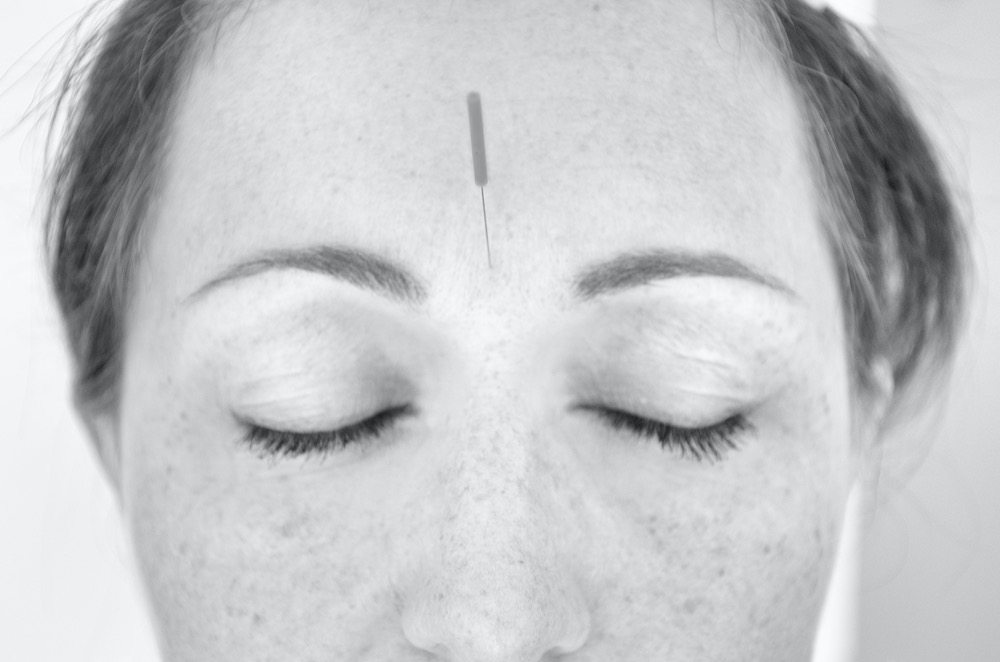
“It is by virtue of the twelve channels that human life exists, that disease arises, that human beings can be treated and illness cured. The twelve channels are where beginners start and masters end.” The Classic of Acupuncture
Circa 1st Century BCE
